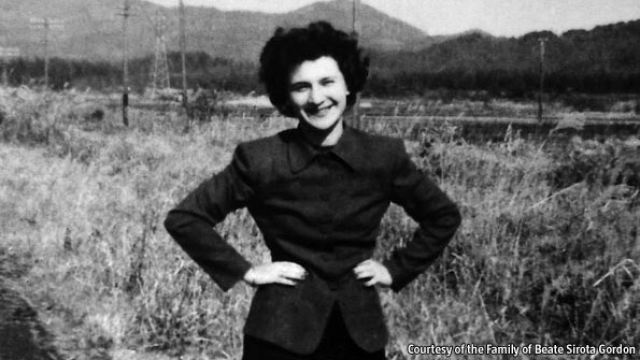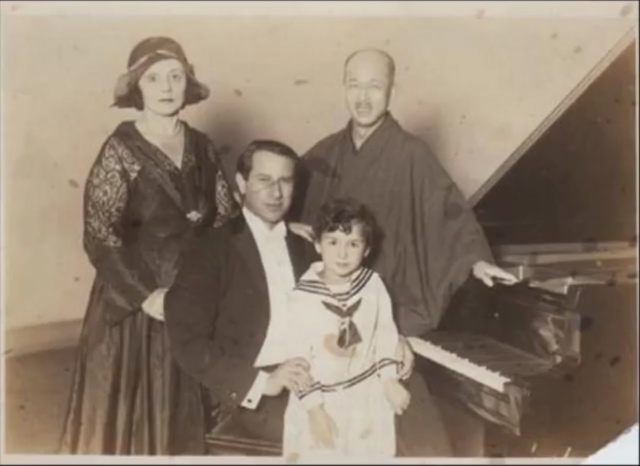
| You are here: Home > Web Writings > Blog | |
The Brains of a Spider (NSFW)Spider will produce these discharges at intervals as irregular as he is, whenever his medication wears off. He does actually believe several of the things he says, but some are purest mahooha, and he is utterly disinterested in discussing which ones. Each installment is absolutely guaranteed to contain enough pixels to produce a recognizable picture of him doing something that will astonish you, if you are a fan of nano-puzzle-solving. He likes having his work studied that closely. "I do not repudiate anything I said in TBOAS #1, last night....but later last night, I had a visit from my Jeanne, whose Soto Zen Buddhist teacher called her Dancing Wisdom; Perfect Peace. She advised me that starting a conversation with the world with quarrels and insults is exactly the wrong thing to do. As always she is right. The insults may be irresistible but they butter no parsnips. Maybe we’ll argue another time. When argument can be motivated conversation rather than mortal combat. My life experience has been that summer and politics are a hypergolic mixture, best handled by expert bachelors in Hazmat gear. I don’t like to overdress in summer.” 77. The Good Old Days I just noticed that it's been over 50 years since I moved to Canada—specifically, to the North Mountain of Nova Scotia's Annapolis Valley, the mountain that keeps the Bay of Fundy from spilling down into the Valley and drowning it. (There's also a South Mountain that keeps the Atlantic Ocean out of the Valley from the other side—the place which is believed to be where apples were first introduced to Canada.) The French owned that valley first, and their settlement there was called Port Royale, until the British took it from them, moved the settlement a few miles, and renamed it after the British monarch of that time, Queen Anne: Annapolis Royal, which it is still called today. The nearest hamlet to it in the Valley was Bridgetown, where two college friends I had introduced had moved north of, after their marriage. I came up to visit them for a week at their home a hundred meters from the Bay of Fundy, and when I got back home to Plainview, I filed my papers to become a Canadian. These are the lyrics of "Feed Me Fire," the first song I wrote in Canada—I like it, but after that I'll move on to the most important song I ever wrote, my second Canadian song, which is directly addressed to my favorite person. But first… Feed Me Fire Sittin here thinkin on a stormy old Monday, And my friends are gone: I’m here alone Sittin here listenin to my guitar singin Well that ain’t my code Because I can’t remember when I ever been so happy Sittin here listenin to the cuckoo tickin, And then, one glorious evening a few months later, my whole life turned on a dime. It suddenly occurs to me that it's unlikely you were an adult fifty years ago. Few of us were. A few of us still aren't. So perhaps I should explain the first verse of this. Back in the '60s (which mostly took place in the early '70s), if you started playing guitar for a group of strangers, it was absolutely necessary that you play only songs that everyone present was likely to know and be able to sing along with you. If you didn't, and especially if what you sang for them was really good, you were displaying Ego, which was not considered Far Out. Don't ask me why not. For me, that usually meant picking Beatles songs. The only other choice I had was to scat-sing some wordless blues riffs… The Blues In The Dark I was invited by my friends to meet some friends of theirs I hoped you weren’t married to that fella there—
but it wasn’t gonna stop me if you were. Your voice was so sad your blues were so bad So I finished up my blues and I got out of there Yes I’d married you already And after all these years I’m glad: I feel I should answer, at least briefly, the questions the song ducked. Why was Jeanne so blue? And who were the dude and the other two chicks? Jeanne was at that time about six months pregnant. The dude was her husband. One of the women was a younger sister of his who thought he was a prophet. The other one was the current Old Lady (yes, back then women called themselves that, proudly) of Jeanne's husband, the one he had sex with every night one thin wall away from his wife, a woman who was younger than his wife, with classic long straight blonde Joni Mitchell hair and much larger breasts than his wife's. Jeanne had been married to her Old Man long enough to have spent the entire VietNam War waiting for his career in the US Navy to bring him home for rare visits. He had absolutely no interest in her dance genius because he literally couldn't, or perhaps wouldn't, see it; he told her it was a selfish waste of time, a Display of Ego, of no spiritual or financial value. I spent over forty years awed by the constant discovery that someone so gifted, so wise, so compassionate, so forgiving, so giving, really thought I was worth cooking for and dancing to and watching dance with and singing harmonies with and writing books with side by side. No other woman had ever won the Hugo and Nebula with her first published story. It eventually got her invited to the National Book Festival at the White House by First Lady Laura Bush—by ridiculous coincidence, in the same year Mrs Bush also invited me for another book. (Another first. So far, no other married couple have been separately invited to the same National Book Festival.) We dined with Mr. and Mrs. Bush, Dick Cheney, Karl Rove, General Colin Powell, his successor Condoleezza Rice, and the whole rest of the cabinet, plus our afterdinner special guest author/speaker—and I swear to God this is true—Elmo, from Sesame Street, who paralyzed us all with laughter with anecdotes from his new bestseller, My Life As A Furry Red Monster. From where Jeanne and I were seated, we had a clear view of Elmo's human, crouched behind the podium: Kevin Clash (who was then six years away from being shamefully dropped by Sesame Street and PBS after he was falsely accused of sexual molestation of a minor by two underage males who'd failed to blackmail him. When they were proved to be lying, Mr. Clash was not rehired as Elmo with a stiff raise and a humble apology. Sesame Street threw away a great opportunity to teach kids important lessons about ethics, morals, and guts. Maybe it didn't know anything about them). Jeanne and I both fell in love with him. We'd each been allowed to bring one guest apiece, and Jeanne chose our daughter Terri…who had spent her entire childhood almost insane with true love for Elmo. She was now 32 years old, working with Martha Stewart as her print production coordinator. The day after we dined with Mr. Clash, we introduced Terri to him in the East Wing, and she went into a trance when he gave her a little of the Elmo Voice—which Kevin, a very large, very handsome black man whose natural voice is reminiscent of James Earl Jones, instantly picked up on, and he flirted with her kindly enough to turn her toes red. She shimmered the rest of that day. Jeanne and I both thanked him emphatically. There was nothing in that for him except kindness, and he gave Terri his full attention. This year he is 63, and I really hope he is enjoying it. And here's most of what I have to say about that whole magical era, when we and our daughter and everyone we knew were all busily being: NORTH MOUNTAIN CRAZIES We wanted spirituality on other days than Sunday We needed dough…so we kneaded dough We grew our corn, our kids were born, and We share one quirk: we’ve all found work The best I can describe in less than a novel the effect of living through that period on all three of us is this: One day, long after we moved from East Coast to West, all three of us were on top of a stunningly beautiful spot in California called Tassajara Mountain, sitting together by the side of a highly unlikely hot-spring-fed swimming pool with an indescribably lovely view in all directions. There were dozens of strange plants and bugs I could neither name nor describe. The spot is so remote, there is only one modified vehicle on the planet capable of getting you up there and then back down again alive, and back then there were two people brave enough to drive it. We were not doing anything special that afternoon, just talking quietly by the pool. Like other civilians, we had come there to rent comfortable uncluttered rooms at Tassajara Mountain Zen Center, a Buddhist monastery which offered quiet, peace, contemplation, startlingly good food, and the option of sitting zazen, chanting, attending classes, and in other ways interacting spiritually with the members of the monastery, who were superb company. The famous cook Edward Espe Brown, using basically nothing but Bronze Age tools and a Space Age brain, produced huge quantities of the most delicious bread I've ever eaten; a large loaf of it weighed about the same as one ping pong ball, and more often than not I ate it eagerly with absolutely nothing on it, not butter or cheese or fruit jam or olive oil, just bread with things of its own to say. Next time you're in a good bookstore, look for Ed's perennial bestseller, The Tassajara Bread Book. It will not just thank your tongue, it may help straighten out your head. Speaking of which… That afternoon, we gradually became aware that another civilian, a woman who, like most other civilian guests, was about the same age as Jeanne and me, but clearly a Yuppie, whereas we were just as clearly Hippies, wanted to speak with us. She was standing still perhaps three meters away, patiently waiting to be noticed, seeming content to just study us in the meantime. My first guess was, maybe she'd once read a copy of Stardance with Jeanne's and my faces on the back cover. Nope. Yuppies rarely read SF. Finally Jeanne asked if she'd like to join us. She smiled, but shook her head. "It wouldn't be polite. People don't come here for chatter. But my husband Todd and I—" She pointed to him. They made a handsome couple, both of them in shape. "—were wondering if you'd mind me asking what might be a personal question." Jeanne nodded and said, "If a stranger asks me a personal question at a monastery, I try to answer." "It may be none of our business. If you think it is, just fail to hear the question. Todd and I are both curious to know…the two of you, and the young lady…would it be rude of us to inquire…what is the nature of the relationship?" And then she winked at all three of us. Jeanne and I shared a puzzled look and an almost invisible shrug. The answer was simple, and the question seemed inoffensive. "Terri is our daughter," Jeanne said. The woman smiled—no, smirked—and clearly refused to believe her. "Really?" she said without quite rolling her eyes. I cracked up. "We're pretty sure. Jeanne was in labor 28 hours without drugs. One of us was conscious at all times." Jeanne chimed in. "My husband was outside in a waiting area; the hospital wouldn't allow two men in the room, and Spider wouldn't leave. Daniel would have raised hell if a fourth party had even tried to go in." The woman thanked us, went back to Todd…who came over and asked us the same question, and gave the truth the same polite disbelief. He finally said, "It's so strange to hear you're parents and child. You all relate to each other as equals." All three of us broke up. "Todd, we have since she came out of the chute," I told him. "We were determined from the start not to let Generation Gap cost us a dozen years of good conversation, the way we had." Jeanne said, "We figured if she ever felt her parents needed to be shocked, it'd take something like ritual cannibalism or voluntary celibacy to shock us. So we let her teach us a lot of interesting and useful stuff instead." Terri nodded. "I've got them listening to hip-hop," she agreed. Todd and…I forget her name…politely played along with our story, but Jeanne, whose people-radar was always eerie, was certain neither of them believed us. They were sure we were Hippies grown so old and cynical, we now amused ourselves by quietly mocking our Buddhist hosts, sneaking a bisexual sex worker into their holy place and trying to make love in total silence. (The walls were literally paper.) We felt sorry for them. I've said it before, and I'll say it again: I believe I may be the luckiest man you know…and I don't even know who you know. I'm not saying all that luck has been good, necessarily…but it has almost always been memorable. From sophomore year of high school, I was assured by medical science that I would almost certainly die by forty. I had been born with lungs just like bald tires, covered with surface bubbles. Every so often, some action anyone else would find perfectly normal—picking up a heavy suitcase—changing my own flat tire—trying to climb a rope up to the ceiling of the Gym—running for more than a block—anything that stressed the thorax—would pop one or more of those bubbles, causing the lung it was on to partially deflate…and nature abhorring a vacuum, that suddenly empty space in me very rapidly filled up with fluids from the surrounding body, making it very very difficult for the lung to reinflate. Where was it supposed to put the useless liquids now in its way? So you spend up to a week with a tube sticking out of your thorax, allowing fluids to drain. As they do, the lung reinflates, and if you're lucky, one day they send you home. If you're not, it can be bad. One time I was slowly walking out to Mom's car to finally go home after two weeks of draining, and for no reason at all the other lung collapsed. While Mom ran back inside for a wheelchair nobody would let her take out to the parking lot, I had to turn on my heel and shuffle back into Hell With Bad Food by myself, without recollapsing the just-healed lung. They told me little problems like that were what were sure to put me down by forty. You don't ever want two lungs to collapse at the same time. I was pushing sixty before it suddenly dawned on me that I had been the recipient of unbelievable Good Luck, and today I am 75 years old and have not had a lung collapse, or spontaneous pneumothorax as they're called, in half a century. I'm already way ahead of the game, a million to one shot, the recipient of a medical miracle, an experimental surgery never before tried on anyone who was not in deepest coma—which surgery I spent many years convinced had been horribly botched by a jackass Chief Surgeon who just wanted to do something new and unheard of and become famous without quite killing me. He simply neglected to tell me that both of the previous attempts on the coma patients showed that on a pain scale of 0 to 10, his planned technique was certain to bring me to at least a 13, worse than childbirth complicated by a GSW. He was an optimist. The pain was beyond describing. The least infuriating consequence was, his surgical plan required slicing through the main nerve that served my right arm, so he could crack my ribcage. I am right-handed, and six months after the operation, I still could only pick up the most delicate china teacup with that hand if there was no tea in it. One month after the surgery, I still could not sleep. If I tried to sleep, very soon I would stupidly try to move in my sleep. Wiggle a toe, say, or flex a knee. Unfortunately, after an operation that painful, every single part of your body is directly connected to the cut place, tugging at it, and you wake up yelling. But sometimes—usually, actually—rotten luck can turn to superb luck with no warning. Jeanne happened to be staying with me in my parents' home—I had collapsed my lung racing to meet her train, because she was then nearly ten months pregnant. Somehow she got me to Bellevue big as a house, carrying both her own suitcases, and once I was recuperating in their home, my parents were delighted to have her around to help watch over me 24-7. But not one-tenth as delighted as I was, and I think that's all I'm going to say about that. Make a list of things that might be of enormous help to a right-handed man in nonstop agony, infinitely better pain-relief than the aspirins I'd been kindly prescribed by my surgeon, but that are only possible given the full use of the patient's right arm. Jeanne was endlessly willing to lend me a hand, and eventually I became ambidextrous. One of Robert Heinlein's wisest quotations came from his most immortal character, Lazarus Long: "Love is that condition in which Finding someone who quietly hums the blues in the dark, and learning how good it feels to give them harmonies, call-and-responses, variations, agreements that they're alive and should be, makes you and them members of The Brotherhood and Sisterhood Of Breath forever, even after breath ceases. My granddaughter will be flying out with her amazing aunt Laura to visit me this summer, and every time I see her, I clearly see her grandmother and her mother in her. From her first try, years after Jeanne left, she danced in Jeannie's unique, self-invented style, which she only saw once in a very short YouTube video, and I don't see how that could have become encoded in her DNA. At the end of blog entry #14, there is a photograph that I sometimes believe is Jeanne in the process of teaching her grandchild everything she knows about dancing, by eye-traffic alone, a few months before she had to leave.
76. Spider John is gone. Minnesota music legend Spider John Koerner dies at 85 Damn. I hope he had an easy passing. Good to know his guitar will hang in Palmer's Bar for as long as it's open. Jeanne and I totally fell in love with the place, our only time there. John clearly felt it was his home. That was a good day. I only met him six times—each time a good time. The last time was my first and only visit to Palmer's Bar, where as he told us, they let him go behind the bar and pour his own breakfast every morning. He wasn't kidding. He was happy there, and loved. Here is the last track on his best album, with Willie Murphy, a work of psychedelic ragtime produced by Frazier Mohawk in 1969 and titled Running Jumping Standing Still; this seems the time for it. Here are the lyrics, and below them is a hotlink to the song. Good Night Good night I'd like An' when I wake up in the mornin' Good night Ah, the things that I do or maybe it's farther away… but anyway, Good night, that's right, good night [CRASH!] That's right. [and the party goes on.] Here is my favorite John Koerner joke: This guy—it's a long story but one day he finds himself in conversation with God. And he says, "Lord, can I ask you a question?" "Ask," God says. "Well, I heard that to You, a million years is like…well, nothin'. Is that so?" "Not quite," God says. "To me it's just like a second." "Man, that's amazing!" the fellow says. "So…what would a million dollars be like for a guy like you?" God shrugs. "Be like a penny to you." The guy says, "Well look, I'll just ask you right out: since that's all it is to you, could I ask you for one of those pennies?" "Sure," God says. "No problem at all. Just a sec." ----- Steph wrote: 85 is nothing to sneeze at I suppose. I figured you knew, but just in case. ----- Chris wrote: He says he hopes Spider John went peacefully. This is John's son Chris. My brother, my kid and I were with him at his passing. Please let Mr. Robinson know that John indeed went peacefully. We thank him for his friendship with John, and his kind words. —Chris Kalmbach ----- Dear Chris, Thank you for taking the time to send me that good news about John's peaceful passage. In the last 14 years I lost my wife, our only daughter, and my 94-year-old father—all three of them special people, and every one of them went out peacefully, ready to go, pain-free and surrounded by loved ones. I'm deeply glad John was also so blessed. Only two or three generations ago, nobody got off that easy. Many decades ago I was wandering the halls of my university, just a bit confused. A friend had given me a tablet and said, with a huge grin, "Take this, brother: it will serve you well." But he had neglected to tell me the pill was strong enough to cut into four pieces and share with three friends. I'd eaten the whole thing, and now I was stoneder than I had ever been before in my life. Then I saw a sign on a bulletin board reading, "Today only: Spider John Koerner and Sweet William." Naturally I assumed I was hallucinating. Spider John had not played there in the previous two years; it was just too good to be true. I followed the sign's directions…and found that it was accurate. I got the best seat in the house, right in front of the stage, and whenever John finished a song, I relit his cigar and handed it back up to him. He and Sweet William (Willie Murphy) proceeded to play every track from a new album they'd just completed. Called Running Jumping Standing Still. My head exploded. A few months later, John came back solo, and since he'd been booked by my folksinging partner David Spiwack, we got to be his opening act. God, what a thrill. After the set, we got him as stoned as a man can get on Lebanese hash, and he told us stories about survival in the music biz. I still have half a dozen albums of his that he autographed for me that day. Something like six months later, I moved into a huge house, a hippie crashpad. On the way there, I walked past a record store and saw in the window a copy of Running Jumping Standing Still, which had just been released by Elektra. I grabbed it on sight. When I got to my new crashpad home, the first thing I unpacked and set up was my stereo. There were over a dozen other hippies already moved in, and do you know what it's like to move into a giant house full of total strangers, you and them carefully checking each other out? As soon as my stereo was working right, speakers properly phased and so on, I decided to show my new housemates what kind of guy I was. I opened my new record, set it on the turntable, and cranked the volume all the way up. "Do you feel like an outcast?" Spider John sang. "Like somehow your life has been miscast? Well, I'll tell ya, there's a place where that can change fast…" And then he and Willie slammed into "The Red Palace"… And sixty seconds later, every man, woman and house-cat in that crashpad had piled into my room, torn off all their clothes, and began dancing their asses off. Never before or since have I established communication with so many new housemates with so few words. One of my best Good Time memories. Many years later I had moved to Nova Scotia, to a little red shack that had, years or perhaps even decades earlier, once been a little elementary schoolhouse, with a four-holer outhouse out back next to the goat shed, and sixty acres of fat maple trees. You could just barely make out the last traces of the school's faded red paint. It stood right across the street from the Bay of Fundy, with a stunning view of distant New Brunswick on the horizon. Needless to say, that house became known as The Red Palace, and is still called that today by the neighbours. I met John twice after that, and the next-to-last time was best: he gave my wife Jeanne and I directions to Palmer's Bar, and we spent a day there with him following a Minneapolis science fiction convention. What a day that was! He had told us, "They let me go behind the bar and pour my own breakfast," and he wasn't foolin'! Here is a recording from the last time I hung out with him, at an annual music festival on Vancouver Island, where I introduced him to the crowd. He had just finished the song, and a year or so later it came out on What's Left Of Spider John. This is me and my late wife Jeanne listening to a premiere in his room at the Anco Motel in Courtenay, B.C.: Thanks again for your email, Chris. John was the first musical hero of mine that I ever met and interacted with. (I was never lucky enough to meet the Snaker, but I did become a longtime pen pal of the Little Sun, who was kind enough to send my harmonica-playing brother-in-law John Moore some advice on harp technique.) Best wishes to you and yours. —Spider 75. Born On The Same Day, or, So Much For Astrology…plus, Paying It Forward September 16, 1925 - guitarists Charlie Byrd, B.B. King June 8, 1942 - Roger Ebert, Sir Paul McCartney [Interestingly, in a different section of the book these are taken from (p.21 of the hardcover edition) is a list of most and least famous celebrities—and among the very least known celebrities were said to be Roger Ebert and Linda McCartney, who at that time performed every night beside her husband, the most successful singer in the world.] January 8, 1942 - Yvette Mimieux, Stephen Hawking January 19, 1943 - Texan Janis Joplin, vixen Princess Margaret January 10, 1949 - George Foreman, Linda Lovelace (now, they could have made a great movie together.) January 26, 1918 - Philip José Farmer, Romanian dictator Nicolae Ceausescu January 31, 1923 - Carol Channing, Norman Mailer February 6, 1951 - Rip Torn, Mamie Van Doren February 15, 1905 - Ayn Rand, Harold Arlen February 22, 1918 - Charles Finley (baseball team owner), Robert Wadlow (tallest person in human history) February 25, 1945 - George Harrison, Sally Jessy Raphael March 2, 1951 - last USSR leader Mikhail Gorbachev, Tom Wolfe January 5, 1952 - Umberto Eco, last USSR First Lady Raisa Gorbachev (Apparently, internationally great authors born on the same day sometimes lead huge superpowers into oblivion together, hand in hand.) April 3, 1924 - Marlon Brando, Doris Day May 8, 1926 - David Attenborough, Don Rickles May 23, 1910 - Scatman Crothers, Artie Shaw May 28, 1944 - Rudolph Giuliani (a real pip), Gladys Knight June 9, 1916 - Robert McNamara, Les Paul June 17, 1917 - John Hersey, Dean Martin June 18, 1952 - Carol Kane, Isabella Rosselini June 21, 1921 - Judy Holliday, Jane Russell June 22, 1949 - Meryl Streep, Lindsay Wagner July 1, 1925 - Farley Granger, the city of Los Angeles July 6, 1935 - stripper Juanita Dale Slusher AKA Candy Barr, the Dalai Lama —they could be a dynamite draw together in Vegas today, if Ms Barr had not graduated to a better venue 19 years ago. September 1, 1946 - Tommy Lee Jones, Oliver Stone October 4, 1941 - authors Jackie Collins, Anne Rice October 13, 1925 - Margaret Thatcher, Lenny Bruce (!) December 5, 1935 - Little Richard, Calvin Trillin July 1, 1961 - track star Carl Lewis, Princess Diana November 26, 1938 - Tina Turner, Rich Little (who could probably have played all the above people without makeup) For all of the above, I am indebted to David Wallechinsky & Amy Wallace, children of Irving Wallace, and editors of The People's Almanac Presents: The Book Of Lists, 1990 Edition (Little, Brown), one of the very best Bathroom Books ever published, my copy of which was copyrighted in 1993. It was a gift from a friend, and I've read it cover to cover three times so far, and am about to begin it again, 31 years later. Meanwhile, just for fun, I'm starting a list of my own. Any of these ought to get you through a bout with Covid-19 or any of the other nasty things currently laying people out for weeks at a time. Now with e-books, you don't even have to lift books or even hold them open and turn pages, and you can't lose your place: Books I've Read More Than Three Times:
Oh, and be sure to read Marathon Man before watching the movie of it that Bill also scripted, or you'll miss a brilliant tomato surprise that only works on paper. On my way out the door, I would like to take this opportunity to mention in print for the first time something not many know about: when it first came out, The Princess Bride stiffed, another case of a great book not reaching the right audience successfully. I adored the book, and happened to be editing a story collection for Jim Baen (whose idea it was) called The Best Of All Possible Worlds, in which I reprinted a whack of my favorite stories that nobody else seemed to have ever heard of, paired with a Favorite Story of each of those authors, who included Robert Heinlein, Ted Sturgeon, Larry Niven, Bob Sheckley, Dean Ing and others. The one piece that was not a short story but a single scene, a novel excerpt, was The Duel Scene On The Cliffs Of Insanity from The Princess Bride by William Goldman. (Which I had found by Dumb Luck in a Bookmobile Bus just across the street from the Bay Of Fundy in Nova Scotia, where I then lived.) My agent got me his home phone number; I called him and explained the anthology I was creating, for which I would ask him to pick one of his Favorite Unknown Stories. Bill loved the idea, and asked which book of his I was planning to excerpt. When I told him, he freaked out, did a Jim Rockford Rotation, instant 180°, and withdrew his consent. "Forget it," he said. "That's my baby, my favorite thing. I'll never sell that for gold again. I tried, it didn't work. That hurt. Pick anything else. Please." I don't suppose I've ever been more eloquently effective with zero preparation; I talked myself blue in the face, managed to convince Bill I loved his story as much as he did. It helped that I almost did. I told him, let me bring this to the SF/Fantasy audience, and I really think it'll go back into print. It'll make up for the peanuts I can pay you for the privilege. He said what the hell, take your shot. I put it in the book, which sold well, it drew the largest share of the fan mail, and the next year Judy-Lynn Del Rey, one of the most astute editors the field has ever had, brought out a new paperback edition of Bride, and pushed it hard, resulting in huge sales, a book that has never been out of print again, and a very lucrative movie deal. Bill called me when he signed for it, and thanked me for striking the match that lit the fuse. I cherish that memory. It impressed my wife, who loved the book as much as I did. That was a memorable night—thanks, Bill! I'm sure I'm forgetting some old favorites, but that oughta get you through the flu, RSV, pneumonia, Covid, mogo of the g'gogo, and chronic fatigue, serially or in parallel. Me, I'm gonna go read Control a fourth time. Hey, it's about time… 74. Big Ears Lately there's been a lot of music posted to a website I visit a lot from a festival called the Big Ears Music Festival. And I found myself with the cliche about how little pitchers have big ears stuck in my brain, right? So I wondered who was the shortest guy who ever pitched baseball professionally, and if I could make a pun out of his name and somehow link it to the Big Ears Music Festival. I swear to God this is true. You can ask wikipedia. The guy was born in 1887, and played major league ball from age 31 until his death in 1923 at age 35. He stood five feet seven inches tall. And his name—I know this sounds like I made it up, but I didn't—was Gene Krapp. Believe it or not, that wasn't a weird enough name for his parents—so his full name became Eugene Hamlet Krapp. I know, this sounds like something typed by a thousand monkeys on a thousand typewriters, right? God—or at least those minor gods, his parents—wanted this man to spend his life being smirked at. I bet they got their wish. Like being a 5'7" inch pitcher wasn't enough to make him memorable. He started playing baseball for money in 1906, but nobody remembers for what team. In 1909 he joined the first team whose name is remembered, and again I ask you to believe me: they were called the Beavers. The Portland Beavers. Pacific Coast League. Also at one point he was a member of the fairly well-remembered Cleveland Naps, where one of his teammmates was the infamous Shoeless Joe Jackson. Even that far back, "nappies" or "naps" were synonyms for diapers. Also, because Gene threw so many trick pitches, sinkers, floaters, and double-curve balls (they allegedly broke twice on the way to the plate), some sportswriter called him "Rubber Arm" Krapp, and in no time that was shortened by every other sport reporter to just "Rubber Krapp," because yes, rubber turds were a popular novelty item of the time. Nothing is stranger than real life. And there ought to be laws about giving goofy names to your offspring. Something like, do it and on their 16th birthday all your assets become theirs. 73. My Gift Recently I received a fan letter from someone who said, "You always seem to notice the funny parts of life that the rest of us miss. It must be a wonderful gift." There are currently 691 unanswered emails in my Inbox. If I answer one at all, I strive for brevity. What came off the top of my head was, "It has its advantages, at times…but it can drag a bit when, the ten thousandth time you see the name of the star of CSI:NY (he played Lt. Dan in Forrest Gump) flashed on the screen—Gary Sinise—you cannot prevent yourself from automatically thinking, Gesundheit. 72. Two Of The Best Farewell to two of my dear friends, Lee Emmett and David Crosby. I grieve with their dearest friends, John Varley and Jandee and Django Crosby. January's a hard month sometimes. I knew I had a picture of them both around somewhere, and I finally found the furshlugginer thing, where webmaster Colin had left it for me. I’m not positive who to credit for the photo: my friend John Varley and David’s wife Jandee seem equally likely candidates. Or possibly Django. The location is somewhere on David’s home turf, which I never got to see. The beautiful woman on the left is John’s wife Lee Emmett, who left here on Friday the 13th last month. Five days later, Croz, the beautiful man on the right, also had to grab a cab of his own. I like to imagine them both in the same good place now, swapping stories and being shown around by my Jeanne and Terri and numerous other friends of theirs. So long, old friends. Be seein’ you both. 71. For guitarists and guitar fans Dear pickers, pluckers, and tasteful mo-fos, Just this morning I stumbled across a 20-year-old album I will not be sending around for free because it's still for sale, and I only paid for one copy—but it was enough to cause me to strongly recommend it to every guitarist or guitar-lover I know. I'm less than halfway through my first taste at this moment, but I already know I underpaid. You want this. Even if you already have it: you can give a copy to someone who needs it. It was released in 2002, and somehow nobody told me about it then or since. So I'm getting 20 years of superb guitar progress in one table-size bite! This is one you'll want to eat over the sink. Acoustic guitarist Henry Kaiser looked around him as the new millenium started to unroll and realized he knew of at least 18 other totally original acoustic guitarists—a dozen 6-stringers, and seven 12-stringers—all of them hungry, and bless his heart, he compiled all 19 into an ear-popping breath-giving album he called, Various Artists - 156 Strings: 19 Totally Original Acoustic Guitarists. Mr. Kaiser didn't even put his own name in the title. I got my copy at Bandcamp, in lossless .flac files, for US$10, and became almost instantly aware that I should drive away slowly and conservatively so the cops wouldn't realize I was the getaway car. I'm ashamed to admit how many of these warlocks were totally unknown to me. Too many. Thank heaven I'm on the mailing list for Cuneiform Records, which just reissued this. Here is the complete lineup: Henry Kaiser compiler/acoustic guitar, Gyan Riley, Michael Gulezian, Raoul Björkenheim, Richard Thompson, Fred Frith, U Tin, Peter Lang, Jean-Paul Bourelly, Janet Feder, Richard Leo Johnson, Duck Baker, Rod Poole, Mike Keneally, Nels Cline, Scott McGill, Miroslav Tadic, Shawn Persinger is Prester John, Steffen Basho-Junghans acoustic guitars Each track title tells you the name of the artist and the album it's taken from: 19 terrific leads to follow up. Gold. I found several reviews online, all of them awed, and noticed that every one of them singled out the contribution of Richard Leo Johnson, "Hazard Pay," as the album's standout magic spell. So I'm attaching it, in AAC320. If that cut doesn't sell you…Jack, you dead. (If your computer won't play m4a files without a hassle, just go to Bandcamp.com and search for this album. Bandcamp will let you sample the entire track—the whole album, if you're a tough customer. And then download it in any format you like, all of them at the same price.) I always wish that superb compilations like this one were credited to almost anything but "Various Artists," which puts them very near the bottom of any alphabetical list. Why not make the industry-standard designation "Assorted Artists," instead, which would at least put great compilations quite near the top of all lists? It's only a single letter longer than "various"… Please pass this on to any pluckers or pickers or their patrons you know. It's kind of awesome to reflect that between us, we have heard way more superb guitarists perform for us than any of our ancestors could possibly have done, just because they didn't have 7.84 billion contemporaries to choose from, and music spreads very slowly on foot. Even if the planet explodes later this afternoon, we'll have died the luckiest humans ever born. I give thanks. As my Nana would have asked, "What do we want—egg in our beer?" A Happy New Year to all us lucky bastards! Back to my Boxing Day. Anybody know what round this is? —Spider 11 Richard Leo Johnson_ Hazard Pay.mp3 70. Everything old is new again It's slowly sinking in. My queen is dead. And I loved her. Little as she had to do with my own life and concerns, I never had a thing against her, and never once wavered in my admiration of or my respect for Her Majesty. I liked reading about her, watching her, hearing her voice and unerring word choice. She was wise, moral, ethical, compassionate, intelligent, thick-skinned, patient, prudent, humble, proud, incorruptible, happy to learn new things, dignified, gracious, never showed anger, never abused her power or was herself touched by any scandal, never boasted, never bullied—she was civilized. Whether you mean the word in the British sense, or the quite different American sense, she had class. She was the real deal. And she was all these things consistently. I've genuinely enjoyed being one of her subjects for half a century. I'm keeping an open mind and heart for Charles III—it was after all my own father's name, and he lived to be as old as Elizabeth did. I thought he was a king, too. Right now, The Queen Is Dead. Long Live The Queen! I will drink 30-year-old Redbreast single malt to her before retiring tonight. I hope you'll raise a glass with me… I heard a delicious little tidbit on the news just now. Can you name the only American president that Elizabeth ever invited back, to visit her at home, after they'd left the White House? She met and dined at Buckingham Palace with, remember, 13 of the last 14 Presidents, from Harry Truman to Joe Biden, the single exception being Lyndon Johnson, which was a break for her—but which one did she want to get to know better after he was no longer the most powerful man in the world, just to enjoy a longer, more private conversation with him and his wife? Barack Hussein Obama II. I love that. 69. Bummer Tony Dow, who played Wally Cleaver, the Beav's older brother, on TV's Leave It To Beaver, was diagnosed with cancer last month. He's only 77, and has had an interesting life; his wikipedia page is worth a read. The same for Hugh Beaumont, who played Ward Cleaver, the dad…and also made a number of Mike Shayne detective movies around the time I was born. Sadly he's been gone since 1982 (died while he was in Munich visiting his son, a psychiatrist), and Barbara Billingsley, who played Hugh's wife, the Beaver's Mom, went down in 2010. She kept in her prize garden a bronze statue created for her by…Tony Dow. (See what I mean about an interesting life? He's also been a producer and director.) You may also have caught Ms Billingsley in a brief but memorable role as "Jive Lady" in 1980's Airplane! As you may know, Jerry Mathers, who played the Beav', just turned 74 seventeen days ago, and is now appearing in saturation commercials for Revitive, an electrical gizmo that helps restore circulation to the feet, which he says gave him back the power to walk after type 2 diabetes had made it too painful. He also lost 40 pounds with Jenny Craig and credits it with reversing his diabetes. Those commercials recently got me started watching ancient Leave It To Beaver re-runs from 1957 on the MeTV cable channel, which is how I was led to Tony Dow's wikipedia page—which just announced his diagnosis. I intend to hold a good t'ought for Mr. Dow, whom I always enjoyed. All four of the Cleavers were among my best friends when I was 9. They taught me, with care and humor and kindness, how—and why—to be a good boy. ++++++++++++++++++++++++++++++++++++ PS—The alarm bells have finally fallen silent in my head. Anthony Lee Dow, AKA Wally Cleaver, stopped suffering two days ago, on July 27; I will continue to hold a good t'ought fer him, and for a long time, but it's no longer urgent. With great irony, the day before he passed, his representatives announced his death by mistake. Hey, shit happens. No worries: with any luck, Mr. Dow died with a smile in consequence. I am glad he didn't suffer long; cancer victims are rarely so fortunate. And meanwhile, the rest of the Cleavers have done precisely what the show always told them to do. Ward, June and Wally Cleaver have all literally left it to Beaver. Hell, Gerald Patrick Mathers is barely six months older than I am: we were both born in 1948. And I don't know for sure about him, but I intend to live forever or die trying, so I hope he will too. So long, Tony. You really were a great big brother, remarkable for your kindness and decency. It was as genuine as the affection between Chuck Connors and Johnny Crawford on The Rifleman, and everyone in North America knew it. Thanks for that. 68. The reddest part of him today has to be his face The movie The Hunt For Red October is on American Movie Channel this morning. I had not seen it in many years, probably because I saw it so many times when it first came out. So it took me by surprise this time. The first death that occurs in that story is when Red October's Lithuanian Captain Ramius kills the Soviet officer who is the KGB fink, so he can carry out his plan to defect without opposition. Of course, he does the same thing in the movie. And I almost dropped my cards when I heard the name of the KGB fink, the worst enemy of democracy aboard that submarine. I had not remembered it. If you've forgotten too, his name was Putin. Ivan Putin. No wonder he's been acting like such a brain-dead asshat, lately. He's been dead since October 1, 1984, when Tom Clancy's book was published—38 years ago. Amazing to reflect that the Navy, in the form of the Naval Institute Press, initially paid Mr. Clancy only five thousand dollars for such a successful and important prophecy. (Of course, it wastheir very first publication ever…and a pretty spectacular debut it was!) It's a pity he died 9 years ago, before he had a chance to take the victory lap he earned. Way to go, Tom! I hope he and Sean Connery are enjoying themselves over drinks together in the next world today. (It has just this minute occurred to me that the Ukrainians are now successfully imitating the courage of the defenders of the Siege of Masada, who in the year 72 C.E. accepted odds of 15,000 against 960. Putin is not just dead, he's being publicly Masadamized.) 67. PJ's down P.J. O'Rourke, our generation's Mark Twain, is dead at 74. Complications of lung cancer. I have at least two dozen of his books in this house, all heavily read. As far as I know, his last one was a bitter examination of the Trump-Hillary battle which he titled with his usual candor: How The Hell Did This Happen? One of my longtime favorites was Parliament of Whores, by which he did not mean Congress, but the empty-headed shits-for-brains who always elected them with firm instructions to do the impossible, yesterday. Editor of National Lampoon. Foreign Affairs Desk Chief at Rolling Stone. Correspondent for the Atlantic. He had some fun. The Economist always devotes its very last page to an in-depth obituary for whoever, in the opinion of The Economist, is the person who died this week that the whole planet all ought to mourn the hardest. The Feb 26 Obit in The Economist is P.J.'s. That would have made him proud. Comedians and funny writers ought to receive extended life, plus a modest stipend, in exchange for their service. You can tax me for it; I'll ante up. George Carlin shoulda broke two hundred, easy. P.J., too. Donald Westlake. Bob Sheckley. David Gerrold. Terry Pratchett. Doug Adams. All four of the Firesign Theatre. Lord Buckley. Paul Krassner, who turned Groucho Marx on to acid. Larry Shames. As they said aboard the Bismarck just before she capsized, the list goes on. So long, P.J. I'll miss you forever. You had the courage of a Ghurka, and I liked your targets. Wherever you are, please keep kicking ass. 66. Brother Brothers Of Invention Intention Repay Attention The first part of this may sound a bit giddy, but it really is all true fact, I swear. The next part may veer a bit. Someone just uploaded, to a members-only website I frequent, a live audience recording of an up and coming new musical act who call themselves The Brother Brothers. And they have every right to their stage name: they are, in fact, brothers. Twin brothers, in fact. Identical twin brothers. Their names are Adam and David Moss. (I'm gonna go way out on a limb here and take a wild guess that their parents were Christians, like mine.) I cannot comment on their music at this time, because the torrent hasn't finished downloading yet, and unlike many professional music critics, I am reluctant to critique music I have not yet heard. But I have high hopes. The uploader mentioned that they remind him at times of the Everly Brothers—and I have always worshipped the Everly Brothers. I spent most of my youth happily hunting for the third harmonies they had kindly left for me to find. Last August, when Don Everly caught a cab at age 84, that night I got shitfaced for the first time in years. Phil had left 7 years earlier, and I'd spent the intervening years hoping Don would go on tour as The Everly Brother, but no such luck. I hope these new Brother Brothers are great too. I'm told they sing Everlian harmonies, and that one of them plays guitar and a sweet cello and the other plays fantastic fiddle. I'll let you know. So far, everything I've said is true. But I am who I am. Believe me, if I were not, it would be even worse. I'm afraid I simply can't resist mentioning how very lucky we will all be if the Mosses turn out to be as good as I'm hoping. (Go down, Mosses!) Because I could almost swear I remember hearing a rumour, or maybe I just saw or smelled or tasted it somewhere, about their disastrous first foray into show business. But back then, as I get the story, the Moss Brothers weren't even thinking about performing themselves. All they wanted in the world then was to hang out with all the world's very greatest musicians, so they set out to become the greatest rock and roll promoters in the history of show business. Fortunately for you and me, or at least for me, and unfortunately for them, the ancient proverb turned out to be true: no matter how hard he may strive, a Moss gathers no Rolling Stones… You know me. What choice did I have? Could I have kept that one to myself, like a man who holds on to his fart until he gets home from church? They say that's how Trump got that way—may be how he got that name, in fact. Pitiless paronomasia is a permanent predicament, as pathetic as parliamentary procedure, prune pits, or popped pimples. (That's old age right there: an unstoppable flow of little p's.) I'm a punster. I'm even known to unleash punning Spoonerisms at the hop of a drat. If, for example, you ask me whether Robert A. Heinlein ever wrote a novel about two deacons on Sesame Street who baptized Elmo, you have to know I'm going to say, "Yes, certainly: it was titled The Muppet Pastors." Right? Whenever things like that happen around me, think of it as a sneeze that no mask can contain, and try to feel my pain. I'm thinking that even after we've whipped covid, it might be good if I continue to socially isolate a while longer… Since I seized upon them, sound unheard, as a perfect pretext to perpetrate a particularly pungent pun, the least I can do now that they've finished downloading and being loaded into iTunes is to play you a little of the Brother Brothers. And I'm delighted to opine that they are, as I'd hoped, just what the doctor ordered and why the preacher danced. If you wander over to www.bandcamp.com, you'll find they have a terrific new album out, Calla Lily, with six excellent backing musicians, one of whom even chances to be named Robinson! But it was the generous samples always found at bandcamp that impelled me to put down 10 bucks for 10 tracks in .flac, Jack. I would call what they play Progressive Folk. For now, here's a sample of their music that bandcamp doesn't carry—which does not appear on any album; it's just an unreleased live capture from one of their concerts in Portland OR last September. David Moss on cello, Adam Moss on fiddle. They co-wrote all the songs on Calla Lily—but this one was written by Peter Rowan. They share at least three happy qualities with the Everlys: 1) their singing voices are unusually pleasant to listen to, both individually and blended; 2), their songs are intelligent, tend to be wise, calm, and hopeful, and aren't angry about anything; and 3) the two men share the sort of strong telepathic connection that makes it simply impossible for them to sing harmony in anything but absolutely perfect unison. That does not necessarily imply telepathic communion or even necessarily compatibility—offstage, the Everly Brothers argued a lot—but for me, "mere" invisible connection from a distance seems quite awesome enough to engage my sense of wonder. Nisargadatta Maharaj said, "Intelligence is the door to freedom and alert attention is the mother of intelligence." How I wish more of my North American contemporaries would agree with that sentence—but today, far too many of them do not believe either clause is true. As I listen to Calla Lily, the Brother Brothers increase my hopes for the looney-tunes future my smart, sensitive granddaughter will have to navigate. Their civilized music raises spirits, morale, and intelligence. And rewards alert attention. Mine, anyway. Go, cats, go! ----- Wow. Hmmm…..from that single track, they remind me much more of Simon and Garfunkel, especially with the scoring of the strings….a more subtle rhythmic and harmonic concept than the Everly's. Not a bad thing! -- Chuck 65. Standing rib Then there was the one about the legendary interstellar explorer Feginand Ferdhoot, who found a planet with only one life-form: a gigantic biped that never moved or spoke—just squatted there and ignored all attempts to question it. One day the frustrated Ferdhoot cried out, "How could evolution possibly have given legs and a brain to a being that never uses either?" At once, the giant creature stood up to its full height, said just two words—"It couldn't!"—and squatted back down again. "Of course," Feginand Ferdhoot cried triumphantly. "It only stands to reason." (A long-departed science fiction writer named Reginald Bretnor was also famous for ingenious puns he wrote under the name Grendel Briarton—an anagram of his real name—about a space- and time-traveler named Ferdinand Feghoot. In tribute to Mr. Bretnor, I occasionally punetrate a perp about Feginand Ferdhoot.)
64. Thoughts On Approaching 73 Dear Colin, the wonderfully wise James Richardson once said, "Every life is allocated one hundred seconds of true genius. They might be enough if we could just be sure which ones they were." I'm pretty confident the single second it took me to take dictation of this gift from the universe was one. I've certainly never typed anything truer. —Spider ++++++++++++++++++++++++++++++++++++++++++ Folksinger (n) — early 21st century euphemism for a person with an independent income. [now extinct] 63. Singing With The Fishes Great beauty is sometimes found in unexpected places. The song attached below is a duet by two male singers. You will of course know the songwriter, who is not one of them: one Stevland Hardaway Judkins, once called Little Stevie. (A long time ago; today Mr. Wonder is 71.) One of the two singers is named in the title of the track: Adam Levine, lead singer of Maroon 5. But guess who the other singer is. Hint: as a teenager, he had two buddies who were also singers, one of them named Frank, and when he introduced them to another singer who also wrote songs, those three formed a group, and called themselves Frankie Valli and The Four Seasons. But who's this guy? And for extra credit, what state is he from? 06 My Cherie Amour (feat. Adam Levine).mp3 Scroll way down for the answer:
The full name of that singer, who obviously is from New Jersey if he knew Frankie Valli and two of the Seasons growing up, is Joseph Francesco DeLores Eliot Pesci. He didn't go with the Four Seasons, but for a while he was in Joey Dee And The Starliters, during the period when their guitarist was a young black guy named Jim Hendrix. But he ended up spending his life in a different part of the entertainment business, where his name got shortened a lot. Today, after Goodfellasand the Lethal Weapon movies and Raging Bull and the Home Alone movies and My Cousin Vinny, Joe Pesci's worth 50 million dollars. That track is from an album he recorded—his third—right after he officially retired from making movies in 2019. It's called Still Singing. I play it all the time. It has another gorgeous track in which he duets with the late Little Jimmy Scott, who died in 2014 at age 88 without ever reaching puberty, due to a rare genetic disorder called Kalmann's Syndrome. Ray Charles and Billie Holiday were crazy about him. Funny how life turns out, sometimes. I was planning to be a folksinger if I grew up. The beloved TV star Martin Mull used to sit onstage with an acoustic guitar and ask audiences if anyone out there remembered a brief near-catastrophe called "The Great Folk Music Scare Of The 1960s"? He described it as a short but alarming period in which there seemed serious danger that crap might catch on. Fortunately, he would always soothe his listeners, wiser heads came together to invent disco, which took the nation like kudzu, and thus the horror was averted. So he hung up his guitar and became a painter—at one point he participated in a protest exhibit at the Boston Museum of Fine Art that took place in the men's room, which he named Flush Against The Walls, or, I'll Be Art In A Minute. He also worked in comedy a bit… So did Joe Pesci, now that I think about it. Who knew, eh? 62. Zounds abound all round Why is it that I never encounter just one zound? They only appear in the plural. What's up with that? Could it be that they always arrive in multiple births? Are all their conceptions gangbangs? That might help explain why I'm constantly hearing about them, even though I've never seen a zound, and don't know a single fact about them… I don't even know where zounds are found. No wonder you hear about zounds all the time. Given their orgiastic breeding rate, they may evolve fast enough for scientists to watch it happening! For them, Niven and Pournelle's classic advice, "Think of it as evolution in action," may need to be upgraded to, "Think of it as evolution on crystal meth." They must be helpful in arguing with fundamentalists, the only mammalian lifeform that has never been observed to evolve. —Spider PS—I just had a rush of brains to the head, Googled "zounds," and wikipedia immediately explained to me that Zounds are an English anarcho punk/post-punk band from Reading, Berkshire, England, formed in 1977 and still active. Their earliest recordings were released on cassette by Fuck Off Records. Naturellement. And wikipedia was kind enough to mention that the band took their name from what it charmingly describes as a "minced oath," which it defines as "…a euphemistic expression formed by deliberately misspelling, mispronouncing, or replacing a part of a profane, blasphemous, or taboo word or phrase to reduce the original term's objectionable characteristics. An example is 'gosh' for 'God'." Many languages have such expressions. In the English language, nearly all profanities have minced variants." Gosh. I can only say that "zounds" strikes me as the least necessary minced oath in the English language, the most innocent imaginable "blasphemy." It is simply a contraction of the words, "God's wounds," which you would think a Christian world would have wanted mentioned as often as possible since they were allegedly suffered for our sake. So a zound could be a dorsal whip-mark, a penetrating scalp injury caused by a thorn, or a spear-wound to the side. Good to have that cleared up. Like acne. As George Carlin said, these are the kind of questions that kept me out of the good schools. I was forced to become an English major—even though I didn't want to drive a cab. Zounds! ----- I got interested in this word by happening upon it in the comedic interludes of Shakespeare's plays and also in what I consider the greatest pirate novel of all time (and the GREAT movie made of it), Captain Blood by Rafael Sabatini. …the other one that caught my interest was 'sblood….both refer to Jesus on the cross, I believe. Not sure why one starts' with a Z and the other with an apostrophe S. Both date from about 1600. —Chuck ----- John Varley wrote: I have never in my life heard someone say zounds. ----- I have—but only in old movies. And once when I was very young, while reading aloud in class, probably from Robin Hood, I pronounced it the way it looked—"zoonds," just like "woonds"—and nothing at all happened until the teacher lost it and laughed herself off her chair. Suddenly I was the dumbest kid in the universe, and for weeks afterwards people would hoot "ZOONDS!" every time I walked past. In grade school, everybody is desperate for someone else to laugh at, so it won't be them. What I want to know is, if a bunch of people form a group that meets regularly to talk without ever using a "bad" word…would that be a minced meet? —S ----- Only when you are enlightened will you hear the zound of one hand clapping. —Seymour ----- And only when we are endarkened will we hear the unzound of two hands clasping… —S 61. Record Review Dear Colin, Now that I have heard their CD Dedicated To, all of a sudden I get the joke. And it's fookin' loovly, the best natural pun of the year so far. I should perhaps begin this by saying that whenever things used to start going especially well, my father would always say, "Now we're cookin' with gas!" And that's exactly apt, here. Having heard the debut music of the Xenon Saxophone Quartet, I now understand why they chose that name—and as a professional paronomasiac, I really admire it. Just like the element of the same name, their music is a very heavy, extremely rare, very noble gas!!! Is that lovely, or what? Oh, and one *more* similarity, and two important differences: like the element, their stuff is odorless…but it is *never* either colourless, or tasteless. What a gasser! Right from the start, with a five-letter name, they tell smart people everywhere: we are clever and well educated cats, with subtle senses of humor—imagine how smart our music is gonna be. And next they tell you they're a saxophone quartet… Now we're cookin' with gas!!! —Spider PS—one tiny imperfection that would only bother a pedantphile like me…or a professional composer of and for saxophone quartets like you, who also uses iTunes, so I'll mention it: Even though the metadata box "show composer in all views" is clearly checked for the entire album and for each track, for some reason 3 of the 12 tracks in Dedicated To show their composers in only one view: the pain-in-the-ass one where, to see it, first you have to select the track, hold down the Control key and mouse-button together, and then from the dropdown menu that appears, choose Song Info, and finally locate the tiny box that names the composer. Three times. Phooey. Here's a cheat-sheet for convenience: the composers of tracks 6, 11, and 12 are, in that order, Georg Friedrich Haas (love his avocadoes!), Giacomo Puccini, and Daniel Alvarado Bonilla. I like all three. They all deserve to be on an album with Mozart and Grieg. Like you. I will say this is the first and only time I've ever known iTunes to ignore explicit instructions…but only three times out of twelve! An intermittent. What's that about? Oh, one other nitpick: nowhere in the album's metadata are we told that Xenon Saxophone Quartet are: Lukas Stappenbeck soprano, Anže Rupnik alto, Álvaro Arias tenor, and Benjamin Reichel baritone. The About page of their website, <xenonquartet.com>, says they: all studied with Daniel Gauthier at Cologne University of Music and Dance, where they took master’s degrees in chamber music and contemporary music. They also received major impetus and insights from such leading musicians as Ulrich Isfort (Minguet Quartet), Günter Pichler (Alban Berg Quartet), Heime Müller (a former member of the Artemis Quartet), Dirk Mommertz (Fauré Quartet), Hans-Dietrich Klaus and David Smeyers. (I just looked up other Xenon Quartet videos on YouTube, and noticed that at least one has slightly different personnel, with Anže Rupnik alto and Álvaro Arias tenor replaced by Moritz Groß alto and Adrian Durm on tenor. Who came first, the chickens or the eggs, I could not say.) Xenon collaborates with contemporary composers and commissions them to write new pieces for saxophone quartet. Recent examples include Daniel Alvarado Bonilla, Damian Scholl and Macarena Rosmanich. The four musicians also work directly with composers to prepare performances of existing works, most recently the Saxophone Quartet of Georg Friedrich Haas. A scholarship recipient of the German National Music Competition (Deutscher Musikwettbewerb), the Xenon Saxophone Quartet gives concerts in Germany and abroad, appears at such festivals as the Ludwigsburg Palace Festival, takes part in Yehudi Menuhin’s LiveMusicNow in Cologne and performs with various broadcasting corporations (DLF, WDR, NDR, MDR and SWR). “Dedicated to…” is the Xenon Saxophone Quartet’s début CD. I'm sure they'll have more sense, but I fantasize the next CD will be titled Dedicated For…followed by Dedicated Ate…Dedicated Sistine…Dedicated; Flirty, Too…Dedicated Sikh's Divorce…and so on. Doubling down on doubling up, in other words. While I do not have permission to play my readers any of Xenon's copyright material, I do have permission to use a copyrighted track composed by my esteemed webmaster Colin MacDonald, just to give you an idea of how magnificent a saxophone quartet can sound. On this track, Prana, the personnel of the Saxophilia Saxophone Quartet are David Branter soprano, Tony Sheppard alto, Julia Nolan tenor, and Colin MacDonald baritone. 60. You don't have to watch We say often, "this video made me laugh out loud." But—really? Alone? How loud? For how long? This one made me, alone in a room, whoop. Bark. Roar. Bellow with laughter. Not only did I watch the whole thing, I watched it twice without pause, and about twice a minute I couldn't help shouting, "I love this f***ing guy!" I plan to set aside an afternoon soon and watch as many of Mr. Rober's videos as I can. I love the way his mind works. He makes me think of a mindmeld of Rube Goldberg, Theodore Sturgeon, and Jef Raskin (who designed the Lisa, the Macintosh, and the Canon Cat). All had splendid senses of humor. Early on in this video, he briefly shows you, and then dismisses after a few seconds, one of his earlier inspirations: a dartboard that sees the dart coming and repositions itself so fast that it is impossible not to throw a bullseye every time. I think it was at that point that I became more than just a fan of Mark Rober. It may be love. As far as I'm concerned, people like him sweeten the air wherever they're at. Don't throw the dart at the bullseye—throw the bullseye at the dart. Brilliant. Much easier task. Most eight-year-olds can do that with a wooden stick. It takes years and an unusual combination of genes to grow a decent pitcher. I just hope that none of the scum Mr. Rober pranks is ever just smart enough and just stupid enough and mean enough to try and get him back, to come take revenge in some doubtless simpler and more brutal way. One guy at least had the intellectual honesty and sheer class to admire him. But how likely is it that a mind as flexible as Mr. Rober's rips off a lot of packages on doorsteps? If it does, it deserves whatever it gets. I pity the pinhead who thinks Chez Rober is a safe home to attack. Mark my words: Mark is no mark. Put yourself in the position of the scumbag. You've been humiliated; you're enraged; you want vengeance. Who wouldn't? It's like that scene from Monty Python And The Holy Grail: he has literally farted in your general direction. From blocks away. And you can clearly see the cameras recording you and your 360º surroundings. If you have anything at the top of your spinal column, you'll see that's pointless unless the video is being sent somewhere, right now, as automatically as the glitter-cannon and fart-spray went off. Do you really want to see yourself, covered with glitter, with a face like a four-year-old shitting his pants, on YouTube? In color? Do your parents? Would a judge be interested? Suppose it closed with a sequence time-stamped later, showing events from you approaching this lunatic's house in what you thought was darkness dressed like a ninja with something ugly in your hands, to the ambulance driving you away cuffed to your stretcher with a laughing cop for company instead of a paramedic? Remember how hugely popular all the Home Alone movies were? You could become freakin' immortal…a flash-crash, forever buried alive in laughter…you'd need plastic surgery to walk the streets…and literally all you know about your intended "victim" is, he would find that hilarious, and can surely make it happen. I also just hope we quickly and loudly start demanding police departments smart enough, educated enough, and unlazy enough to not dismiss Mark Rober's achievement, and use it to do their goddamn job, even if it offers little chance to backshoot anyone or extort much. They should have placed an order with Mr. Rober for at least a dozen of his scum-catchers, and made their town a nicer place to live without having to work for it. The cleverest thing about his invention is that it tends to return your bait nearly every time. Wouldn't this make the basis for a great book/movie? Rober VS. Robber? The Mark Who Wasn't? Mike Stamm, who sent this to me, teaches English at U of Oregon. He was introduced to me long ago by Herb Varley, and his emails always get my prompt attention, and in both cases, you can see why. Have fun… https://boingboing.net/2018/12/18/porch-pirates-sprayed-with-gli.html ------ Hello Spider, I hope you are doing well and aren’t melting in this heat. I loved your email below. I too am a devoted fan of Mark Rober. I believe he is now on version 3 of the glitter bomb invention and it just keeps getting better every time as he irons out any glitches and gets even more imaginative. I just wanted to tell you to stay tuned and watch his YouTube profile because, last I heard, he is working on a way to get to call centre scammers too. He was being very secretive about his plans, but I just can’t wait to see what he comes up with for those monsters. Cheerio, 59. Correctable books are here!!! And clearly have been for quite a while. Maybe you already know. I only found out by accident yesterday. And what a gasser! Through circumstances too boring to recount, amazondotcom mistakenly got the idea my credit card had been canceled, and sternly emailed me to please fix this immediately. So I found myself wandering around their confusing My Account page, trying to find the place to tell their robot, "No, no: just try that card again and you will now find that my provider has its head out of its ass again, and remembers that my card is still valid for at least the next three years." But it wasn't an easy job…and at one point, I unintentionally found myself examining a page that listed what looked like, and was, every book I have ever purchased from amazon in Kindle format. Going back over a dozen years. And before I noticed anything else about that list, I instantly noticed something about it that made my heart start to beat faster. Namely: On the first page of that lengthy list, there were something on the order of 40 or 50 books, giving title, author, date purchased, and price. And three of them carried notations in red ink (the only things on that page that were red). Which read (in red)…are you ready? …which read, "Update available. Click here." Instantly I started scrolling down through the whole list, and on every successive page there were always at least two—and sometimes as many as 6—titles that said, "Update available. Click here." In total there were, very roughly, about 30-40 books that promised to update themselves if I clicked there. Some were fiction, some were fact. (And one was neither. I once bought a book by Ann Coulter so I'd have ammunition to return fire with the next time I encountered either of her fans. That one had not been updated.) Both my Bob Woodward books about the Trump years were offering free upgrades, for instance, and so were two of Rachel Maddow's books. But a lot were fiction…and I couldn't help but notice that at least two or three were Thomas Perry titles! He is one of my favorite living writers. I've already pre-ordered the next book in his Jane Whitefield series, which won't be released until early November, if that gives you an idea. I now have updated versions of his THE BOMB MAKER and THE OLD MAN and THE BURGLAR, all excellent standalones, non-series novels. I went back to the top of the list and worked my way to the end, clicked everywhere I saw red text, and now the first thirty or forty titles listed as Most Recent in my Kindle's catalogue are all updates—version 2.0—in one or two cases, updates of books I hadn't gotten around to reading yet. None of them cost me—or their authors—a ruble. Do you get it? At least 30 or 40 authors out there already know what I just learned: the day has finally come! When a writer notices that there's a gruesome mistake or two in the book he handed in and got paid off for months ago…he can just send the publisher a correction and have them update the Kindle version, and maybe other platforms. So, in addition to the dozens of other attractive sales features that make the Kindle such a gasser, it now will, if you pay attention, always see that you have the most recently corrected version of a book on your Kindle—at not one cent of extra cost. Why should it cost extra? It makes almost zero work for anybody. This gives me a hat full of bubbles. I am the guy who emailed Thomas Perry that he'd accidentally made an unfortunate error in THE OLD MAN. (Since I live on the West Coast, I got to read it 3 hours before it was released in New York.) Not being familiar with the Vancouver area, he had his protagonist get into a cab in downtown Vancouver and get out very shortly afterward at the Empress Hotel in Victoria…which is two hours of driving time and two or three hours of ferry travel away. Victoria is not in or near Vancouver, but on huge Vancouver Island, which is at least two hours west of mainland North America. And by God, Mr. Perry read my email about the error, thanked me for it…and then just fixed the damn thing, probably on the day of its release. Technically, he and I have collaborated on a novel! What a gas. And he's just one of my favorites I've had upgraded. Also on the list of updated titles I was sent on demand, in under five seconds apiece, were two John Varley titles: GOLDEN GLOBE and STEEL BEACH. Way to go, Herb! (Did you have to Press Enter?) And two Ted Chiang story collections, and 2 of N.K. Jemisin's Hugo-winning novels, I forget which two. And one James Alan Gardner, another favorite of mine. Also some science fact books by the splendid Mary Roach, and another one I love by Jonathan Rauch titled THE HAPPINESS CURVE: WHY LIFE GETS BETTER AFTER FIFTY. No more being told, "The only way to make a correction in your published book, even just in the unsold copies still sitting in the warehouse, would be to print your corrections on strips of paper and use an expensive machine to blow one strip into each of the remaining copies; would you like to hear how much that's going to take off your royalties? Hint: it'll cost more than the original printing plus binding of the book." If you're a writer, and have always wished there was a practical way to correct books in your backlist, now there is. Just tell your publisher to tell amazon.com. Or if you self-publish, tell 'em yourself. For all I know, maybe this wheeze is now possible with Kobo or other e-book platforms as well. I don't see why it wouldn't be. Surely they'll want to stay competitive… And if you're a reader who uses Kindle, you might want to visit your Accounts page and find out how many of the books you already own need free updating, in the sole opinion of their authors. If you're my agent, you now have some good news to share with your other clients, which makes me very happy considering all the good news you've given me over the past 40 years. Whoever you are, please pass the word to any Kindle-owners you know. I would not have learned about this myself if my card provider had not goofed, and caused me to look like a deadbeat. To their credit, reinstating my card took—once I managed to find where and how to do it—less than two minutes. Total time wasted, 32 minutes, tops. As far as I'm concerned, this development is cooler than the bottom layer of fertilizer in a Nova Scotia outhouse. My mother told me once that when RCA first trained her as a typist, on a manual, she innocently asked, "What do we do if we get down to the next-to-last line on the page and make an error? How do we correct it?" Her instructor said, "We yank that page out of the machine, destroy it, and start over." The horror! First, came white correcting fluid, then transparent CorrecTape, then self-correcting IBM Selectrics, then word-processors with cut-and-paste…and now post-publication correction! I've been waiting for this since I first heard of electronic publishing. Go, technology! 58. In The Shadow Of Hicksville His Jewish parents gave him the Hebrew name Chaim at birth, but when he started school, it had changed to Charles Michael Levine. After two years at S.U.N.Y. Potsdam, he dropped out and toured the US as a singer/guitarist. A song he wrote, "French Kissin' In The USA," was recorded by Debbie Harry for her album Rockbird in 1986, and the next year he co-wrote the soundtrack to the 1987 animated series Teenage Mutant Ninja Turtles. Then he shifted to writing sitcoms, and was immediately hired to write/produce for the hugely popular Roseanne. He got fired after an argument with some forgotten boss…but the producers liked his work and let him create not just one but two sitcoms of his own. The second one was Grace Under Fire, starring Brett Butler, which was nominated for Emmies. His next show, Cybill, starring Cybill Shepherd, won a freakin' Emmy, and two Golden Globes. Then he created Dharma and Greg, which went through the roof. He followed that with Two And a Half Men, which achieved orbit. After that, Mr. Levine—who had changed his name again at the start of his rise in TV, at age 26, to Chuck Lorre—co-created another sitcom series with a man named Bill Prady. They called it The Big Bang Theory, and it did pretty well, lasting 12 seasons and making all its cast members millionaires. Forget achieving orbit: by now it's somewhere out in the Oort Cloud. Now—for 64 bazillion rasputniks, answer this trivia question: In what town was Mr. Levine, AKA Mr. Lorre, born and raised? Have you guessed? For extra credit, who do you know who worked in the same hospital young Chaim was born in, as an assistant janitor? Scroll down for answers: 1) earlier tonight I accidentally learned that Chaim Levine/Chuck Lorre was born and raised in Plainview, Long Island—the same hamlet where I and my sister Mary and brother Jim grew up (right next to a much larger one named Hicksville. Honest.). My own parents moved there from the Bronx when I was in the first grade. Young Chaim was born when I was 4 years old. His father Robert Levine ran a luncheonette in Plainview. 2) Years later, I was an assistant janitor in the hospital where Chuck Lorre had emitted his first wail. It’s been through name changes of its own over the last half century, and is now called Plainview Hospital. About the only thing anyone has ever said about Plainview is that the name says it all. (The same is not true of Hicksville. Billy Joel and Lorraine Bracco, Tony Soprano’s shrink, both came from there.). Everyone in Plainview elaborately landscaped their quarter acre lot. They had to. Every home in town looked exactly like all the others: without large visible clues, drunks who got home from work after dark were almost certain to enter the wrong house and climb into bed with the wrong wife without noticing until next morning. What was the town like? Well, Chuck and I both grew up with a compulsion to tell stories that made people fall down laughing—does that tell you anything? We both ended up in the New York State University system: Chuck dropped out after two years in which he later said he “majored in pot and music, and minored in LSD,” and went off to find vast fame and fortune as a songwriter who wrote comedy on the side. I took 7 years to leave the NY State University system with a B.A., but I was lucky enough to find much better LSD, and soon found modest fame as a science fiction writer who wrote books and sang original songs on the side. We wanted very different things from life, and by golly, we both got them, and both of us seem pleased with our choices. What more can one ask? If you want God to pay particular attention to the story of your life, I guess it helps to live in plain view. 57. Help John Varley survive his Quadruple Bypass - April 11, 2021 Dear friends, including ones I haven't met yet: I have a favour to ask. Take you five minutes or less. Just click on the hotlink below, and read what's there. First my longtime accomplice Steph Herman will briefly welcome you to the GoFundMe site he has put together for my best friend, one of the best science fiction writers I know. Then that friend, John Varley, will tell you why he needs some help. (Spoiler warning: it involves more than three of his arteries.) After that I'll tell you as briefly as I can why I need him, and why I think we all do. That's all I ask. Click the link, hear about my friend's need, and do what you can. If you get a minute, pass the word to anyone you think might be interested. Thank you. 56. I got shot Just typing those words makes me feel like Ganz (brilliantly played by James Remar), at the end of Forty-Eight Hours, gaping in outrage at Nick Nolte and saying, indignant at God's stupid mistake, "I got shot!" And damned if I didn't prophesy correctly, in this morning's music-offering email. Yep: they gave me The Fizzer this afternoon. Which did not fizz. Then they carefully explained that I must NOT take this to mean I was now immune to Covid, or that I could no longer give Covid to others, or…well, anything, really. It might offer some relief, or even an undefined percentage of protection, as far as anyone knew. But I am still forbidden to enter any public cubic unmasked, or touch anyone, ever, or stand closer than my own height to anyone. Has anyone else noticed that, if it were just a bit warmer, if it really were Spring, pandemic would be a wonderful time to be a nudist? Except in America, of course, where hardly anybody believes Covid can hurt them, or guesses what that funny smell from grandma's room is. I bet even Japanese schoolgirls on trains feel safe from unwanted groping, these days. This vaccine-pessimism is no surprise to me. I've been listening to drug commercials on TV for a long time. There are no "side" effects. There are only effects, and here is a detailed list of the ones we aren't ever going to mention or think about again, right? Ignore 'em or brew your own medicine, pal. What do you want, egg in your bloodstream? This policy may be changing. As soon as I got home from the Jab Lab, or Shot Spot, I read in this week's Economist that most of the big EU nations have just forbidden use of the AstroZeneca vaccine, because out of the thousands who've had it, four individuals developed blood clots that killed them. I've been told all my life that, meat-wise, people are most closely related not to monkeys, but to pigs. Hence the proverbial use of guinea pigs for testing medicines. Wouldn't it be ironic if it turned out all these shots involved nanoportions of pig DNA—and we could honestly say for the first time there was a little pig in every poke? The nurse who shot me, excellently, also stressed that for the next while, I must be very alert to any new lumps or swellings, and if I found any, I should immediately— "I know!" I interrupted. "Call all my friends and brag!" I could tell she wanted to crack up, but was too busy blushing. So as I got up to leave, I apologized because they hadn't let me bring in the sixpack I'd brought for her. She looked at me like I had Trump hair or something. "It was no problem at all," I insisted. "At 72 I'm used to getting stuck for the drinks." Now she could crack up. And did. That's my favorite way to tell someone, thank you for your selfless service, for sitting in a school gym poking strangers all day, thank you for helping me feel a little more hope. Make 'em laugh. —Spider 55. Robert's Crazy Years Dear Daniel, Colin has forwarded to me your query about The Crazy Years. Robert tended not to discuss The Crazy Years publicly. He once told me he saw no point in lowering morale. But I asked him about it, at the time I was looking for a title for the Op-Ed column I'd been asked to write for Canada's national newspaper, The Globe And Mail. As you probably know, he kindly gave me his blessing to call the column The Crazy Years. The term originally came to him, he told me, as he was writing his short story "The Year Of The Jackpot," about a point in his future history when just too many graphs all happened to peak at once, and all hell broke loose. He felt that around this time in our growth, the human race would be stunned goofy by the cumulative discovery that everything we thought was perfectly obvious about reality, we in fact had dead wrong, that "eternal realities" of all sorts were going to come apart at once, and leave us too confused to be sure of what right action might be. He knew that change always confuses and hurts, and felt that too much change, all at once, was going to bring us too much uncertainty for us to deal with. No direction home. Nothing I've seen in my life has argued against this. He said once it was why he'd decided to be a science fiction writer: to try his best to spread the useful belief that change was not as scary as it had always seemed to humans, that change always seems to bring out our best—that truth, he felt, should be the source and the moral of the myths and stories we tell ourselves today. He could see that we were about to experience change unimagined by, unimaginable to, any of our ancestors, and all at once…atom bombs, moon landings, extended lifespan, climate trouble, planetary racial/religious/economic strife, America's current War On Intelligence…and that, he wanted us to understand, is the good news, because nothing smartens us up as much as disaster. If we survive the Crazy Years, he said once, nothing will ever scare us again. Not many people know this, and when I tell them they are always as stunned as I was to learn, that Robert was a huge fan of The Jefferson Airplane. Ginny said Gracie Slick thrilled him, and I don't doubt it, but I'm sure it was more than that. That whole band were turned on to Robert's work by their dear friend David Crosby; it's why they recorded his song "Triad," which was inspired by Robert's work. (He even used the term "water brother" in the lyrics.) Jeanne was once invited into Ginny's home in Carmel, not long at all after Robert died, spent an afternoon there consoling Ginny, and she flipped out when she saw that Robert owned multiple copies of every one of the Airplane's records, just like me. Ginny told her he could quote all the words to their song "Crown Of Creation." (It's the title track of the album with David's "Triad" on it!) Just in case your memory doesn't go back that far, here they are: You are the crown of creation Crown of Creation.mp3 Hope this helps you. In case you hadn't heard yet, my best friend John Varley, known to his friends as Herb, came through multiple-bypass surgery with flying colours yesterday in the other Vancouver (the one in America), and is resting as comfortably as possible. I've had my chest cracked myself, over fifty years ago, and still remember vividly how horrifyingly, shockingly painful it was. But I wouldn't have missed those fifty years for anything. I had just met Jeanne, and she got me through it. Herb's lady Lee is going to get him through it fine. Jeanne was crazy about her. —Spider 54. Herb Dear friends, I just got a short email from Lee Emmett, John Varley's companion. It reads: Herb is in the hospital. He was having chest pains and saw his cardiologist for a stress test on Thursday. The doctor told him to go to the emergency room immediately. They did an angiogram today hoping that a stent would fix the problem. It didn’t, so now he’s going to have bypass surgery Monday or Tuesday. According to the Mayo Clinic online he’ll likely be discharged from the hospital within a week after surgery. Recovery period is 6-12 weeks. I’m sending prayers to the cosmos to take care of him. -- Lee Prayers and good wishes are more than welcome, but for now let's please give Lee some space. A full In Box is not what she needs right now. If money would help, we'll let you know that. I grew up in the Bronx: I'm holdin' a good t'ought fuh Herb. -- Spider +++++ Update #1: just received this from Lee: Hello Spider, …and I'll keep you posted. +++++ Update #2: Hello Spider, +++++ Update #3: Hi Spider, 53. Neglected Masterpieces #2,493: In Summer Every so often I feel a need to point out overlooked excellence, lest it be lost. You may not even have overlooked this one for all I know, it's just so damn good I feel a strange compulsion to do my best to make sure everybody knows it, and has thought of it with pleasure recently. If you are, or anyone you care about is, currently struggling with grief, you probably already know that's a kind of pain for which no drug on or off the market brings real relief. But there are pain-mitigators, and this is one I cannot recommend highly enough. The very successful song “Estate,” pronounced in three syllables the way an Italian pronounces it, was written by a couple of Brunos: simple but deeply moving music by Bruno Martino, with lyrics by Bruno Brighetti that even Brazilian Joao Gilberto used for his famous recording. With and without its words, it has been recorded dozens of times, and is well beloved. What a haunting melody. But it's a good thing for the song that so few music-lovers speak Italian these days. The lyrics to "Estate" are, frankly, mediocre at best. Perdonatemi, Signor Brighetti! Here, see for yourself: +++++ Estate (English translation) Summer Summer There will come another winter Summer Summer ++++++ I mean, oy, right? Only at the end of the bridge does the singer concede that it’s possible he might not kill himself. And then he takes it back in the last verse. And it’s all Summer’s fault. (Obviously Sr. Brighetti has never seen Firefly or Serenity.). Even a language as musical as Italian can't help lyrics like those much; it just makes me picture it being sung, alone in a room, by Tony Soprano. The very best lyrics that have ever been sung to that tune were composed by the late great Jon Hendricks (RIP 2017), who wisely kept nothing from the original Italian words except the meaning of the title. He sang it as “In Summer," on his classic 1990 album Freddie Freeloader. That track was of more help to me than I can fully express after I lost my Jeanne, and then our Terri, brought to me a profound source of comfort, of acceptance. Someone else out there knew. Had felt what I felt. And said it perfectly for me. For all of us. I'll put the words below, but first, slow down and just listen to them. Let them unfold as Jon presented them, in his time: ++++++ ++++++ Is that perfect, or what? Those are words as simple, as powerful, as the notes. They deserve to be just as immortal as the song. In Summer In summer, In summer, It’s the end of Life’s daydream: In summer, ++++++ I really wish that version of that song were much more widely known: it is one of the greatest I’ve ever heard, a perfect match of heartbreaking tune and heartbroken words triumphing together over language-barrier, exactly as long as it needs to be, as simple, as eloquent. Nobody ever wrote better lyrics than Jon, and I think that’s his masterpiece. If you don’t already have the whole Freddie Freeloader album memorized, it’s still available. Accompanists on the album include Wynton Marsalis, Lew Soloff, Stanley Turrentine, Romero Lubambo, Tommy Flanagan, and the Count Basie Orchestra, with tenor sax and arrangements by Frank Foster. On the title track, Jon recreated Miles Davis’s classic cut of the same name from Kind Of Blue…but using the voices of Miles Burke, George Benson, Al Jarreau, Bobby McFerrin and his wife Judith Hendricks as his instruments, each singing the original horn parts with very clever lyrics by Jon—the way Lambert, Hendricks & Ross used to do. There have been a lot of lyricists with great wit, and a few with great wisdom. One with both is a rare gem who should never be forgot. Jon belongs up there with people like Cole Porter and Johnny Mercer and Randy Newman. It’s also worth remembering that when the album containing “In Summer” was released, Jon was 69 years old. Whatever grief or griefs had hurt him so profoundly were already in his rear view mirror by then. And then Jon reversed those digits, living another 27 years. Seven years after that album came out, he and Wynton Marsalis won a Pulitzer Prize together. He died at 96, in 2017, two days before my own 69th birthday. Grief can kill, no question. But if you can come to terms with it, make your peace with it…not so much. Good art can help more than good medicine sometimes. As Peter Falk said in the movie Tune In Tomorrow, written by Mario Vargas Llosa and William Boyd—released the same year as Freddie Freeloader (and in which Wynton Marsalis is also heard): “Buddy, life is a shitstorm. And when it’s rainin’ shit, the best umbrella you can get is Art.” 52. The Incredible Shrinking Spider Dear family, All my life, since birth, I've been 6 feet and half an inch. And I'll freely admit that 98% of the time, I told people I was six foot one. A few days ago I had my annual checkup with my GP. Clean bill of health, yay. And my weight is still at my lifetime optimum: 138 pounds. But it must be due to a brain swollen from hard thought, or possibly THC buildup, because Dr. Schloegel assures me I am now five foot eleven! What a revoltin' development. I'm shrinking…and I'm not even violet. (Yet. Barely mauve.) I'd heard this happens to people when they get old. But of course, I never expected I'd live long enough to getold. And when I finally learned that collapsing lungs were probably not going to kill me before I reached forty…I forgot to start expecting to get old. It wasn't on my To-Do List, you know? Now I'm scrambling to catch up. You know me: I like to look on the bright side, if there is one. All I come up with in this case is: well, if someone ever surfaces from my checkered past and tries to assassinate me—always a possibility—there's an excellent chance they'll aim high. And while I wait, I'm getting safer by the hour. Oh, and I just realized: if I can just manage to live indefinitely, one day I'll be able to live comfortably in my hat. That's all I got so far. Let me know if you come up with anything else. You've all been thinking about this longer than I have… --Spider51. Another micro-hack, that’s fulla jack, Mac, and plenty o’ guac, Jock! This one would have occurred to you too, any day now. I just happened to have stumbled on it first. If you send me any of yours I like, I'll run them here with attribution and thanks. Thus do we refute entropy. I find it useful to be able to quickly and effortlessly create tasty little snacks requiring zero culinary competence and damn little expense, that I can nosh on while writing or watching TV or listening to jazz or whatever. The lazier they are, the best. Let's be honest, here, now that it's legal everywhere in the civilized world. Munchy food, okay? I will give the correct names of the main two products which first commended themselves to my attention in this matter—neither of which has ever given me so much as a free sample—but in both cases, I'm fairly sure that even if neither is sold in your local area, some generic offbrand equivalent is going to be around: they're both just too handy not to have for sale, like Ritz Original crackers, which are also involved here. So. We begin with Ingredient 1): • A sixpack of Yucatan Guacamole, 95% Hass avocado, zero remotely questionable ingredients, 100 calories per 2-oz cup, freshened w real citrus juice Attractions: it's freakin' delicious, real Hass avo, jalapeños, garlic, and red bell pepper. Quantity: each cup is meant to be just a little tongue-soother, not a meal. But with a sixpack, binging wouldn't be a major problem. Each plastic cup, when its plastic top is painlessly peeled off, reveals itself to be approximately 87% full. There used to be barely enough room in there for a very small bubble, probably a good idea lest they ever burst during a heat wave. Tools required: a) A few fingers and at least one thumb. 2) a teaspoon. third) a plan. And, of course, Ingredient B): • 394 ml jar of Tostito's Salsa Con Queso (in my area sold only at Medium Scoville strength: really, not hot), which means Cheese Salsa. Basically Monterey Jack Cheese, skim milk, finely minced tomatoes, chili and other peppers, and just enough help to keep the stuff fresh for long periods unrefrigerated at the deli in Tostito's easy-to-find, easy-to-select-from display racks. Even a hermit with a poor appetite can kill a jar in a month, easy: it spreads nice on a slice of quiche, or anything really, before nuking it. So spreadable it's shameless. All you need to go now is Ingredient III): Ritz Original crackers. Wheat, malted barley and soy flour, modified palm oil, salt. Again, only 100 calories per 20 g serving, and if you need perspective, a typical standard box of Ritz contains 10 portions that size, so, only 1000 calories in a whole box. Onward: Take peeled cup of Yucatan Guacamole in one hand, teaspoon in other. Use teaspoon to force all the available room in that cup to move together to the cup's center, like a shallow crater…and don't worry if that raises the Plimsoll Line and the guac starts to threaten to overflow its cup just a bit; put a paper plate under it, fa cryin' out loud, don't be such a ninny. Don't suck the spoon clean. Run it under the sink. You're about to immerse it in a dairy product you don't wantto spoil faster in the fridge. Shake it dry. With the spoon, fill the crater you just made, again almost to overflowing, with Salsa Con Queso. Those just happen to be the ideal proportions in which God meant those two ingredients to be combined. She's good like that, to those who pay attention. You can do as you please; what I do at this point is gently stir my cheese volcano in Mt. Guacamole with half a Ritz cracker, and dip up a bite-sized glob of, as I call it, Whack Jack Guac'! If you happen to live somewhere with access to Natural Cabana brand Limeade—a whole blog entry in itself—and have some standing by, you have just achieved True Enlightenment. 50. Anniversary of the Statute of Westminster My Calendar program just beeped to let me know that today is the Canadian holiday The Anniversary Of The Statute Of Westminster. I have been a Canadian now for just under 50 years—and this is, somehow, the first I have ever heard of this incredibly important (to us) legislation! Check this out: The Statute of Westminster is a British law that was passed on 11 December 1931. It was Canada’s all-but-final achievement of independence from Britain. It enacted recommendations from the Balfour Report of 1926, which had declared that Britain and its Dominions were constitutionally “equal in status.” The Statute of Westminster gave Canada and the other Commonwealth Dominions legislative equality with Britain. They now had full legal freedom except in areas of their choosing. The Statute also clarified the powers of Canada’s Parliament and those of the other Dominions. (See also Editorial: The Statute of Westminster, Canada’s Declaration of Independence.) Learn something new every day—if you pay attention. I'm startled and dismayed to discover how poor I obviously am at that. Shouldn't I have needed to know this fact in order to become a Canadian citizen? America would ask someone seeking its citizenship to prove they'd heard of a "Declaration Of Independence," and probably insist on the correct date. Sometimes we carry this modesty thing a bit too far, I sometimes think. On the other hand, I've owned this Calendar program for years now…and I'm quite certain it never before reminded me of a legal holiday called "Anniversary Of The Statute Of Westminster," because that would have excited my curiosity as it did today. Maybe it just got added to an official list or something? Or Calendar just got updated? Beats me. One anecdote may (or not) be illustrative. A few years back, on my way in to vote in a national election, as I handed over my mailed ID as a registered voter I asked what would've had to happen if mine had been lost in the post? What was necessary to prove myself a Canadian citizen entitled to vote? This was at the time not-then-President Tramp was pretending to refuse to believe Barack Obama's perfectly legitimate birth certificate, and I was curious. The answer floored me. All I'd need to do, they assured me, was stop anyone coming out of the venue after voting, and get them to say, "Him? Sure, I know him: he's Canadian fer shur." I still cherish that. Up here, neighbourliness is considered far more important as ID than expensive legal paperwork or the approval of a lifelong failure. —Spider PS—This is a John Sebastian song I have always loved to distraction—and until today I always imagined it being sung to a pissed-off lover. More than once, it helped me end a quarrel with my wife. Today, for the first time, I imagine it being sung by either a Trump voter or someone else to his/her bitter opponent: (Since the vocal is slightly buried in the mix by superb guitarwork, here are the complete lyrics:) It's Not Time Now(John Sebastian, from the 1966 Lovin' Spoonful album Daydream) I'd like to tell you that it's fine, but it's not time now But we've taken sides in anger, and we can't back down I'd like to break it to you gently: where'd we go wrong? Then an avalanche of answers must be found, too fast 49. stands for Television’s Communal Memory The cable-TV lifeline TCM, Turner Classic Movies, usually gives us very brief plot synopses, like, Gone W Wind Clark Gable, others, (post-1865),******, Fiddledy-dee! BOOM! Thank God the war is over. Skanky frarlet, I don’t give a darn. Period. Pixels cost money. Albeit incalculably little. This morning, I’m looking, with awe, at this: (repetitions and missing terminal period theirs. To be fair, half the human race does not want to have a terminal period. Things then are usually bad enough even for God's quirky sense of humour.) Of Human Hearts Walter Huston, James Stewart, (1938), ***, Story of a humble preacher and his troubled family in a 19th-century Ohio town. Walter Huston, James Stewart, Charles Coburn, Beulah Bondi, Guy Kibbee, Annie: Annie Rutherford. Lincoln: John Carradine. Meeker: Charley Grapewin. Elder: Clem Bevans. Quid: Gene Lockhart. Chauncey: Sterling Holloway. Inspired direction by Clarence Brown. Clarence Brown directed Am I crazy, mental, wigged out and/or goofy…or is that more unnecessarily redundant than is absolutely required by the Department of Redundancy Department Bureau? It takes up two full TV screens: you have to scroll down to get the full beauty. A whole month’s budget for pixels—shot to hell in one salvo, which most viewers probably stopped reading at the first three words. Tee hee hee. Don't take much to tickle my root, does it? +++++++++ John Varley wrote: I love the GWTW summary. Somebody had a lot of fun, and I salute whoever it was. But it will never top Rick Polito's TCM summary of The Wizard of Oz: "Transported to a surreal landscape, a young girl kills the first person she meets and then teams up with three strangers to kill again." +++++++++ Oh, that's lovely! Rick Polito, eh? I hope he knows an "i" and a "c" are all it would take to turn him into a politico! (An eye and a sea? All too easy to find…) The GWTW synopsis was just me lifting and slightly massaging ancient memories from Mad magazine to suit my fell purpose. In the early 60s, they once did Readers' Digest Condensed Versions synopses for very long books, reduced to as few words as humanly possible, and GWTW's was just, "Fiddledy-dee!" BOOM! "Thank God that bloody war is over." "Frankly my dear, who cares?" Forgot author; seem to recall artist was either Mort Drucker or Wallace Wood. Here is a sample of some comic writing I just this minute came upon in my Kindle by the great Aubrey Menen, in the book CLASSIC AUBREY MENEN. I was sitting on the toilet at the time, and laughed so hard, I was done. And kept on reading. Here a narrator describes someone he once knew named Bay:
If I were half that good, I'd be an even happier man. He was the Salman Rushdie of his time: wrote the greatest, i.e. funniest, translation of The Ramayana in existence; in his hands, a vicious satire of the entire Brahmin caste who are devoted to explaining its wisdom. He escaped without injury. He was half-Indian, half-English, and in consequence is damn hard to collect. —Spider ++++++++++ David Gerrold wrote: The Wizard of Oz: "Two women fight to the death over a pair of shoes." 48. A boastery Dear Ben, A very long time ago, you invited me to your home, which memory suggests might have been in Stuyvesant Town, and while I was there, you made me a cup of very good coffee. I asked for a salt shaker. You looked askance a bit, but politely obliged, and watched as I tipped just a sprinkle of salt onto my coffee. I saw your expression, shrugged, and said, "Salt plus acid equals base, right?" And your eyes widened and you nodded, and put a dash in your own coffee. I, a folksinger, had invented that gag, and you were the first man of science I'd ever had the nerve to run it past for an opinion. I'd been bluffing. It took you about two seconds and one sip to concur. It meant a lot to me, is all I can tell you, validated me, made me begin to suspect this liberal arts major might actually be able to pull off his imitation of a science fiction writer for at least a while. So I've mentioned the trick to others whenever I got an opportunity, and got many thanks over the years, and finally mentioned it in one of my stories. A few days ago, my webmaster Colin forwarded to me a letter sent to my website by a fan. He does that. This one was from a LTJG Charles Adam Kopp, who describes his current position as a Limited Duty Officer aboard a boomer, the longest deployment of his long career as a boomer crewman. I will now reproduce his letter, since even I would blush to paraphrase his words, which thrill me more than a Booker Prize might. To me, this is as cool as when a critic at Baen Books called me the Father Of Hopepunk: +++++++++++++++++++++++++++ Dear Mr. MacDonald, Please convey my thanks to Mr. Robinson. I have been active duty U.S. Navy for 18 years and have been a fan of his works for the majority of it. The one piece of advice that my father gave me when I enlisted was to always have a good book on hand. That has lead me to read probably more than is good for me, but I have enjoyed it. For the 12 years of my career I was on submarines, I volunteered as the ships librarian, due to the lack of decent reading materials and the desire to get my hands on more storage space to keep books. Sci-Fi books were always needed by the crew, and for some reason they always ended up disappearing after we pulled back into port. “Variable Star” was his first book that I read, which left me wanting more. The second I read was “The Free Lunch,” which turned my entire submarine crew into instant fans, specifically due to the little tidbit of adding salt to coffee. No one believed that was why my coffee was always better until they tried it, and then they were floored that I got the tip from a sci-fi book. I think everyone on the crew ended up reading my copy at some point during the 5 years I was there. The entire crew used the salt trick on coffee, and the Commodore of our Submarine Squadron actually commented that “The engine room coffee on this ship is the best I have had, on any submarine.” The Navy is known for coffee, so that is the highest praise any crew can get. And it’s All thanks to Mr. Robinson. I know my wife has also enjoyed his works, and we share our collection with as many people as we can. Taking another note, this time from Melancholy Elephants,” I have invested in three copies of my favorite versions of his books. 2020 has been a difficult year on everyone, but this year I have experienced the longest deployment of my career. Now I am a Limited Duty Officer (similar to a Chief Warrant Officer, only I have the same rank as a regular officer. It’s a military thing). My sailors and supervisor have asked me to share my books with them, which I happily do, knowing full well that I might not get them back. But over joyed that I have hooked another person on his books. Please wish him well, and I hope all of you, including whoever has to screen this email, stay health and get through this difficult time. MY collection of Robinson books have made this year, specifically this deployment tolerable. They make me laugh, and cry, they make me think. Most of all they make me yearn for the next one I haven’t found yet. His art is amazing and his puns make me laugh out loud (in my rack, which does not make my roommates happy, but they’ll just have to get over it.) Most of all, Thank him. And thank all of you. Who make it possible. Very Respectful, LTJG Charles Adam Kopp ++++++++++++++++++++++++++++ I wrote back to Lieutenant Kopp at once, and told him of my own past experiences aboard a now-decomissioned boomer named the USS John C Calhoun. 23 MIRVed Tridents. I shared the story of how, in the wardroom, I had complimented the coffee. And every head in the room swiveled my way, and they all chorused, "You LIKE that swill?"—clearly a shared agreement to bust their cookie's stones. But I explained my salt trick, and their mock outrage dissolved. For decades since, I'd wondered if any of them believed me, or ever passed the word. Thanks to Lt. Kopp, I know. And I couldn't be more flattered, more rewarded, more gratified to know a grain of wisdom I once found all by myself was found worthy by such incredibly patient warriors. So I am copying this email addressed to you to a few others too. Colin, of course, to thank him for passing the word. To my friend Seymour Hamilton, who was my companion and nautical consultant the day we toured the USS John C Calhoun together. (You look at Seymour, you mentally cast him as the Captain of the Titanic, I swear; 3 of his superb fantasy novels heavily involve sailing by wind.). And I think I'll end up shoveling this whole heap into the blog, since it issues so many long overdue thanks—such as those I owe to Harold Hamblett, who ran the CO scrubber on the Calhoun, and invited me and Seymour aboard, way back when. By God, any time I'm in need of a firstrate squared-away cup of coffee, all I have to do is find the nearest boomer and tell 'em I'm the civilian who improved their coffee. I can't tell you how great that feels to a lifetime nerd. Thanks for buying my hypothesis, that day in Stuyvesant Town, Ben. I've cherished that in my heart for a long time. —Spider 47. Purty as a bird…NOT! Beer friends, If the human race could possibly manage to have caused one of these pointless huge lumbering inconceivably yoogly heaps of metal guano to leap into the air and fly like a surely drunken bird, what is there that we could possibly ever not do? Elephants and the very dragons must envy us. Take that, Smaug! We fly through smaug, every day, chili-breath: we create smaug, with just our best farts! Well, apparently, some of us—the ones with some of earth's best remaining climate, who loudly claim the highest intelligence (an obvious oxymoron)—are quite unable to evict a babbling lunatic with a gun in his own mouth from their own cockpit with any certainty, despite his insistence on televising his mistakes to everyone aboard the fucking plane while defecating on their favorite carry-on luggage. And these are supposed to be our best and blightest, I think it is. —Spider [these photos all came from <https://www.cnn.com/travel/article/caspian-sea-monster-ekranoplan/index.html>: thanks to Michael Stamm for the link.]
46. Alex Trebek has died John Varley wrote:
My god, who could? The reason the joke is so irresistibly funny is that everyone in America, even people who never watched an episode in their lives, knew exactly who Mr. Trebek was (I have always had trouble calling him just Alex, even only in my head, as if I knew him) and vaguely what he stood for, and not one loudmouth ever had the balls to speak a criticism of him. He was the first and only American champion of Intelligence, which ought to be a cabinet post in that country, and has frequently been a felony instead. I pray to all gods that America will soon notice his appalling lack, and demand such a cabinet post, and even one day use it as a long overdue upgrade in the office now called "president," though its holders rarely preside over anything in any authentic sense. I join you in saluting the dude respectfully and with deep sincerity—not on behalf of my country, Canada, but on behalf of my solar system. He was the only nonscientist I can think of who spent his entire adult life fighting ignorance in the English-speaking world. And got paid for it. Was there ever another? I can't think who'd be number two. Carl Sagan (whose name literally became the byword for what we now call Saga-city) has been dead a long time, Einstein died 11 years earlier, Feynman 22 years later, I always found it impossible to tell Stephen Hawking from my very first Macintosh speak-and-spell, and I'm sorry, the average American has never heard of Mr. Dyson and is nervous about anyone whose first name was Free Man (even though he named his son for General Washington!)…and finally, I regret to say Neil DeGrasse Tyson just spends a hair too much time admiring himself in the monitor out of the corner of his eye. He's the first Xerox of Mr. Sagan, and may not even be first generation. From www.houseofnames.com: Trebek Spelling VariationsSpelling variations of this family name include: Trowtbeck, Trowtback, Troutbeck, Troutback, Trowteback, Trowback, Trowbeck, Troubeck, Trueback, Truebeck, Truback, Trubeck, Truwbeck, Truwtbeck, Truwtback, Truwback, Trobeck and many more. I go with True Back, myself. The cat had more true backbone than anyone else on television. And the "trout" corruption, showing how long the family has been keeping us out of our own shit, even works perfectly. Think about it: Jesus's icon is a fish. What is it 7 of the 12 apostles did for a living until The Nazz blew into town? Fishermen, like my sainted in-laws in Massachusetts! For millennia, we begged—and then mostly never even noticed when we got our Trout back. (Our Kilgore Trout—AKA Theodore Sturgeon?) By the way, the very first Trowtback ever to arrive in America, Joseph by name, arrived in 1734. Only 42 years later, things there very suddenly got very very much better—not merely for the colonies, or for Anglophones, but for the species, and for mammals generally. Coincidence? I think not. But have you ever seen a statue of Joseph Trowtback in America, where most of the people I love live? My cerebrum is wearing black today. Was Alex Trebek born? Or synthesized, by an intelligent race, in hopes of saving us, for our music? There you go. In the form of a question. Thanks for reminding us about that, I always forget. And it was the very heart of the show: the most important thing is the question that produced the knowledge in the first place. I heard Alex explain that once, in only fifteen words. Thank you, Merv Griffin—our John The Baptist, who was Mr. Trebek's advance man and barker. Now at last we understand why the show's theme music, which you wrote, is quoted so often, so obsessively, when the gods arrive in Close Encounters of the Third Kind. —Your fellow conspirator PS—do you have any idea what the term "conventional wisdom" thinks it means? Where and when was wisdom ever conventional? Oh, of course: occasionally at Worldcons. I forgot—because, characteristically, it's never been called that there. (We don't say "that there.") 45. Microscopic Life Hacks Dear Mary, John, Jim, and Maggie, It has slowly come to my attention that it is no longer humourous to call myself a "middle-aged fart," as Jeanne and I used to delight in doing. In two months I will be 72 and one day. I cop: I'm now an old fart. And part of that is very slowly working out what I call microscopic life hacks—solving teeny little problems that typically come with age. I've started to invent tricks I only just realized I need, now. But you're all younger than me, I think, and there seems to me an excellent chance that all of you might—how would I know, at this distance from you all?—still consider yourself middle-aged farts. You may not yet have had these sorts of miniproblems, or found them annoying enough to need workarounds. So whenever I think of one, I'm gonna type it out and send it to all of you, in hopes it will fairly soon prove useful. If I find that old age continues to get trickier and more irritatingly interesting, perhaps one day I'll have the makings of a book, titled Tiny Life Hacks. Till then, you guys will be my test audience. If you find these too boring to endure, just say so, and the book will be burned before publication for a change. The one I encounter most often and find the most childishly satisfying, over and over again, is my Spider's Carafe Cleaning Strategy. I'm pretty sure it will require some painstakingly awkward description of simple things that, if you were here, I could just point at, so let's get started. • MLH 01— Carafe Cleaning. As far as I know, most of the world's coffee makers have a design with at least one peculiarity that has driven me nuts all my life. I'm a major fussbudget—for a total slob—so I have spent a major portion of my life going crazy trying to keep my carafes clean. They tend to silt up in use, and seem to be perversely designed to do so, and be all but impossible to clean. So the coffee gets steadily worse from Day One, and by a year or so, the carafe is usually so gross, it can no longer produce drinkable coffee, and needs replacing. Which proceeds to remind you what really good coffee is. For about a week. Then you watch it recede from you for month after increasingly dreary month. This is unacceptable in the first moment of your morning that actually repays the energy it costs. For a maximum of a year. The cause of all this angst? The little…I don't know what to call them, and wish I could just point. The very low walls, meeting at the center, that separate the carafe into a dozen different pie-slice sections, apparently meant to direct the brewing coffee toward the center hole and down into the pot. You know them, right? My carafe has a dozen such walls, and thus a dozen such compartments. The sides of them, though not very high at all, seem to have a special affinity for coffee mung, and are all but impossible to clean. Hard to scrub well (before coffee) if you have to start over every two seconds. One of those compartments features five more walls within it on the side, that all stop when they reach the bottom of the carafe, dividing the end of that compartment into five narrow minicompartments. I have no idea what that was supposed to be for, but it helps my fussbudget mind count the compartments as I clean them, so I'll always know when I'm done. Awful to waste energy before coffee. I always start my cleaning with the compartment that has the extra lines, so it's easy to find. The carafe's handle is right there outside that compartment, making it even easier. The hack is simply: in an empty sink, I turn the hot water on full blast, all the heat and all the force I can get, and then I hold the carafe under it as close to the bottom of the sink as I can, so the water has the longest time to gain power from gravity. The combination of forces is gratifyingly effective: that first channel becomes a torrent of water reminiscent of a firehose or a leak in a deep submarine, blasting dried coffee mung out of there toward the center. I give each compartment two good 3-4 second blasts, and move to the next. If the extra five lines are not directly opposite the carafe's handle when you get halfway through this process, you miscounted. Six compartments later, you should be done. 48 seconds total. All you gotta do now is leave the carafe drying upside down at about a 45º angle, encouraging all remaining moisture to depart as quickly as possible, so it doesn't leave even a micro-layer of mung behind anywhere when it dries. The next time you take that carafe out of the sink it is immaculate, and produces the coffee of a brand-new Mr. Coffee. (Grind the beans 14 seconds, tops.) I've been using the same coffee-maker for years now, and never pay the price in mediocre coffee just when it's my only lifeline. Instead, my first conscious thought each morning is usually, "Damn, this is good! I deserve this." "For a long time now, Jubal had been getting through the black period between waking and the first pot of coffee by promising himself that tomorrow would be a little better." For some reason, even as a child, I knew I was being told an important truth about life, about the future, about what to expect. Good instincts. And now I'm prepared. I wake up hard. No pun intended. But by the end of my first two cups of coffee, I'm ready to samba. • MLH 02—Numbfinger Relief. I seem to have developed an unbreakable habit of falling asleep with my head pillowed on both hands. Never gave it a thought. But I guess aging lowers circulation in the extremities, so lately I had developed a tendency to wake in the night with fingers too numb to feel. It may help explain why my guitar-playing has started to deteriorate noticeably. Or it might only be never having any time to practice. (Which reminds me, irrelevantly, of George Carlin's famous advice: if you find your hand numb, rejoice! Masturbate with it: it'll feel like somebody else's hand—someone who knows what you like.) The middle of the night's never gonna be a time when I'm at my creative best, so for a long time I've tried without success to figure out a fix. I tried keeping each hand flat, one on top the other: no joy. I tried making them fists: less than no joy. I could not seem to locate the pressure point that was causing the problem and figure out how to protect it. Changing my arm configuration sometimes helped, but never long enough. Then last night I'd finally tried all the wrong ways, and happened to intertwine my fingers, as if I were trying to hold hands with myself—then turned them on their side so my head was touching only the back of my left hand. It didn't seem as though it would work, but it was something else to try. Hours later, I woke with both hands tickety-boo, with zero numbness and good enough finger dexterity to play guitar before coffee. I can't guess why that works. It would seem to me to maximize the number of possible pressure points that come in contact. But maybe humans have been trying to solve the Numbfinger Effect for so many millions of years, evolution figured out some subtle mutation that would get the job done without advertising itself. I don't need to understand it. MLH 03—Constipation Emancipation Mary, I mentioned this to you once, when I first discovered it online, and you were happily able to report it was a problem you'd never had. Remember the hack anyway. Almost everyone needs it sooner or later, and laxatives are one of the biggest scams in pharmaceuticals, enslaving one to them and then becoming less and less effective over time. Again I need awkward description I could avoid if I could just sketch you a picture in an email. Because the Hack is nothing more than a posture. It fixes humans' great stupidity in training themselves to defecate sitting down. That posture is, though it doesn't seem so to us poor degenerates, a very unnatural position for that task, and that's the source of untold amounts of combined agony and boredom. Which is very easily fixed, with a simple, cheap technological aid that, for some unimaginable reason, we only give to small children, who don't really need it! It does not require wall current or batteries, involves no drugs at all, and is as effortless as one would always prefer defecation to be. You basically only have to use one set of muscles, and need not even pay attention to them. The fix is a simple stool (no pun intended). One about four or five inches high. You give them to a small boy so he can pee over the lip of the toilet bowl standing up, or, if sitting, rest his feet when he gets tired of swinging them. You give them to a daughter or son to take a bit of the weight off their so-far untoughened bottoms. All you will need to do, when you need to do, is sit down and put your feet up on the silly thing, and keep reading. At first you feel silly, because there seems no way such a trivial change could help. All that has changed is that your feet are slightly higher up, which encourages you to lean forward a bit, until your head is directly above your knees. What you may not realize immediately is that you have just placed your body in the exact same configuration used by the overwhelming majority of your ancestors—who all defecated squatting, as God intended. To save our knees, awhile ago we clever inventors instead hampered our bowels with an invented position that discourages bowel movement: sitting upright. Raise your feet and lean forward just a little now, and you once again become a squatting human—just one that's tilted backward a trifle. Like a chiropractor, it straightens out the pipe. In no time, your body detects your rush of brains to the head, copies it below, and then everything takes care of itself automatically, with an ease that instantly becomes familiar, half-recalled from previous lives. It's definitely a preferable alternative to addicting oneself to a drug more expensive than good pot that gives you chronic diarrhea closely resembling Irritable Bowel Syndrome, and usually tastes just like what it produces. Which I just call Laxative Effect. I suppose there are also SMLHs—submicroscopic life hacks—that are just habits really really worth the trouble of forming them. Like: SMLH 01—wash those rascals. Never ever allow yourself to close your eyes at night if the left side of the kitchen sink has any dirty dishes or silverware in it. Let washing them be your last act every night. That way you can clean your carafe without effort next morning. Why start the day with an avoidable frustration? SMLH 02: forgive yourself more. Jeanne spent her life hitting me over the head repeatedly with her profound belief that forgiving is the best, most admirable thing humans ever do. (If they ever do.) Without forgiveness there is no compromise; without compromise there is Trump; with Trump there is no hope and everything good withers. She said if people could learn to truly forgive their partner's farts and quirks and bad habits, they could forgive anything, which was what marriage was for…so she caused me to make my life an ongoing Forgiveness Project. That has been the source of most of my self-satisfaction. Forgive me, please. But I've had a harder time of it since she left and Trump clearly became a threat to human civilization instead of just a threat to trusting contractors and so-called "reality" TV. Forgiving him is easily gonna keep me busy well into my 90s. In consequence, I'm often irritable enough now to blame myself for things I have no control over, and say bad things to myself as though that would help anything. You ASSHOLE, you forgot to put your stupid teeth in AGAIN! Everyone's LAUGHING at you! SMLH 03—BE an asshole! No one is ever laughing at you. At very worst they're friends breaking your balls, which is a good thing. There are many many worse things to be than slightly goofy. If you accept it, and convert your aggravations into humour, you can even make money at it. And make others feel better, a bit like Donald E. Westlake did. Maybe this one is not so submicroscopic. One of the most memorable memories I have is of a perfectly ordinary day in the 1970s, on which I was driving down the Grant Road in Nova Scotia with Jeanne in our commune's truck. No traffic at all, except blackflies. And suddenly, without warning, I jammed on the brakes, startling Jeanne as we were on a dirt road and the car surfed on gravel for a few seconds. I failed to notice, found myself outside the truck, walking around it again and again, counter-widdershins, saying, "Of course!" under my breath a lot. She gave me room for maybe half a dozen orbits. But eventually she stuck her head out the window and asked softly, "What's wrong, baby?" as I went past. I stopped and grinned. "Nothing's wrong. I just figured it out!" She nodded. "Great. What?" "The Big Lie," I said proudly. "All of a sudden, I get it!" "Hit me." "Dig it: I'm an asshole!" Her turn to grin. "I know that, sweetheart. What's the lie part?" "So is everybody." "Almost," she agreed. "No, no. Everybody. There are no non-assholes. There has never yet been one. People just say there are!" She looked impressed. "The Big Lie is that there are non-assholes. There maybe could be, one day, but it ain't happened yet. President of the United States? What an asshole, no exceptions. Robert Heinlein? Major asshole. Albert Einstein? BIG-time asshole. Jesus Christ? Biggest asshole of all time: came to save all mankind, by giving them The Word—forgot to alert the media! Recruited a dozen illiterates who all smelled like fish to follow him around. The most trustworthy words about him are written by dudes who never met him, and managed to believe a lot of aged liars whose stories were contradictory on most points." I paused for thought. "Even you, honey. Look who you married." "My God," she breathed. "You're right." "Do you get it? All my life, I had this stupid idea, based on no observations of my own, that there were, in the world at all times, a tiny handful of people who weren't assholes. I have spent my whole life trying desperately to be mistaken for one of them. Without a single role model." We chorused it together, this time. "WHAT…AN…ASSHOLE!" "Best I can shoot for is to become an agreeable asshole," I added. "Somebody fun to have around." I was standing beside her window now; she grabbed me by the ears and kissed the hell out of me. Then she murmured in my ear some of the sweetest words I've ever heard. "I think I'll keep you." Nothing beats having your teacher tell you you've finally got it. "See?" I said, and all at once we roared together, literally laughed until we cried. Then I got back in and drove us home, and we told Luanna Mountainborne what we'd just learned about ourselves. If she were here she'd tell you she still remembers it, both for a memorable laugh, and because she got in trouble for sharing the secret with her friends in Montessori the next day. It was oddly comforting to know her teachers, the best we'd been able to find, were assholes. We told her to forgive them. Many others were much worse things. I think I have to leave that one in this lesser category of SMLH for now. It's not submicroscopic at all, it's one of life's greatest understandings, in a category all its own…but at the same time, it's just a sensible attitude, with no technique to practice or trick to learn or physical relief to achieve. Not even a posture. Saith Jeanne: you can't really forgive anyone until you've forgiven your self. If, when you are all by yourself, you feel that you are not in good company, that's the first thing for you to work on. Now that age, bad luck, and pandemic's social distancing have made me as alone as I have ever been, I find with pleasure that I'm enjoying me. I'm okay, for an asshole. That's enough for one decade. When I think of more of this stuff, I'll try to remember to email it to you with the same subject header as this one, so if you want you can trash them without getting stuck on the flypaper I try to put in my emails. Comment would be nice, but is absolutely optional. Another of the Great Revelations of Old Age that come to all of us is, There's Always Too Much To Do, Most Of It Superfluous. I try to keep it just…the right amount of fluous. Below my signature I shall place one of the greatest Life Hacks I know, handed down to us from on extremely high by the great Tom Robbins, at the end of his splendid novel JITTERBUG PERFUME. He claimed it was in an unknown language, the last deathbed advice of the smartest man ever…unfortunately heard only by a nurse unfamiliar with that language, who was never able to repeat it. Reading it for the first time very nearly gave Jeanne an orgasm. —Spider "Erleichda." "My cosmic schmuck principle holds that if you occasionally notice that you’ve been thinking or acting like a cosmic schmuck, you will become less of a cosmic schmuck, and the more often you notice that you’re thinking and acting like a cosmic schmuck, the less of a cosmic schmuck you become. On the other hand, if you never, never, never suspect you might be thinking or acting like a cosmic schmuck, you will remain a cosmic schmuck for the rest of your life.” - Robert Anton Wilson ------ Subject: Re: micro-hack #1 Spider, I don't know if the compartments in your carafe are big enough to try this trick, but it's a fairly common and well-known one among restaurant people. I used to work in a hotel's kitchen. They had a sit-down dinner house and a breakfast/lunch buffet. They also served room service meals out of the same kitchen. We sold lots of coffee, out of big, institutionally sized carafes. Take your home carafe, fill it about 1/3 with shaved ice, then let it melt while shaking the ice around vigorously. The shards of melting ice, rubbing against the compartment walls, will actually accomplish the same thing vs. the coffee munge, as your hot water will, only more efficiently. All my best ---John Holsinger ------ Thank you for the hippin, pippin! Good to hear from you, John. Your coffee's-too-black hack sounds like a fack, Jack! (Sorry, I'm listening to Lord Buckley.). I'll give it a try at my earliest opportunity—though that may only come after I've already metabolized too much coffee, which I may have already. I live on an island the approximate size of a kayak, with no hotel or any other establishment whose kitchen maintains a daily supply of chopped ice they'd be willing to sell me under the counter. I'm too old to chop ice, that stuff cuts no ice with me, and I never put it in my Irish coffee anyway. But if I ever manage to persuade myself to make iced coffee, which even respected friends keep suggesting for some reason, maybe I'll have to stash a hotel ice-machine in my suitcase the next time I'm at a science fiction convention! I wish I'd done the same with the push-button-French-press coffee machines at that Worldcon hotel in Dublin, last year…they were even better than the ones at the 2001 Cannabis Cup in Amsterdam, or even the Jura Scala Vario subsequently sent to me by German radio baron Daniel Finger, took proper size cups and didn't take a microroboticist friend to keep it functioning. (Too many O-rings, he said. Same thing that doomed Challenger and the Civilian In Space Program.) And for the life of me I can't find them for sale anywhere online, even for fair prices. Sigh. Yeah, this is enough coffee for the rest of the hour. Thank God it is absolutely the only thing I have in common with Jack Reacher. I'm plausible. No trail of corpses behind me. If you get the time to drop me a line again, I'll do my best to find time to read it. Just as my eyes are their tiredest, there's nothing to do but read. And write, thank God. Meanwhile, stay hell and wealthy. Wait, is that right? —Spider 44. Promotion - Sunshine Coast Elder College Hi Everybody, I’d like to fill all the seats for our SF&F presentation. I’d appreciate it if you could promote it within the circle of your acquaintances https://sunshinecoasteldercollege.ca/registration/how-to-register/ All the best Join me for the Sunshine Coast Elder College course "Enjoying Science Fiction and Fantasy" that runs for four Wednesday afternoons, starting Oct. 7. There's room for 30 people and I'm hoping that we can fill all the seats. If you like any aspect of Science Fiction/Fantasy/Speculative Fiction you'll enjoy meeting the people who create books, films, games, and art. Guest presenters will illustrate their subject with readings from books, presentations of graphic novels, games and out-takes from movies and TV. The course is given online with Zoom – you'll need an internet connected computer, laptop or tablet with the free Zoom application downloaded. The 4 week course costs $35. https://sunshinecoasteldercollege.ca/registration/how-to-register/ October 7 October 14 October 21 October 28 Glad to oblige, Clint! 43. Ignored opportunity Let us briefly consider the Jason Bourne movie franchise. Here's a funny thing. Uh, no. In every one of them, at some point Jason's superiors—well, let's say his creators, the scumbags—decide it is necessary to extinguish him. Every time, they decide the obvious only way to do the job is to send in the greatest killer who is still working for them—a man so fearsome that while Bourne, whom they hold in superstitious terror, is never ever called anything but Bourne, an imaginary name he only temporarily ever had—whoever is now the remaining best killer on their payroll is always and every time called one and only one thing. You remember. The Asset. That is, if you think about it, the very closest any of the Bourne movies ever comes to humor. The one and only bit of reliable comic relief that never ever relieves anyone since they never notice it. Because The Asset absolutely never is. An asset, I mean. Not once. Not to his employers. Never mind the obvious fact that he never ever succeeds. We accept that because that's the whole point of having him. No matter how many times they are proved wrong, his employers will, and must always, mistakenly believe the latest Asset is way way better than Bourne, on zero evidence, because if they don't, there's no movie. But boy, are those geniuses wrong! Every single time, whoever is The Asset this time deliberately creates a trail of bodies far wider than Bourne (or even Jack Reacher) has ever left in his wake, specializing in dead uncorrupt police officers and innocent civilians of friendly nations. Any time he wants a vehicle, he kills the nearest cop. At no time does he take any precautions whatsoever to prevent his own instant identification and inevitable capture. Yet somehow, even if Bourne leaves him completely unconscious in a car wreck, The Asset never once gets arrested and then shoved up the CIA's ass for the next hundred years. Like a vampire, he never appears on film or video, leaves no fingerprints. In short, the name given this supposedly terrifying superBourne is always as ironic as impossible. Every time one shoots at Bourne, he kills the woman standing next to him. Every time one pursues him, the goof receives what must have been career-ending, crippling injuries, and is caught on thousands of cameras committing an infinite number of unnecessary felonies. All his expensive and unbeatable enhancement has rendered him tactically brilliant and strategically Trump. And one more thing. What is the one thing all the Bourne movies inexplicably lack, in defiance of all movie wisdom, in spite of common sense—what essential ingredient of a smash hit adventure flick do they always leave entirely out....and somehow get away with its absence? Right, I mentioned it earlier. Humor. Five freakin' movies so far, all of them tense and dark and scary....and not one of them has even the very tiniest instant of comic relief, not even the feeblest stab at a joke. The closest they ever came was when Bourne told Pamela Landy over the phone that Nicki was standing right beside her, and just for an instant, he almost smirked at how much that must be disconcerting her. That was it: the biggest laugh in something over fifteen hours of relentlessly grim story. Nobody even smiled. Wait, I'm wrong. My friend Michael Stamm has reminded me that the very last shot of Bourne in the first one, after Marie jocularly asks if he has ID, he does not solemnly remind her he could hardly have gotten there without any....he grins, by God, and says, "Not really." Irony! Just for a moment there, they flirted with the possibility of a salvageable Bourne. And cut to the credits at once. Too bad. The Bourne movies are as wildly successful as they are despite this amateur omission, not because of it. If Bourne ever once grinned at something or someone, or even just let one corner of his mouth turn up for a second at some tiny comic occurrence or something comically naive that somebody said, I say those movies would have been even more successful. At the very least, they'd have been better movies. More realistic. More plausible. Believe it: any time you have very smart people very well funded with absolutely no morals and no oversight provided with endless opportunities to step on their own dicks, hilarious shit is gonna happen all the time. Which in fact it does. Every movie, The Asset reports, "I got him. Guaranteed." Every time, he's totally wrong. He's an impossible thing: a can't-fail assassin who's an optimist. It's how you know Bourne's still alive: an Asset says, "He's toast. I'm sure." And his bosses never ever ever see it coming. Not one low-ranking subordinate ever has to hide a grin when they do it again. You try to avoid saying it, of course. It's ducks in a barrel. But sooner or later you just have to say it: the only asset those clowns have is their own lie ability. Given that, it is all the more remarkable that in five movies, despite what I would have found irresistible temptation, no character has ever once tried to lighten the moment or blow off some steam with the line that first occurred to me way back in the first movie. "'The Asset,' huh? That guy is an Asshat!" 42. Music for angry times I just got my hands on a 2018 cd titled BLACK, BROWN & BEIGE, and I have to shout about it. It was composed by Duke Ellington in 1943, specifically for his first Carnegie Hall appearance. Among those present in the house on that occasion were the First Lady of The United States, Eleanor Roosevelt, conductor Leopold Stokowski, soprano Marian Anderson, and poet Langston Hughes. On the cd under discussion, it is performed in 2018 by the superb 20-piece Jazz At Lincoln Center Orchestra under the direction of Wynton Marsalis. As Chris Crenshaw's liner notes say, "....it was his most ambitious and longest work, possessing an architecture and complexity far beyond anything he had written. Though [other pieces] were well-crafted and further distinguished him from other composers, musicians & critics encouraged him toward the less-ambitious format of the 3-minute record. Black, Brown & Beige, however, was decidedly different. It was written to address Ellington's most serious concern: the impact and ascendant trajectory of the American Negro experience." I am listening to the cd on excellent speakers as I type this, and I have to say I wish with all my factory-rebuilt heart that I had the magic power to play it for every angry black person and every paranoid white person in North America today. I would happily help crowdfund that. Forty-nine minutes isn't a lot to ask, is it? I believe it could really help. Duke hoped so. Hoped hard. He was a very hopeful cat. Worth a try, he figured. Again I quote the liner notes by conductor/trombonist Chris Crenshaw: "There are so many great moments of superior penmanship displayed in this piece that one must listen again and again. At each listening, you will find some new melody, rhythm, or relationship. Its revelations are endless." What he said. I don't know about you. Me, these days, if I find a new piece of music whose revelations are merely numerous, it's been a real good month. BLACK, BROWN & BEIGE, only US$8.91 for digital download of 9 tracks from the iTunes Store, and the exact same price at amazon.com. I personally think the iTunes version, in AAC 256, sounds better than the amazon version, in mp320—but hey, I'm a Macintosh guy: your earage may vary. No matter; just make sure you get the generous digital booklet of liner notes, fascinating photographs, and recording details. 41. Nice line, nice name: nice day I've only heard it once at this point, in a commercial for I have no idea what that was on in the background this morning—but I really like the line a lot. At some point in the middle, the voice doing all the talking, whose basic message to us seemed to be something along the lines of, "Be far out," advised us all to "....try to regain your sense of wander." Nice. And especially appealing in a time when wandering has become problematic for many of us. Technically speaking, would that line be a pun? Or just a happy typo? I also ran into a feminine first name that's new to me, today, and it just delights me. It belongs to a woman at the Bowen Island Municipality Office I met over the phone who very kindly helped me painlessly apply for a Homeowner's Grant online, and I'm surprised her name isn't far more common, it's so purty. It's Irish, I'm assuming Gaelic, and it's pronounced EE-sa, and her mother spelled it Aoise. Two syllables, Four harmonizing vowels and a soft sibilant, and it comes right up at the top of the alphabet—how is that not gonna be a cool name? It sounds like it was one of the very first names anybody ever thought of for a little girl. Somewhere in the top ten, maybe. I'm really surprised it took me until age 71 to hear it for the first time. Much like "a sense of wander." There will always be surprises ahead, if I'm patient, and stay alert. -- Spider 40. What a GREAT song title!!!! Just ran across it: a dimeadozen post of Branford Marsalis and Albert Collins from ’93. Dozen years before Kiler Katrina. Ev’body still believed America loved Nawlins. See below. Track 8: “Meet Me With Your Black Drawers On.” Man! That’s as good as Paul Butterfield's “Footprints On The Windshield Upside Down.” Especially since it’s sung by a woman, Linda Hopkins! As Johnny Winter had time to sing before he had to go: These women lovin’ each other, — S PS—clap hard. Linda had to go, 3 years ago April. Tony-winning actress, sang classical, trad, jazz, r&b, soul. I hope someone thought to bury her with her black drawers on. Meet Me With Your Black Drawers On.mp3 39. Eyes So Kind I’m going to devote this installment of The Brains Of A Spider to a single song. Introduce it, play it, credit the band, and let you get back to what you were doing. I don’t do that often—this is the first time in fact. But I recently ran across this song again in my iTunes, and I found myself playing it over and over and over again for something close to an hour. And I’ve had it for half a century. I do not have permission; sometimes you need to seek forgiveness after rather than seek permission before. I promise, I am doing this for educational purposes. It’s commercially available at a far better bit-rate than this. I hope anyone with an ongoing financial interest in the song will realize they can only benefit from free exposure, two years after the death of its creator, Tony Joe White, in October 2018. It’s not just significant, it’s important that this was the first track on Mr. White’s debut album, which was titled BLACK AND WHITE. It is, in other words, the first utterance of a great artist to his entire world. The man found it more important to get off his chest than the song from that same album that became his first huge hit, “Polk Salad Annie." And after reflection, I’ve decided not to play you that first track itself—though it is great in all respects, and I recommend you track it down; best first-album since John Prine—but to play you instead the first version of it I ever heard, by another departed giant, the singer Brook Benton. It means something to hear this particular song sung by a black man, and Mr. Benton literally sings at least some of the Hell out of it. The first time I ever heard him do it, 50 years ago on his album HOME STYLE, the song just fried me in my own grease, and it still does. The last verse will kill ya. “He spoke with his eyes so kind….” Here it is. Meet “Willie And Laura Mae Jones.” Willie And Laura Mae Jones.mp3 The band are the Dixie Flyers, augmented with backup vocals by the Sweet Inspirations, with a horn section including Pepper Adams on bari, produced by Arif Mardin. There is no doubt in my mind that when Mr. White reached Heaven a couple of years ago, he was known there by name, and was greeted by God Herself, Who took him personally to that extremely exclusive section of the place reserved for nonracist white people who did what they could. Sleep well there tonight, Tony Joe. You sang a mouthful. 38. A message from 1965 Dear Herb, I am having a particularly peachy time with MAKER OF PATTERNS: AN AUTOBIOGRAPHY THROUGH LETTERS, by the late great Freeman Dyson, creator of both the Dyson Sphere and the lamented Orion starship. (Thanks to my old friend Guy Immega, I was once lucky enough to meet both him and his son George at the same time, and listen to them chat for about an hour. Fascinating men, needless to say to anyone who has read THE STARSHIP AND THE CANOE. Their love and mutual respect was tangible.). Most of the letters, at least at the start of the book, were written to his parents, back home in England, telling of his adventures in the American academic community. As I’m sure you know, the elder Dyson, who had known and worked with Feynmann, Oppenheimer and Teller, spent his life eloquently and articulately arguing and campaigning for peace—so sincerely that he fought hard for the international treaty that killed his own dream, Project Orion. (Which called for putting all those stupid useless H-bombs to a sensible purpose: bringing something the size and mass of a small city to the stars in a mere few years.) And in reading MAKER OF PATTERNS on my Kindle, I just came across this paragraph, after a letter dated May 17, 1965 in which Leo Szilard is discussed: I met Leo Szilard for the first time at Pugwash meetings, where he was always one of the most active participants. He liked to talk directly with the Russians and especially with the KGB man Pavlichenko, offering concrete proposals that might later reappear in official government negotiations. I also met him in Washington, where he founded an organization known as the Council For A Liveable World, giving financial support to politicians committed to peaceful solutions of international problems. Following Szilard’s advice, I gave a substantial contribution to the election campaign of a young senator from Delaware, not yet famous. His name was Joe Biden. Just in case anybody was wondering what the for-sure SMART money thinks and thought….I can’t prove it, but I have the feeling that final sentence may have been one of the last ones Freeman ever typed, in preparing this final book for the printer. (What a great first name to have, eh? Free man! Was he ever….) Anyway, I strongly recommend MAKER OF PATTERNS. A good library will have it. Among other things, it turned me on to the next book on my stack, which just arrived yesterday from the superb Edmonton Bookstore (an Alberta resource as invaluable as Vancouver’s White Dwarf Books, my highest praise), a 1941 memoir titled QUEST by Leopold Infeld. Mr. Infeld, a brilliant Polish physicist, worked closely with Einstein, and collaborated with him on his THE EVOLUTION OF PHYSICS, and Freeman promises he has some wonderfully scandalous student-days anecdotes involving both Uncle Albert and other notables, including Paul Dirac (whose Encyclopdia Brittanica entry was written by Robert A. Heinlein). Every reader comment at amazon was a rave, and the EB was able to find me a second-edition, an acid-free 1980 hardcover in very good condition for $35, and got it to me in under a week during a pandemic. The next cheapest offer I found was $851.90. My eyes itch to read it. But I gotta finish Freeman’s letters, first. Just wanted to pass on his last bit of advice to the American electorate, you being one of those with an election coming up in the near future. Freeman Dyson and Leo Szilard, poster boys for wiggage, both say: Joe Biden—Keeping The Peace Since 1965! I know you’re one of the few who like me remembers that back then, being for peace was supposed to be a recipe for political suicide. I guess we’ll see. Might be a recipe for greatness. Sure hope so. Thanks again, Freeman! 37. Bad Butcher Then there was the time Sherlock Holmes threw a dinner party for a few friends, and served venison which he claimed to have shot himself. Considerable doubt on that point arose, however, when halfway through the meal, one of the guests discovered, in the midst of his portion of meat, a human toenail. The immediate consequence was projectile vomit, followed by general horror. Holmes of course exploded in apologies, saying he could not imagine what could possibly have gone wrong. Watson, for once having Holmes delivered into his hands, rose magnificently to his moment. “It’s perfectly clear what has transpired, Holmes,” he murmured, and waited for the full attention of the room. “The ‘game',” he then explained, “is a foot." 36. THE THING of it is.... The (original) Thing From Another World is on Turner Classic Movies just now. Of course I’m watching it, for the 50th time or so, over breakfast coffee. And for the first time ever, I find myself wondering, “How could any creature capable of traveling between stars have been so incredibly, unimaginably, suicidally stupid?” Hey, how could I? The doctor who represented Stupid Science, science based on insane optimism and total ignorance of history, kept assuring his fellow humans that the creature had to be, not merely smarter than humans, but wiser than any human. Look what it had done! What had it done? First off, fucked up its landing bigtime. Worst saucer landing ever. It found the one spot on earth to crash where it could instantly be rendered utterly helpless on arrival, entombed forever in permafrost, and as far as I can see inhabited only by armed soldiers, all bored and antsy from having no mission. Then it crashed there, without sending out any sort of SOS message. Then it got rescued from an eternity of chilly uselessness by humans, woke in a warm place where they were obvious trying their best to help it return to mobile life, rather than keep it frozen for study as anyone sensible would have. (Why did the scientist there want this creature he then believed dead to start to rot?) How did it react to human benevolence? It picked a death quarrel with the first human it ever met, a guy watching over its defrosting body for no imaginable reason, on the perfectly logical assumption that it could easily win a fight with not merely the small army surrounding it, but anything that could conceivably be sent to avenge them by a pissed off planet. For technology, I think it intended to try everything around, without owner’s manuals for a thing, to see if any of it turned out to be a good flying machine loaded with nuclear weapons or better—what else would they have around at a godforsaken wilderness with no imaginable way to support life except regular contact with the planetwide civilization the Thing should’ve noticed on the way in? The damn Thing never even hypothesized that these creatures had any technology as nasty as, say, electricity, even though its lavish use was everywhere around it and responsible for its remaining warm enough to be mobile. When it saw a killbed unmistakably hooked up to a power source by thick wires, it decided to test the killbed’s effectiveness by stepping up onto it and dying. Darn the luck! It worked. Who could have guessed these creatures would know how to build a circuit? This carrot, clearly not smart enough to be an adding machine, let alone a person, came from a race that built starships? Never even attempted to adapt any tech it saw into anything it might use to, say, phone home!? Like a child’s turntable and assorted parts, such as E.T. used? Stephen Spielberg thought of that one…. Damn Thing was too stupid to live in the first place. Maybe that’s why it was wandering the Galaxy in a defective starship, with no co-pilot and no SOS beacon…. John W. Campbell, the controversial editor-writer who invented modern science fiction, who wrote the Astounding Stories novella that became the movie, was always telling his writers and readers that he wanted to see aliens who thought as well as a human being, but not like a human being. The only one he wrote that became a movie, to show us all an example of what he wanted, involved an alien stupider than a germ, which did not think as well as or like anything because it did not think at all. It did not even appear to recognize the trick when done by others. (In fairness, I grew up to read John’s original novella, and in the first place his alien was vastly more intelligent and sophisticated than the homicidal root crop of the movie, and in the second place, his story was massively rewritten not just by the credited screenwriter, Charles Lederer (nephew of Hearst’s mistress Marion Davies, noted chiefly as one of the pioneers of screwball comedy, such as Front Page and Gentlemen Prefer Blondes), but also by Howard Hawks and Ben Hecht, both uncredited by choice.) Not that, for all that expensive input, the movie is any smarter than the Veggie from Venus. Its very last advice to the human race is, “Keep watching the skies!” Right. It won’t be months or years too late to do a goddamn thing at that point! All we’ll have to do at that point is be damn sure the stupid aliens choose to land on Independence Day! Then the human race will be saved by a drunken Randy Quaid in a borrowed jet that flies just like a crop duster and carries nuclear missiles just like the ones he’s used to…. That’s how rare good movie science fiction was for the first half of my life. We thought The Thing From Another World was good enough to see five or ten times (even worse: compared to the competition at that time, it was!), and to rate two expensive sequels in one person’s lifetime, both of which preserved every flaw of the original and added numerous other flaws and even less intelligence on anyone’s part. (One thing about the original version: unbelievably for a sci-fi flick, it seems to have cost less than the postage for sending the reels around to theaters after it wrapped. The only special effect I remember was a single sequence of an actor pretending to be on fire, and it was unmistakably not a Martian but Marshal Matt Dillon in a fireproof suit. The one super special effect their story offered—the crash of a flying saucer into snow, diving under the ice!—and remember, back then we’d have happily settled for the crappiest fake imaginable—had already happened off-camera when the movie started.) For many years in my youth, whenever I was asked by a journalist for my opinion of science fiction cinema, I always replied, “As Mahatma Ghandi said when asked his opinion of Western civilization: ’That would be very nice.’” Today, I can only say that our rotten sci-fi flicks are considerably less contemptible, though every bit as thoughtless…and good ones exist, some few of which are actually recognized and identified as good science fiction. But geeze, look how low the bar had been set. ++++++++++++++ Oh wow! What a flash….. I just this minute realized, for the first time in my life, why the alien was so damn hostile, so implacably, suicidally/homicidally enraged. The answer’s been right before my eyes for half a century! No, even deeper: it’s been under my nose….literally. To be sure, in the 1950s it had not yet conquered the world, had not yet become the only morally pure means of sustaining human life and wrecking planetary economy that it is today, not even close. But trust me, I was there: vegetarianism not only existed that far back, it was legal and could be spoken of in public. On the radio, and everybody knows aliens always spend their time on the way here listening to old Fred Allen routines and Ella Fitzgerald live at the Royal Roost…. From that alien’s point of view, we were far worse than Nazis—we were fucking cannibals! Omnivores, who could have eaten anything, and chose to add sentient beings to our diet! And remember, this was only vegetarianism. If his people had ever suspected us capable of devolving into outright Vegans…. Holy cow, he said carefully, they’d just have stood back a long way and touched off our star, and prayed that was enough to annihilate us. (Wouldn’t it be stunningly ironic if The Thing’s home planet turned out to circle the star we call Vega?) John Campbell was wrong, in his original story. His veggie could not have adapted itself to imitate a human. No way. It would have found the very idea unthinkable, permanently and catastrophically nauseating. Sorry, John. I promise I’ve always been quite proud of the John W. Campbell Award which was the first thing I’d ever won in my life, and which persuaded me to enter the sinus friction biz fulltime. If it’s any consolation, it took me 70 years to see what you missed: why your sentient vegetable came here. Vengeance… ++++++++++++++++ My sister-in-law Kathleen Rubbicco, now retired as Dionne Warwick’s pianist/orchestra leader, used to live in a splendid place in Hollywood called the Horace Heidt Apartments, which cater to retired professionals. And the first time I visited her there, she introduced me to one of her nearest neighbours. Ken Tobey. Star of THE THING FROM ANOTHER WORLD. My head exploded. The man who personally toasted the carrot. He had a great run in movies, co-starring with people like the Duke, in whose face he got to mash a cake, and a nice, busy post-film career on Broadway and in black and white television. When I was a kid, I was addicted to the show he starred in, Whirlybirds, and he became one of my first icons of manliness, one of the first manly men I aspired to grow into some day. Nor was it all Thespian skill on his part: the man had spent WWII as tail-gunner on a B-25! I could not have been more thrilled to meet Mr. Tobey, who was the perfect picture of a gracious star in retirement; I sat in his flat for hours, mesmerized, as he told me spectacular anecdotes of the wild times he used to have with his closest friend in the business, by Ken’s account a serious partier and hell-raiser. I could not get over the fact that he kept calling him “Greg Peck.” He and my sister-in-law had both worked with Sammy Davis Jr. at different times. And at one point, naturally I raised the subject of The Thing, suggesting that my own career as a science fiction writer probably owed much to the inspiration of his performance, which he’d created when I was 3. He barely remembered the damn thing. It had been his 28th film, and he had played 61 roles after that. But there was no way he was going to forget it. People were constantly reminding him of it. Of those 61 movies and TV shows that followed it, in three of them, his character bears the same name as the man who saved earth in THE THING, Captain Patrick Hendry (get it?). In the very last movie he ever made, 2005’s The Naked Monster, the Captain Who Saved The World had finally been promoted: he played Colonel Patrick Hendry. But one of the last things he said about that movie was that he had spent most of his time on the set for The Thing lobbying Howard Hawks for a rewrite for his character. (Though Christian Nyby got the director’s credit, Ken told me Hawks directed everything but one scene.) “He wanted me to just play a competent military commander, period, so that’s what I gave him. But I kept trying to get him to give me something clever to do to win, to play my guy smarter than just, ‘Fire didn’t work, let’s try electricity.’ I kept suggesting ideas. No soap. It was one of my first leading-man roles, so I shut up and played what he wanted.” I didn’t fully agree. At that time I had mostly noticed that he was the only character in the whole movie who ever came up with a single idea. Which did save the day. And did not involve a sitting United States president climbing into the cockpit of a fighter jet he’s never flown in his life and leading the defense personally, so if it fails he won’t need to be told. But today I see Ken's point. Can you imagine how much cooler a movie it coulda been if Captain Hendry had stopped the current before the point of death, once he’d established it made the carrot become unconscious, and then worked out a way to use that to make it polite enough to talk with? As things turned out in the movie, I keep wondering if that creature was wearing or carrying or contained anything that sent reports on its experiences to…somewhere? If so it would not list among prominent attributes of this new species it had found, mercy. 35. Mathematicians Mary, I naturally do not wish to cast aspersions on the ancient greats of your profession, but I have to say some of the earliest mathematicians with any significant influence on English vocabulary or spelling or common speech certainly had their heads rammed up their ass sideways. I think everyone, starting with one-year-olds, instinctively grasps the power of rhyme. Most parents know intuitively that if they want a child to remember something without fail, it helps enormously to put it in the form of a little poem, with a clear distinct rhyme, ideally in iambic pentameter. “See a smutch? Mustn’t touch!” “Smell a fire? Be a flier!” "Be always like the lamb so mild/A kind, and sweet, and gentle child.” “Out the window Johnny dove: left some paper on the stove…” So here are these really ancient anglophile mathematicians, the ones whose arithmetic would eventually put men on the moon and solve Fermat’s Last Theorem, and guess what? Quick: gimme a rhyme for theorem. Absolutely the only solution to a rhyme for “theorem” is to depress people—that is, to Eeyore ‘em. The first AngloSaxon mathematicians were helpless to rhyme one of their most basic and powerful terms until Winnie The Pooh came along to save their piglet. Wait, I’m just workin’ up spit. Think how useful it would be to make up rhymes for all the numbers, every one, so you could give children usefully foolproof and easily recalled instructions for specific tasks. You’d want to name those numbers and their comparatives wisely, then. You’d give it hard thought, and thoughtful experiment, nicht wahr? Quick: what rhymes with fifth? They couldn’t even get through ONE HAND without fucking up. And instantly became demoralized and did precisely the wrong thing to do in a major crisis: they panicked. John Dortmunder, in such situations, always found himself inexplicably claiming his name was Diddums. Mathematicians….. Slow: what rhymes with sixth? Very slow: carefully, now: what rhymes with seventh? Be cool, be cool, don’t panic: I have something up my sleeve. I’ve got a fastball. Just let’s get through these first ten, and I’ll tell you the surprise…. Very quickly, now: what rhymes with eighth? Ninth? Tenth? Anybody? Come on, people, work with me here! Oh fuck it, here’s my fast-ball: I got one called eleventh here, that nobody will ever even notice exists only so we could rhyme something with something, alright? Let’s gods damn it move on, please. I have a date with a hot little number tonight— Boss? Mr. Medes? I know you told us to call you Archi, but— What is it, Morty? I was wondering….my wife is trying to write me a song about some guy she knows, and she said speaking of triangles, what rhymes with that hypotenuse thing you came up with, so can you tell me what I— Moving right along, we…oh copulation! I copulating give up. After eleventh retroactively solves our seventh problem, I’m afraid things taper off rather sharply. The boys and I were up very late on this, alright? We all hoped whiskey would help, but it unnerved us to be unable to sing about the size of the bottle. No rhyme has yet been found for twelfth, any more than fifth, but the search is still ongoing. We now come to a rather long dry stretch, starting with a special section that, given the enormous buying power of adolescents, could with just a little bit of genius have been our finest hour. Sigh. If I hear any comments during the, uh, -teenths, I’m out of here…. See what I mean? You’d think mathematicians would be natural poets, What is poetry but rhythmic speech, and what is rhythm but numerical relationships intuited? What they badly needed, back at the dawn of their art in English, was an English major. They’re all born to make things they don’t understand sound good. I happen to be available, at very little higher than my usual rates…. You could mention that to your former colleagues, at your usual commission. Isn’t retirement fun? Time to think up new scams….. —Spider 34. Gunless I’ve been meaning to mention this for awhile, but you know how it is. First of all, may I assume you remember—with vast happiness—a television series of yore (and mine) called Due South? Just in cast you are fortunate enough to still have that experience ahead of you, and so that you’ll give weight to my subsequent words, I will say that Due South starred a very very good actor named Paul Gross, and that since one of my favorite cousins bears that last name, I lost not a second in checking it out. As briefly as I can: it was about a Canadian Mountie, Constable Benton Fraser, who accidentally found himself required to liaison directly with Chicago P.D for a few years. They were baffled by his bizarre politeness, his impeccable uniform, his utter competence, his virginity, and his deaf pet wolf, Diefenbaker. He was baffled by….everything he saw, especially brown snow, but he always coped without complaint….and always got his man. It was, I promise you, a stitch. Mr. Gross’s comic timing is as good as the game—as good as Brian Cranston's. In perfect irony, it was the immortal Gordon Pinsent who played the dead father who kept misadvising him. The equally immortal Leslie Nielsen had a recurring role as Sgt. Buck Frobisher, even dumber than Benton’s father. It is one of only two serieseseses (I’ve got it under control now, I thinkink) about which I can honestly say that I have never seen a single episode, even the third time, without laughing out loud at least three times. (The other: Malcolm In The Middle.) Mr. Gross also happens to be the handsomest sumbitch that ever walked the earth of North America. I learned to really enjoy watching that program with Jeanne, and scheduled an hour of free time immediately afterward. I have missed him since the show went dark. He’s done some excellent work I might discuss another time, but I was waiting for something with the same impact and respect as Due South. Turns out he just needs an American press agent. It’s been out for a decade. It’s called Gunless. Check it out. The man hasn’t lost a step, has gotten better-looking the same way Paul Newman did, and can sustain light comedy for the length of a feature film, negatory perspiration. News just as good: the guy who wrote and directed the picture is someone who is not planetarily famous and honoured yet only because it is his misfortune to have been born with one of those names the brain, no matter what it is instructed, refuses to even try and remember. I come close: it’s either William Phillips, or Phillip Williams. See what I mean? Great script, great direction. Also, even though I know this may not come out sounding like a compliment, I’ll mention that to my surprise, one of the very funniest things about the movie is the costuming. It alone would have kept me laughing. That good. The What-Hasn’t-Gone-Before-Yet: The most disreputable gunslinger of all time, The Montana Kid, has been fleeing….well, everything, but also 11 murder warrants….for so long, one day he rides into town (I don’t believe a name is ever mentioned), somewhere in a place called Canada, sitting backwards, bound, with a noose around his neck, by which he is dragging a tree branch. A little girl helps him off his horse, and he explores the town, starting and ending at the saloon. When he comes to, lying in the street, his horse is gone. In fact, the local blacksmith, a giant the size of Don Westlake’s character Tiny Bulcher, has done what any Canadian would have: taken The Kid’s horse away out of common decency to replace a bad shoe that’s paining it, figuring he'll talk about payment later. But he did so without permission, The Kid being unconscious. And The Kid happens to live by something no Canadian has ever heard of, The Code Of The West, and by his lights, you take a man’s horse while he’s unconscious, you need to die. So he calls out his benefactor. Immediately, there’s a hitch. The Kid is holding pointed up at the blacksmith’s nose the only pistol for a hundred miles. His efforts to buy or borrow one fail. The Code states you may not shoot an unarmed man, even in the front. Fortunately (he thinks), a pretty young girl standing nearby offers to lend him a broken gun he could get repaired, and then use to kill the blacksmith….if he’ll come to her ranch first and help her build a windmill water-pump she hasn’t quite got the upper-body strength to finish alone. Frustrated, infuriated, but corraled by The Code, and badly hung over, he agrees. Every single thing that happens for the next 80 minutes is wildly funny. Everyone in town is an imbecile, wildly excited that for the first time ever, they are going to see a good friend shot down in the street by a genuine famous gunfighter who’ll be putting the dozenth notch on his pistol, holding a repaired pistol of his own that he fatalistically won’t even try to fire. The movie is Due South—but in reverse, with Gross being the backwards of Benton Fraser. To let him make the joke more perfectly for those unfamiliar with that show, writer Phillips (see? I actually do remember, at least so far) introduces a Mountie, who comes round to check up on the American gunfighter with 11 murders on his record who’s reputed to be in Canada, but to whom, since he has so far has committed no crimes in that country, this redcoat is achingly polite. He is also a total nincompoop, and actor Dustin Milligan nails the part. Another Due South echo is the presence of Canadian actor Callum Keith Rennie, who co-starred for a time as Fraser’s partner. Here he is a comedic treat as Ben Cutler, the bounty-hunter enraged that he has leaned to the left ever since The Montana Kid shot his right ear off, and seeking revenge. He is a career bully, sadist, and killer—but even The Kid, not a subtle man, can sense that Cutler is the only man on the horizon he gets, and who gets him. And I want to add that Gunless is not JUST a comedy. It’s also a very well constructed and played love story. Sienna Guillory is just superb as the widow who admits with only mild embarrassment that the broken gun she has offered to lend The Kid broke when she shot her husband with it. Mr. Gross also, only five years ago, starred in another great movie called Hyena Road. But that is a grim wartime drama, so I’ll talk about that one sometime when the wind’s that way. Meanwhile, my purpose holds, to laugh beyond the sunset… I’ll try understatement: Gunless is way not funless. +++++++++++++++++++++++++++++++ At the risk of feloniously anticipating Spider, let me recommend Paul Gross in Men With Brooms, about curling, and my favourite after Due South, Slings and Arrows, in which Gross plays an actor who washed out of Hamlet in performance, and can’t get over it, even with the ghost of his now-dead producer to help him. It doesn’t require an encyclopaedic knowledge of Shakespeare’s Hamlet to enjoy this series, although if you do know the play, you’ll get a lot more of the layers that flow below the surface of a compelling series, set in (of course) Stratford on Avon, home of Canada’s Shakespeare industry. I still haven’t seen Paschendale, which is a tale he as an army brat son of a tank commander is well qualified to have written, produced, and acted in. As Spider observes — not just a pretty face! Seymour 33. A comedic masterpiece (for adults only) If you are ever in the mood for a good black comedy, I can recommend one I believe is literally the blackest comedy ever filmed, at least so far. I'd also put it in the Top Three funniest comedies of all time. It is called, at least in this country, THE LEGEND OF BARNEY THOMSON (2015). And one of its principal stars is the great Emma Thompson, whose part must surely be the most comedically appalling ever put on film, awful to the last hilarious drop. Then the film gets even funnier. The screenplay, by Colin McLaren and Richard Cowan, is a masterpiece of comic construction. The star of the movie, Robert Carlyle, also directed it. (He was also in TRAINSPOTTING and THE FULL MONTY.) Other stars in it are the great Ray Winstone, and one of Britain's very finest actors, Tom Courtenay (remember LONELINESS OF THE LONG DISTANCE RUNNER?), who took a bit part just to be part of this. The series of books it's based on, by a Douglas Lindsay, are hugely popular in the UK, and I can see why. One caveat: even if you understood every word in TRAINSPOTTING, you want to get this one with English subtitles: the accents are that thick. The late great Sir Alec Guinness made some of the blackest comedies England ever produced. But this one would have made him faint dead away. When I'm watching a movie alone, I very rarely laugh out loud, at least for longer than a snort. This one kept me in horrified stitches; I damn near died of anoxia, only I was afraid I'd end up....never mind. One of my favourite grace notes in the movie is that it's all about a barber.....and he has the YOOGLIEST haircut in the history o' the fookin' world. The kind of haircut that draws pickpockets from blocks away. I was still giggling at it as the credits rolled. Rarely has a haircut said, so loudly, "Behold: I am a dweeb." And this I guarantee you: if you spend the rest of your life watching movies, you will never see a more realistic-looking severed penis. 32. Don Larsen down at 90 Man pitched the only World Series perfect game ever. I was 8. I’m sure I’d seen other games on TV, especially the previous four games, but that’s the first one I remember. Esophageal cancer took him at age 90, last night, in hospice care in Hayden Idaho. If you Image Google Don Larsen right now, and collect and print out every photo you’re offered, I believe you could literally shuffle that pile into a very good high-frame-rate video of Yogi Berra leaping into Don’s arms after Dale Mitchell took the last strike. Every camera in Yankee Stadium, still or video, probably went off in those few seconds. To my surprise and delight, I even managed to locate, albeit with considerable search, one photo of the famous embrace that someone had taken the trouble to colorize. I’ll attach it below. The man’s record outlived him. That’s rare. Of course, few remember that in Game 5, Sal Maglie of the Dodgers only gave up 5 hits. But that is definitely more than zero. So long, Don. You were great. Say hello to Willie Mays for me. 31. Half A Century Later, A Penny Drops 30. Some Last Minute Christmas Suggestions By an amazing coincidence, a lot of my suggestions are books. Let’s jump right in: • GRACE NOTES: A Novel Based On The Life Of Henry Mancini, by Stacia Raymond. $14.99 paper, $7.51 Kindle. In the interest of full disclosure, I state at the outset that Stacia Raymond is a friend. Not a close one, sadly: she lives in a very different part of the forest, and travels enough to kill me, with her husband James. So on the all-too-rare occasions when I’ve seen her, she’s usually been backstage with James and his parent and boss David Crosby, for whom James frequently composes and plays keyboards and arranges, while scoring many movies in his copious spare time. I was told when I met Stacia that she was a writer, but I did not know until she recently emailed to hip me that she was fixin’ to publish a book—and one I found quite intriguing before I ever opened the copy she sent. I was born in 1948. Three years before that, as a member of Glenn Miller’s Air Force Band, Enrico Nicola Mancini, called Henry, helped liberate Mauthausen-Guzen concentration camp in Austria. On discharge, he joined the Miller Orchestra as arranger, and when I was four years old, he joined the Universal Pictures music department. There he contributed music to over 100 movies, including Creature From The Black Lagoon, The Creature Walks Among Us, It Came From Outer Space, Tarantula, This Island Earth, and The Glenn Miller Story, for which he got his first Oscar nomination. I’d have adored him for these achievements alone…if I’d ever once heard his name. I heard about none of this. I’d bet cash I never heard his name spoken or saw it in print or him onscreen….until I was 10 years old. Then a man named Blake Edwards created a TV series called Peter Gunn, which you’ll notice is basically a sneaky way to say Penis Penis, so 50s America loved it even though it was pretty good…and the second that music came out the cheesy monaural speaker of the enormous hunk of TV-furniture with a screen no bigger than an iPhone’s that dominated our living room, I was riveted to the screen, both ears curving toward it to capture every vibration. And I’m not even talking about the iconic opening theme music that people remember and jam on even today: before that was heard, there was a brief prologue murder scene, accompanied only by a confidently prowling bass line and a drummer with brushes, that all but shouted, “Noir television is here!” Then came that game-changing theme music, and I was glued. Real jazz—jazz that wasn’t L-7—never came out of a TV set. This had to be good. It was. It’s on YouTube if you want to check it out. Incredible how much plot and characterization they crammed into 26 minutes without detectible haste. Mancini’s face actually appears in that episode—in a two second shot in which he is one of several members of a bar band, and neither has any lines nor is seen playing a note. After the show is over, a final credit says “Music by Henry Mancini,” but does not specify what music. The song sung by Lola Albright and played several times during the episode is not one of his, but “Day In, Day Out,” by Johnny Mercer and Rube Bloom. But it was definitely the theme music and the incidental piano that had to be his that hooked me on the show. Exactly the way, a few years later, the theme from THE PINK PANTHER would put the same sort of collar on me. But I can’t think of any way I could have found out, at the time, who had played what, let alone who wrote what—it’s hard enough today, despite the internet. Fortunately for Mancini that show was.a turning point. Suddenly his main engines fired, he achieved escape velocity and reached High Orbit, and if you want to be thrilled by the incredible achievements he stacked up after that, you want Stacia’s novel. There are other bios of Mr. Mancini, but what kept me glued to hers was exactly what she chose for her irresistible title: the grace notes. They’re a large part of the musical magic that makes Mancini compositions so memorable, despite their relatively sparse usage of hooks or riffs. And writing his life as a novel rather than a dry biography allows a sensitive enough author to add the grace notes that will make the story ring true. This occurred. By the time I had finished the book, my Henry Mancini playlist held way over a third of a gigabyte of music, some new to me, some memorized, some spinoffs—all terrific. One you might not find by accident that’s cherce is an instrumental CD by vibraphone warlocke Joe Locke called Moment To Moment: The Music Of Henry Mancini. I figure it cost me upwards of sixty bucks US to read Stacia’s novel…..but look what I got out of it! Sixty-two really great tracks, that I could listen to continuously for over three and a half hours before I heard one repeat. I’ll probably read GRACE NOTES at least a couple more times, and refer to it. And I’ll never stop using my Mancini playlist. Though I do not have enough room, I cannot leave this topic without mentioning that Stacia’s husband James is one of my favourite living composers, and my favourite living musicians. I own every note he recorded as a member of the legendary trio CPR, (the initials of David Crosby, Jeff Pevar, and James Raymond), and probably play all of it, including the bootleg live stuff, at least a dozen times a month. In lieu of more detail I offer this James Raymond composition: More on James another time, I promise. His website is well worth a visit. •. Once again I feel I must begin with one of those Full Disclosure reveals: the item I am about to recommend as a gift for anyone literate is a collection of stories, and you will be unsurprised to hear that they are all science fiction stories, and I hope you at least will not be too dismayed when I dig my toe into the carpet and bashfully confess that the very first story in this particular book is one that I wrote, called “Rubber Soul.” I cannot make even a guess at how much mazooma this book will earn, but from long experience I can reliably estimate that my ultimate total share of the loot will be a sum that won’t be impressive even if expressed in rubles—that’s just how it is and always has been in reprints—so I ask you to believe me when I say this will not turn out to have been the sale that puts my granddaughter Marisa (currently in fifth grade) through graduate school. I’m pimping this book to you purely and truly because I’m DYING to get my own hands on it, and am quite confident I’m going to enjoy the BeJasus out of it, and I have a strong suspicion you’ll love it too. On November 18, 1963, I was in the seminary, engaged to the Virgin Mary. I aimed to become Brother Spider, and one day Father Spider. They told us we were being trained to become Storm Troopers Of Mary (I swear this is true), occasionally used the phrase God’s Gestapo (ours was a teaching order, which sought to mold impressionable young minds like so much cookie dough), and none of us knew enough to flinch. We were high school Juniors, desperately hoping this would help us conquer masturbation. Right. They kept us busy for all but fifteen minutes of every single day. During that brief interval between the shower after work in the fields and the prayers before communal dinner, you were allowed to, at your option, either watch TV, or listen to music, for fifteen minutes. Hobson’s Choice: the two records in the listening room were Johnny Mathis’s Greatest Hits and a Bobby Vinton (my perfectly vanilla Ray Charles albums had been instantly confiscated), and the only channel that worked on the TV always showed the news at that time of day, the Huntley-Brinkley Report. Even TV news is better than Bobby Vinton, and one day, Edwin Newman did a 4-minute filler on four weird looking guys. They looked like fags, but a million girls were screaming for them. A few random phrases of their music were played, and none sucked. They seemed to be having a helluva lot more fun than I was, which seemed more Godlike to me. I stood there watching that screen, thinking, something is going on out there. I don’t know what, but everything is changing out there. And I’m in here. A few months later I was a civilian again, once again licensed to masturbate, and fantasize, and a week later I could play three Beatles songs on the guitar I found in the attic. And sure enough, they got me some. That’s how large the Fab Four loom in my legend. The first steady girlfriend I got with those three songs, Kathy Allen, entered a WABC Radio contest, and scored four tickets to be in the Stadium of Shea on August 15, 1965. That night changed me. So the instant I heard there were two visionary editors named Michael A. Ventrella and Randee Dawn soliciting science fiction stories about the Beatles for an anthology, I leaped for my keyboard and sent them a copy of my story “Rubber Soul,” which had first appeared in a paperback THE BEST OF OMNI SF #4 in 1982. I also suggested the obvious title PAPERBACK WRITERS, but fortunately they were wise enough to ignore me and go instead with ACROSS THE UNIVERSE, which better expresses the science fictional nature and the breadth and depth of vision of the book. By pure coincidence, as the book was taking place, the splendid movie YESTERDAY was released, also reimagining the entire Beatles phenomenon from an offbeat sci fi angle, and now I can’t help thinking of the story collection as TOMORROW. At this point my personal copy was already pre-ordered, sight unseen….but as the list of authors who’d heard the bell ring and came a-runnin’ began to accumulate, my eyes started to bug out, and I had to send out for the wig-tappers! Here, let me give you a list that might not even be complete yet for all I know: Jody Lynn Nye And last, but in another sense first (“…and the last shall be first…”), is Gregory Benford’s classic story “Doing Lennon,” a Hugo and Nebula nominee which blew me away back in 1974, seven years before I wrote mine, and still does. I’ve been following the early reviews, and they’re plentiful and unanimously positive so far: Michael Ventrella and and Randee Dawn have lived up to this splendid cover painting by Dave Alvarez: • Next: I would be a serious (okay, silly) fan of the fiction of Laurence Shames even if he were not such an astonishingly generous soul and all-around nice person that he has twice now given me permission to borrow one of his greatest characters, Bert The Shirt D’Ambrosia, for cameo appearances in my own last two Callahan’s books, CALLAHAN’S KEY and CALLAHAN’S CON. Never met him. I think I would be just as big a fan if he had been taking pot shots at me through my windows for years now. I even like equally well the nonfiction books he has ghostwritten for others, at which he is outstanding and very successful. But I am a man who has gone a few rounds with clinical depression in my time, and of the antidepressants I tried before finding the right one (and no, I won’t name it: I’m not competent to prescribe for myself, let alone for strangers I’ve never met, long distance), the only really effective drug I was ever lucky enough to find was a Larry Shames Key West novel—any Larry Shames Key West novel: every single time, his quiet wisdom, humanity, and deep humour turned out to be right on the money, precisely what the doctor ordered and why the preacher danced. There are 15 of them today, beginning with FLORIDA STRAITS, and Bert The Shirt is in all but the second. Every time I pick one up, I put it down happy, and you think there are a lot of writers who can do that? Name ten. Please. But I am not here to talk about Bert the Shirt (the only man ever allowed to retire from the Mafia) or his latest chihuahua or Key West or even about Larry Shames fiction. I want to recommend a book of Laurence Shames nonfiction under his own name. Boy is it nonfiction, and I doubt it will make you very happy, but I’m pretty sure you’ll be glad you read it. It is a reprint of a book he first published in 1989, which seemed very prescient then, and nowadays seems almost to have been prophetic in several respects. Its title is THE HUNGER FOR MORE: SEARCHING FOR VALUES IN AN AGE OF GREED. It is an frighteningly acute and astute examination of what the hell went wrong with the walking-dead American Dream, by an intelligent observer who is a former Ethics columnist for Esquire Magazine. He traces the cancer now in stage 4, from roots that first became visible in the 1950s, and here I do mean cancer as a bit more than a mere metaphor: I speak of that lifeform, that sort of creature, that is so stupidly, suicidally greedy it always destroys its host, for the “prize” of being forgotten as the last and worst predator. The thing that tries to eat the world, and if not prevented, might. It’s about what happens when the only standard of value anyone can point to or depend on or believe in or devote their life to is money, when a society’s only ideal of admirable behaviour is an Ebola virus. •. Since THE HUNGER FOR MORE is, even in the hands of Laurence Shames, by definition a book that’s not gonna have.a happy ending or even many giggles, I’d like before I go to recommend one more of the books I’ve enjoyed most in the past year: WHERE’S MY FORTUNE COOKIE? By Phil Proctor and Brad Schreiber. It not only gave me googols of giggles, it several times seriously blew my mind. Just one fast example: I’ve spent a lot of hours, over the years, reading in several excellent nonfiction books about a historic plane flight to Moscow, back in the day: so far back, it was carrying the very first jazz musicians ever sent to the USSR by the US government as cultural ambassadors. The first passengers I read of were heroes of mine: French horn and bass player Willie Ruff, and piano warlock Dwike Mitchell, then the only two musicians alive who could play the very last suite composed by the late great Billy Strayhorn—because he had given them the handwritten sheet music in his private apartment so he could hear it played before cancer killed him. (How special is Willie Ruff? He was told he and Dwike were to show the Soviets what jazz was about. So he taught himself Russian—so well, he astonished their audience, who were able to get even complex technical questions answered in precise detail. It went over so well that on numerous future tours to other countries as American jazz ambassadors, Willie always arrived speaking the local language. Today he is the most honoured music professor at Yale. Also on that same flight was a man I’ve had the pleasure of exchanging emails with in recent years: Bill Crow, bass player for an ensemble you may have heard of run by a Benjamin Goodman, and author of the utterly definitive collection JAZZ ANECDOTES, now in its gazillionth printing, available as an ebook with a whole whack of added new stories as good as the first batch. I recommend his impeccable records and CDs as much as his treasure-cave of jazz stories. Wait a sec while I check…..yeah, the Bill Crow playlist in my iTunes currently holds 17.5 hours of Bill’s bass, with everyone from Stan Getz to Gerry Mulligan to Annie Ross to Judy Holliday to his own band. [Just watch out for a young man of the same name who, even though he’s a jazz singer, has not yet had the wit to notice he’s using the professional stage name of a still-living and working jazz legend, or the sense and class to change his to Billy Crow or William Crow or some damn thing that isn’t already taken. I was insufficiently careful, and got burned.] Having had Bill—the real Bill—Kindly answer some of my questions about that famous flight to Moscow, I was starting to feel like an informed source. Until I read the remarkable autobiography of one of my newest friends, Phil Proctor, and discovered to my astonishment that he’d been on the same damn plane, as a member of The Yale Russian Chorus! Was there nobody aboard that bird I wasn’t deeply interested in? Until I got the bigger picture from his tasty new WHERE’S MY FORTUNE COOKIE, I knew Phil almost exclusively as a founding (and occasionally losting, I assume) member of the legendary 60s-70s American comedy team, The Firesign Theatre. My brother Jim and I can, and will unless forcibly prevented, quote entire albums of the Firesign Theatre without sides together. They taught a nation surreality, just when it desperately needed some. They were chemical-free LSD, and they were fearless. How good were they? How funny, and how stealthily relevant and important and smart and subversive? In recent years much dreadfully unfunny argument has been wasted on the pointless question, “Who Were The REAL Beatles Of Comedy? Monty Python’s Flying Circus, or The Firesign Theatre?” Very briefly, there are clear arguments in favour of the Reptiles. They’re British, duh. They came to prominence very shortly after the Beatles left the fray, just when the world badly needed someone to keep them grinning. Like the Fabs before them, they loved loony humour, Goon Show comedy. At one crucial point in their existence, they were saved when an actual freakin’ Beatle pulled out his chequebook and bankrolled THE LIFE OF BRIAN for them, because he wanted to see it and didn’t care what it cost him. Right there you’d think they nailed down the crown. But now, and I don’t say this to diss the Pythons, whom I have always adored and still do, but….consider some of the ways in which they were and are quite UNlike The Beatles: * There are…I’m not entirely sure how many of them there were in their day, but a helluva lot more than four, and all but one are still around. They seem to do a comeback tour more often than Frank Sinatra did, but there’s never any new material: if they’re Beatles, they’re just lip-synching their hits in Vegas, careful not to change a note or a line. * What had made the Beatles so legendary, so game-changing, was their charming habit of making each new song completely different from any of its predecessors, somehow without ever sucking as a result…..but let’s be honest: though they’ve been marvellously diverse as solo acts since their retirement as a group, was there ever a Python sketch you could not fairly sum up as Normal Chap Meets Loony; Hilarity Ensues? Every new Firesign album, on the other hoof, start to finish without an exception I can name, was another radical twist of the kaleidoscope, quite unlike the last one but just as weirdly beautiful: it wasn’t what you’d thought you wanted, yet like the new Miles album it always won you over before it was finished. They always told you something you hadn’t been looking to hear but was happy to grok. Like a new Beatles album. I once saw them do three 90-minute live shows in a row, one after the other, and they did not repeat a single line or bit, or quote any of the records the audience had memorized. They just blew, like jazzmen. As thrilling to me as Shea Stadium had been. Finally: there were four Firesigns, and now there are two of them. That’s what I call commitment to a part. Phil and David Ossman are my Beatles of Comedy, and I’m happy to tease that they’ve got even more new Firesign stuff nobody’s seen yet coming out very soon in an economy-sized treasure chest with a loving if rather backward Foreword by…well, by me. Meanwhile, in addition to COOKIE, I also strongly recommend Phil’s regular and as such things go aromatic giggle-bomb, Planet Proctor, a short but cocky compendium of levity with brevity. At <www.planetproctor.com> you will find an archive of highly silly intelligence and highly intelligent silliness going back to 1996, available for plundering. And a subscription will keep them appearing in your In Box as either Word documents or .pdfs without further effort on your part. •. There are other books I yearn to plug—but I want to have at least a hope of bringing these to your attention in time for last-minute Christmas shopping, and that means sending this off to Colin for the blog RIGHT NOW— 29. This blew me away I say this for the very first time in my life, but with great sincerity and joy: 28. Roger Kellaway at 80 Friends and family, Every morning of my life I wake to the sweet sounds of the Roger Kellaway Quartet, whose first album was one of Jeanne’s and my very favorite records. Roger just turned 80, and decided to give all of us a birthday present. If you visit the iTunes Store, you will find THE MANY OPEN MINDS OF ROGER KELLAWAY for sale for ten skins, with samples of all tracks. The first one should convince you Mr. Kellaway is 80 years young. While you’re at it, don’t miss that Roger Kellaway Cello Quartet debut, from 1970. It’s a new old friend you haven’t met yet. (Think of how many radical changes in my musical taste that record has survived!) I attach the track my laptop plays me every morning to let me know it’s time for coffee. That’s Joe Pass on the guitar, and Edgar Lustgarten on the cello. Oh, and there was a followup three years later, just as tasty, called COME TO THE MEADOW, but it’s very hard to find. iTunes hasn’t got it, and even amazon has only used vinyl from a third-party vendor. I had to buy one for $35 and digitize it myself, and am glad I did. Good hunting! Morning Song - Roger Kellaway Cello Quartet 27. Breath-saver 26. Happy Grampa! 25. My Sister-In-Law Laurie O’Neil On Radio! Tune in this Sunday, September 1st, a little after 12 pm EST to hear my openhearted Graceful Woman Warrior interview on Powerful Women Revealed with the fabulous Nicole Perry . Listen live in the Boston area at 95.9 WATD-FM or listen in real-time anywhere in the world by Live Streaming on your mobile device or computer at the WATD website- 959watd.com. Become part of our shared story…
24. The loudest Holsters Proms 2016 - Gustav Holst - The Planets [Edward Gardner, National Youth Orchestra] The moment I finished reading that, I bought and downloaded the CD of that performance. Fortunately, thanks to my friend Seth Bonder I own speakers that can take abuse, and when I was done listening to those 164 youngsters blow, my clothing was in rags and my hair was permed. The album begins with the complete “Thus Spake Zarathustra”—I’m saying, you might want to start with the volume at medium and ease it up to a safe maximum gradually. Then I wrote back to Herb: May I run this as the first Guest Episode in my blog? The only change I envision is adding a hotlink to the excellent High Def video of the performance you review on YouTube, which is awesome. (I’m listening to the CD as I type this.) And maybe adding some enthusiastic agreement of my own after it. 23. It’s All In The Details 22 - Mystery Solved! Dear Colin, On a balmy summer's evening 21 - NO.... LET THE MARINES TELL IT TO YOU, FOR A CHANGE I’m just home from my annual hospital visit due to a condition still undiagnosed after over a decade. That’s when you need patience, good Bose speakers and The President’s Own Marine Band. Yes, I mean the harmonica guys....sort of. Superb martial music can disperse even health assaults. Even if you’re NOT from Mars. The attached .pdf shows some of what any North American may download for free from the President’s Own Marine Band. (Gift of the nation to the world. Always has been.) It’s what one can scoop in an afternoon, and it was all painless and has never stopped thrilling. Like having your morning coffee poured fresh for you every day by a Navy cook. ANY US Navy cook. The President’s Own United States Marine Band (But don’t ever walk away from the wardroom of a boomer without a cup in you. Two cups. Even if you hate coffee.) Trust me, bro, or maybe you know: gyrenes can blow, yo. Superb recording, too (well, their corp’s motto is, “always fi,” right?) in pretty good mp3. Director could run an invasion. Perhaps he has. I hear the last one did. Weirdly, it does not appear that the actual Marine Band itself has ever employed a harmonica in its recordings, all the way back to its creation. Perhaps the iconic blues harps named for them were simple lip-conditioners for guys who had to be prepared without warmup to blow contrabass tuba or friccolo while marching at high speed. For the freakin’ President. Perhaps my brother-out-law and longest friend John Moore, a known Hohner warlock, could explain here how ANY Marine could not play blues, or why they sold the rights to the name. Johnny? The enclosed short sample may (or may not) help explain why there are so few love songs in German that work in brass. And way fewer memorable ones. But hey—who has ever been able to forget, after a single hearing, the heartstopping, nose-wiping emotion of Richard Strauss’s attached tearbath, “The Love Scene From Fire Snot”? (Oh, the images that brings back, right?) And what woman—well, what young woman in the Early Thirties, say—ever failed to melt when offered mucus-membrane-moistening music by a manic maestro named either Dick Bouquet, or Straw Dick, or both? I theorize it might be their titles. Think? (Wasn’t there some pop song about a “....highfalutin, rootin’ Teuton, sonofason of Montezuma...”? No, it won’t jell.) Gotta give Germany credit then, especially to Hohner die Gesellschaft, for creating both Sir Paul McCartney’s favorite bass and John Lennon’s favorite harmonica! Love Scene from Feuersnot, Op. 50 20 - Joe Burke came to amazon/his little asterisk…. Beerly be loved, In its never-ending, relentless quest to milk you for as much money as possible, amazon has outdone itself. I can’t resist sharing it. I can no longer recall what recently reminded me of the song my mother used to sing around the house, sometimes joined by my father, called “Oh, What A Pal Was Whoozis!” I probably hadn’t thought of it three times in the last half century. I was dimly aware it was a parody of a much older song called, “Oh What A Pal Was Mary.” I loved it. I assumed that since my parents had it memorized, it must have been, in its day at least, a huge international hit. Wrong. Google has barely heard of it. About the only reference I could find to it, after a rather lengthy argument with the search engine about how “Whosis” was spelled, was a Google Image shot of a tantalizing portion of the sheet music. To my pleased shock, I learned for the first time that the song has an INTRO for each verse that I wotted nothing of, neither Mom nor Dad having ever sung it. But the photo showed only a portion of those lines.... GRRR. I developed a strong desire to hear the song again, in pursuit of which I entered its name into the search engine at amazon.com instead of Image Google. I thought it screwed up. Even though I had specified I wanted the section Amazon.com Music, the search engine insisted on taking me to the Books section. Huh? Turns out there is a “book” of the lyrics—albeit a “book” that is available only in Kindle format. They want four simoleons for it. A toonie for each imaginary page. Hell, I’m a rich author, like you see in TV movies. I reached for my mouse to order this two-page “book” sent to my Kindle. But I hesitated. The item was clearly and prominently labeled, “Digital Sheet Music of ‘Oh, What a Pal Was “Whoozis.’” Composed by: Joe Burke.” There were two problems with this. First was the first three words. There seemed no reason to believe that something carefully described as sheet music also included the lyrics and just forgot to mention it. But the worst problem was the last four words. Joe Burke did not write the lyrics to “Oh, What A Pal Was Whoozis?” That was done by the great Gus Kahn—whose name appears nowhere on that amazon.com page or in the “book” (now) in (grave) question. So who knew what the Hell I might get for my four clams? The most likely answer was, sheet music I am too ignorant to be able to sight-read at all well, with no words but the title. I could pick it out, a note at a time, sure.....but I was not sure I wanted to bother. Then I had a sudden rush of brains to the head. Sure enough, there was, as usual with Kindle, a box I could click that said, “Send a free sample.” Well shit, it said right there the book was two pages long. If they sent me a sample, how could it possibly not contain, at a minimum, the full text of those two intros? I remembered the first verse verbatim, and could have thrown something together for a second verse...but having the second intro would surely help. So I clicked, “Send a free sample,” and WHOOSH, it came to pass. I found my Kindle and flung it open, turned the wi-fi on..... My sample turned out to be more of a stool sample: it consisted of a title page, which lied, saying the sole author of the song was Joe Burke......and a second page. Whose total contents are.....pause for drumroll.....a single asterisk. Swear to God. Download it to your Kindle if you doubt me. That’s amazon, suthers and bristers. It isn’t even meant to be a sentence: it isn’t capitalized. One presumes the second page contains the entire song, including both intros, formatted as a footnote. But I am damned if I will pay those goniffs four rasputniks to be able to get out my magnifying glass and try to read that footnote. If you happen to recall any of the lyrics to “Oh, What A Pal Was ‘Whoozis’!” (the correct spelling, at least according to my lying book), I hope you’ll be kind enough to take me off the hook. Here is all I got: Oh, what a pal was “Whoozis”! When I was about five or six, and heard those lyrics for the first time, I think I had my second orgasm. (While legless with laughter. Tell me that didn’t set a pattern in my life....) The first had come when I was watching a story on the family’s very first color TV, and was trying to deduce from confusing clues who the Good Guy in this story was. Even at five I was obsessive about plot mechanics, without knowing either word. And then....and then.....oh........my.........GOD! My head exploded. Something terrible happened onscreen: non-crooks were about to die. And the guy I had already rejected three times—he couldn’t possibly be the Good Guy: he wore glasses—snuck away from everybody else, got into a phonebooth and shut the door, and started taking his clothes off, starting with the glasses. Even at four or five, this caught my interest. I could imagine what would happen if I tried that. Obviously the man had gone insane. But then I saw that the man wore blue long underwear, with a big red S on the chest. He stepped out of the phone booth, wearing a cape, now (I didn’t know the word, but I knew cool when I saw it) and flew away to cope with the clem, and I suddenly dug that THE GUY WITH THE GLASSES WAS THE GOOD GUY, HE COULD FREAKIN’ FLY, AND NOBODY KNEW IT BUT HIM AND ME!!! It was my very first case of what the late great Bill Goldman called Reverse, my first Switcheroo, and it quite literally changed my life, dooming me to become the lucky bastard I am today. Every single book or short story I’ve ever written was a feeble attempt to copy the thrill that first raced through me when Clark Kent started disrobing in that phonebooth. I wanted to tell stories that made you stop breathing for a few seconds from sheer joy, the way I had that day. If there were anything to the childhood influences that in all our fiction always explain anything, I’d probably have grown up with a phonebooth fetish and a fondness for extreme jocks with bad eyesight. It is probably why the first few pages of James Alan Gardner’s outstanding new novel, ALL THOSE EXPLOSIONS WERE SOMEONE ELSE’S FAULT, grabbed me so: Jim was, without knowing it, invoking literally my Very First Wonder.... Any of you guys happen to know any of Gus Kahn’s descendants? Or someone else who knows all the words to “Oh What A Pal”? 19. Guest Advice From My Grandchild Marisa Alegria da Silva Good advice and sayings: Something you fear is something that can be your FRIEND. Love is the best thing you could ask for, but family you don’t have to ask for. When you look at something in your perspective you are seeing good, but if you look at it in another’s you see AWESOME. Sometimes you can get lost but forever you can get found. Stairs are something you can climb mad, scared, embarassed, hated but you are ALWAYS climbing happy. Be AMAZING, Be Anya. The sun will rise. 18. Slow decider And even so, I think he may have gotten it wrong. I guess we’ll see. https://canoe.com/entertainment/celebrity/tom-cruise-was-too-short-to-play-jack-reacher-lee-child It took him two movies to notice that? I suspect Mr. Cruise, or his people, recently pissed Mr. Child off, somehow. Both of those “wrong” Reacher movies were successes (the second less so, but it was a less gripping, less Reacherish, story), and I would assume that if his agent is any good at all, they both made him far more money than writing any book ever has. For Reacher to work for me onscreen, he doesn’t need to be the guy who’s always the biggest man in any room. It’s enough that he be the most scarily confident man in any room: visibly, totally certain he can kick any ass he might need to. Such a man would, in real life, be unlikely to be a giant. Think of Robert Mitchum, a mere six feet tall. Or Jimmy Cagney, five-foot-four, shorter than Tom Cruise. Hell, Sly Stallone is five-foot-eight. I have to say Tom Cruise convinced me, against my will, that he was that guy. Those five guys who tried to beat him up outside the bar were total asshats. But this is movies, so we can have both height and talent, if we really want. Apparently, a large fraction of the audience demands both. In that case, it seems to me the man born to play Reacher is clearly Dwayne Johnson, aka The Rock. Nobody else I know is even close. He is one inch shorter than Reacher’s six-five, has the identical chest size*, can play a smart giant because he is one, and to the best of my recollection, Mr. Child has never mentioned or discussed Jack Reacher's race in any of his 23 novels. (Even if he had, every single copy of any e-book in existence can be edited post-pub, literally overnight, forever. So can any physical book after the current edition. Most such sales will be paperbacks, which are easier and cheaper to blow correction-slips into, if necessary.) And you gotta admit, a guy the Rock’s size wouldn’t encounter a whole lot of overt racism. But Mr. Johnson was the highest-paid actor in the world two years ago, and probably will not work for TV or internet rates of pay. Sadly, Mr. Child seems to have painted himself into a corner. His only hope now for a movie career even more lucrative than his fabulous literary one is a gifted unknown mastodon actor with massive charisma....which seems unlikely, since guys sized like Reacher are not often as smart and educated as Reacher, nor as talented or as widely beloved as Mr. Cruise and Mr. Johnson both are. (“I know, Marty! Let’s finance a Tom Cruise movie....starring a nobody!” Yeah, that’ll happen.) It’s not as though Mr. Child needs the dough, or the egoboo. Neither does Tom Cruise. I’m dismayed for purely selfish reasons. I have wanted, and expected, to see Dwayne Johnson play Jack No-Middle-Name Reacher since I happened to catch him in THE SCORPION KING in 2002, five years after the first Reacher novel, KILLING FLOOR, was published. Unfortunately, nobody in Hollywood reads books. Except Tom Cruise. And even that won’t make him a foot taller and a hundred pounds heavier. (Reacher’s 250 pounds, Cruise is 148.) If anybody out there knows anyone who knows Dwayne Johnson, please ask them to hip the man that if he agreed to play Jack Reacher on TV or even YouTube—for zero money upfront, just points—it would be the smartest career move he ever made in his life. Might not be necessary. He looks like a reader. If we’re lucky, he’s on the phone to Lee Child right now. * —One of my favorite bits of useless information is that a Tarzan movie, TARZAN’S FIGHT FOR LIFE—lacking much else that might make it sound interesting, the title was a cry for help that never came—once based its promo on the (absolutely false) rumor that actor Gordon Scott and his leading lady Eve Brent (the only Jane to appear in any of Scott’s five Tarzan movies) had a combined chest measurement in excess of a hundred inches! (Not even close.) The spectacular claim was totally wasted on me. It was 1958. I was 10. I didn’t go girl-crazy till ten and a half. I loved this: in his first few Tarzan films, Mr. S basically imitated Johnny Weismuller and all the 13 other previous Tarzans, playing the ape man as unworldly and inarticulate. Then there was a change of producers, and suddenly he was the first actor to portray Tarzan as educated and articulate, the only man ever to play him both ways. The cognitive dissonance was SO crashing, all you could do was celebrate it. And say “about bloody time!”** To this day I yearn to see the footage of the legendary outtake from TARZAN THE MAGNIFICENT in which Mr. Scott is said to be shown racing off-camera much too late, having just been accidentally de-loinclothed by the villain with whom he’d been wrestling. It was his last Tarzan movie, though one more did sneak out in 1966.*** To make the anecdote perfect, the actor who had, as it were, set Tarzan swinging happened to be Jock Mahoney—who would be the very next man to play Tarzan! Hey, he’d literally beaten the pants off his predecessor.... Law of the Jungle! If that outtake is on the net, somebody hip me where, okay? **—as one might perhaps expect, the next two movies Gordon Scott starred in after leaving the jungle behind (or leaving his bare behind in the jungle), he played both Goliath and Samson. Weirdly though, Goliath and Samson were allowed to hide behind stage names, both being inexplicably renamed Maciste, while poor Gordon Scott was forced to put his own name on his performances. You may grasp what a shame this was if I mention that these two turkeys were originally released with the titles, Maciste contro il vampiro, and Maciste alla corte del Gran Khan. The spaghetti-jungle-picture genre is quite small, and in fact, seems extinct. (Whew!) Paradoxically, all three times he played Hercules, he was named Hercules. Herc must have a better agent. His next-to-last movie came out first as Il raggio infernale, but it was actually worse in English: it was titled Danger!! Death Ray. Yes, with two exclamation points. It was written by six guys: from their names I guess them to be two Italians (Cristiani, Paolella), a Spaniard (Cabezas), a Brazilian (Gil), and two Americans (Arthur, Christian). Released in Italy in 1967, then Spain, then America. The movie’s 1995 demolition by Mystery Science Theatre 3000 is still a cult favorite. ***—Poor Edgar Rice Burroughs! (I knew you were wondering.) He did NOT live to see an articulate Tarzan onscreen. He never saw a movie that followed his books, just movies that ripped them off and made his greatest creation a dimwit. In fact, he died sixteen furshlugginer years before anybody saw an educated John Clayton on film! TARZAN AND THE TRAPPERS was made in 1958, only eight years after Burroughs died....but it was three failed pilot episodes for a TV series that never happened, and they were not stitched together and released theatrically until 1966, two years after A Hard Day’s Night! I was in college by then. The first released movie with Gordon speaking as well as any American was TARZAN’S GREATEST ADVENTURE, which came out in 1959, nine years after ERB swooped the scene, the next to last time Gordon ever played Viscount Greystoke....and by the way, that one had a pretty good villain, too: Sean Connery. [As always, comments on this blog installment are more than welcome. Even long after the fact.] 17. A Robinson Thing 16. Tao I Search Thanks to The Economist, I just learned that the Gaelic word for “prime minister” is “taoiseach.” For some reason, the word leapt off the page at me with an extra letter added:
15: Gahan Wilson Team Effort My friend Steve Fahnestalk tells me the great writer, playwright, humorist, and cartoonist Gahan Wilson is battling dementia. His stepson Paul Wilson is trying to crowd-fund 100 large, to help him, and has a little over 33 so far. Thanks, Steve. 14: Our daughter’s book This will be an atypical blog entry for me. Perhaps a book review is a strange choice with which to restart these after the Christmas and New Year’s hiatus, but there you go. It may help to think of these as flowers from an Avant Garden. As you’ve probably noticed, my principal purpose in writing these furshlugginer things is to make myself—and if at all possible, you—feel better. The internet is full of people who will delight in depressing you. Not my pidgin. So I will not often offer you a blog entry about death and dying. Of a loved one. But some of you may need to read one. Either because one you love is dying or has, or because you are. Or because you have enough imagination to know that both of those things will occur, someday. As Phil Dick said, “Everything in life is just for a while.” How far back do I have to go to set this up for you? Over forty years, I guess. I’ll try to make it march. * * * * When I met Jeanne she was pregnant with our daughter. Had already named her: all I had to do was show up, grin like mad, and pass out cigars of Nova Scotia homegrown. She named the kid Luanna, after a woman she’d met hitchhiking around America, who’d impressed her because she wore a Bowie knife openly. And since we had expected to birth our child on the Annapolis Valley’s great North Mountain, and were hippies, the name on her birth certificate read Luanna Mountainborne Robinson. (She ended up being born miles from the Mountain, in a hospital. Stuff happens. But she had been borne on that mountain for sure—for almost ten months.) The next decades with Jeanne and Terri are worth a book of their own. A trilogy. By 11, Lu had developed a strong suspicion that her name was weird. Nobody else was named that. Or knew how to spell it. You could not buy a charm bracelet that spelled out Luanna, and give it to a boy. You could not get a sign to tape to your bedroom door saying, “This is Luanna’s room—stay out!” unless Dad printed it out for you, which seemed to defeat the point. Just then, some dingleberry—me—found her name in a book of baby names, and naively told her what it means, thinking she’d be as thrilled as I was. It means Graceful Woman Warrior. Jeanne was overjoyed. Last straw. The warrior demanded to rename herself. Surely a warrior has that right. Perhaps you see the problem. If your daughter wants to change her name, and you are called Spider….dude, you haven’t got a leg to stand on, let alone eight of them. Jeanne and I managed to retain right of first refusal, and successfully rejected Tiffany and a few others, but we accepted Terri….and even agreed to let her spell it with a final i rather than the y God had clearly intended. But in return we insisted on a signed oath that she would never, ever, dot the i with a heart, or a sun, or a smiley face, or a cat, or any other calligraphic object, just a freakin’ dot….so everybody gave a little and got a little. Compromise is wonderful. * * * * Now, unfortunately, you’re going to miss thirty-odd years of Good Parts. You don’t have to believe me, but it’s true: somehow, Terri never went through the usual stage we were braced for, when we would suddenly become alien lifeforms to her, and everything about us would be revealed to be vile, and communication would cease for a few years. Trying to picture what she might come up with to try and shock loonies like us terrified us. Never happened. Which shocked us. For forty straight years, we had it great. Think of that. No disasters. No arrests. Every year we became noticeably prouder of our kid, and she seemed to keep being proud of us. Particularly when she attended a marijuana convention in New York City, opened one of the billions of giveaway copies of HIGH TIMES, and found on page 5 a big color photo of both her parents being Celebrity Judges at the 2001 Cannabis Cup in Amsterdam. That weekend she was a celebrity too, and loved it. She also didn’t mind when we took her to Washington with us to meet First Lady Laura Bush. She took the accompanying photo of us and our hostess in the East Wing, and made me take the other accompanying photo of Jeanne, my beloved sister Mary, and Terri Luanna, all paying tribute to a different First Lady. Terri also titled it for me: “Four Strong Women.”
But she was just as good at pleasantly surprising us. She joined the staff of a magazine, and in no time had become two things: its print production coordinator, and—like most of the people who ever worked there, a serious admirer and student of her boss, Martha Stewart. Ms Stewart, she told us, made a point of having lunch with every employee at least once every few months—and though she never took notes, always remembered what they’d talked about the last time, and asked for updates. The day we spent in that building, observing Ms Stewart from a distance, convinced us: her employees genuinely loved her, and she them. That can’t be faked. I’m rambling. Another day, I’ll tell you about the time Terri co-founded a women’s shelter in Brooklyn called The Red Tent, and the time she dated a stunning Cubano Chippendale’s dancer, and how she got her own degree, and…. No. Just one more paragraph: one night, with uncanny instinct, she picked a young man out of the New York City herd, and enchanted him. Heron da Silva was recently arrived from Niteroi, Brazil, just across the bridge from Rio. He had arrived in New York without a dollar, a job offer, a word of English, or the phone number of anyone in America who spoke Portuguese—with nothing, really, except dreams of becoming an electrical engineer and marrying an American girl. Today he speaks impeccable English (his third language: he learned Spanish first), and he designs entire large-scale electrical systems for….let’s just say a corporation whose name you’d recognize. I could not be prouder of my son-in-law if I had invented him, and I know my imagination is not that good. Just for a start, he is the best father I’ve ever met, after my own. Heron and my daughter and their daughter were godsends to both me and Jeanne, almost a decade ago, when Jeanne was diagnosed with a cancer so rare, we never met an oncologist who had ever treated a single case of it. * * * * Who gets cancer of the common bile duct? I’ll tell you who: some Vietnamese people, and a very small number of American veterans of the Vietnam War who ate insufficiently cooked freshwater fish while in-country there/then….and my late wife, the best friend I’ve ever had. Biliary cancer’s one of the ones where, by the time you even suspect you might have it, it’s about fifty years too late. Upon that diagnosis, Terri and Heron abandoned the lives they had barely begun to build in New York, and moved to the tiny Canadian island we lived on, to help me help Jeanne die. They rented a house a five-minute walk from ours, with a yard full of wild deer to awe the baby. I could not have made it without them. Neither could Jeanne. It took her a couple of years, and they were not always ecstatically happy years—the first years in our 35-year-marriage that weren’t—but they were a LOT better years than they would have been without the da Silvas….in part because now they had a babe in arms: my granddaughter Marisa Alegria, who owns me in fee simple. Nine, now. Under three, then. She and Jeanne spent many silent hours staring into each others’ eyes (see photo), in telepathic communion that brought them both great serenity, and the first time Marisa ever danced, she had Jeanne’s unique dance style, which I am virtually certain cannot be encoded in DNA. At that time she had only seen Jeanne dance on one brief YouTube video.
Then, way too soon, Jeanne was gone. At her memorial service, the former abbot of the San Francisco Zen Center, Tenshin Reb Anderson, formally ordained her a Buddhist priest. She had been a lay-ordained monk all our lives together, and Reb had given her the informal honorific Wired Buddha—but for her priestly Dharma name he chose Buchi Eihei—Dancing Wisdom, Perfect Peace. Spot on, Reb. Heron and Terri had lives to return to, on Pause for two years. Heron had his degree by now—in record time—and the three of them soon moved to Ohio, so he could take a job there. About two years after Jeanne had to go, I decided they’d be settled enough now to put up with a short visit from Grampa, and flew out to Ohio to see their first home that wasn’t an apartment. It was terrific—nicer than any home I’ve ever lived in. I arrived late at night, and after some exhausted conversation fell flat on my face in the guest room, looking forward to waking up. When I did, I found my daughter weeping on my chest. She had just been told that she had metastatic breast cancer. Stage 4. There is no Stage 5. One of the first coherent things I recall her saying was that all of sudden, in her late thirties, the name her mother had given her at birth, the Graceful Woman Warrior, was sounding awfully good to her. * * * * It’s only a few years now since Terri too had to grab a cab. That’s pretty much all I’m prepared to write about those years, at this point. I have all those memories, of her last days, and I would fight to keep them. But right now they are too radioactive for me to take out of the safe, let alone relive. That’s okay: ironically, memories of a loved one’s death have some of the longest half-lives. Nevertheless I feel they contain some insights that surely will be of use to anyone in a similar situation today, either as a care-giver or a care-receiver. And fortunately, you don’t have to depend on me to tell you about them in detail. Terri will, with her usual blunt courage. See, there were MANY things Terri wanted to do with this life, and she managed to find time to achieve an amazing number of them in forty years. But one goal she had never had time to get around to, like becoming a fulltime social worker, was becoming a writer. So she got herself a website, on which she blogged about what it’s like to fight for your life with no idea how, pretty sure you’re not going to win but not positive, trying to discharge any remaining responsibilities, struggling to figure out what does and doesn’t belong on the bucket list you don’t even have time to write down. I read her blog, “Graceful Woman Warrior,” literally as it was posted at www.gracefulwomanwarrior.com; an email alarm always alerted me to each new post, and I responded every time. Each was medication for me. One of her purposes in writing it, I knew, was to help me survive her loss, and she did the job. In the process she was startled to learn how many total strangers needed her words and thoughts just as desperately as I did, found something in her blog that helped them cope—and sent back energy that helped her. Her blog made it possible for me to get through it all. At the worst time of her life, she always had spare energy to give me. She visited me in Canada only weeks before her passing, because it was Thanksgiving and she felt I needed cheering up. Terri Luanna, bless her, did not ask me to see that her remarkable blog was compiled and published. She knew how I admired it, and more than that, knew how I’d feel when I could no longer call her up to comment on an interesting insight or ask a question. With her usual astuteness she chose her Aunt Laurie O’Neil to ask, and Laurie, who has shouldered a lot of the task of helping raise her niece Marisa, characteristically responded magnificently. GRACEFUL WOMAN WARRIOR, the book she assembled, edited, and caused to be published, is one of the most physically beautiful artifacts I’ve ever seen, with a stunning cover, and exquisite font and layout. Terri would be so proud!
Laurie also offered Marisa the opportunity to contribute an Epilogue, if she chose. It is the only part of the book I’ve dared let myself read so far, because I have wondered for years now what is going on in my grandchild’s head. I will tell you only that what she wrote laid me out. Literally. I cried so hard I lost consciousness. And woke feeling better than I had in many, many months. Thank you for that, Laurie and Marisa both. Thank you Heron, for being such a perfect husband to a woman who deserved you, and such a perfect father to a daughter who thinks you hung the moon and wired the sun. And thank you, Terri Luanna, for being one of my two greatest teachers, and best friends. I’ve never forgotten the Yuppie couple we all met at a remote mountaintop Buddhist monastery that time, who flatly refused to believe me and Jeanne when we told them that the three of us were parents and child. They were certain we were lying. Why? Because we all related to each other as equals. That was one of my happiest, proudest days. Jeanne’s too. * * * * If you or someone you know might find use for a book on dying by someone so committed they actually did it, and kept learning and thinking and giving to others right to her last minute, visit www.gracefulwomanwarrior.com, or its Facebook page, and Laurie will tell you how to get a copy. Or just visit amazon.com, where it’s available in paperback and Kindle. I’m going to have Colin post a link to a separate page full of photos of the incredible book launch Laurie organized and pulled off. Call her the next time you need a country invaded. My Jeanne was the first person ever to win a Hugo and Nebula for her first published work. And in almost forty years of writing, I’ve never produced anything as good as our daughter’s first book. So far. I’m working on a book about them both right now. * * * * The excellent Canadian writer/broadcaster Christy Ann Conlin once did half an hour on CBC Radio about the fear of death. If a half hour on the subject exceeds your present needs, you might still like to hear Christy Ann interviewing Terri between the ninth and the nineteenth minute. But the whole show is interesting and I recommend it all: Christy Ann Conlin - Fear Itself (CBC Radio) * * * * And now that you’ve heard my daughter, please take a few moments to let my sister Laurie tell you the story, in her own wonderfully eloquent words. I find this interview fascinating, enlightening, and deeply moving, and can tell I will listen to it many times: * * * * This song seems an appropriate ending, as it was premiered at Terri’s wake. The singers are Laurie’s youngest sister Dori Rubbicco, who wrote it, Laurie’s daughter Erin Rubico, and Terri’s childhood best friend, Tanya Nelson, and the pianist is Laurie’s oldest sister and Tanya’s mother, Kathleen Rubbicco: 13.“And Call Her Blessed—,” or, GORDON’S FLASH! Grab yourself a cold or a hot one, your choice, and sit down for a few minutes. I’m about to tell you the best true story of the 20th century. Seriously. When I’m done, tell me if you don’t agree. Most unusually, this story could for once be filmed almost exactly as it actually happened, with minimal artistic rewriting, and if that movie is ever made, there is no question in my mind it will set the alltime record for most Oscars by a single film. Mr. Spielberg was born to make this picture, and I wish he’d get busy: The year is 1945. World War II has just ended. In Oakland, our heroine—everybody’s heroine—22-year-old Austrian-born Beate Sirota, has just become a naturalized US citizen, with a two-year-old bachelor’s degree in modern languages that could set her up for life a dozen different ways now that the war is over. But what she wants right now, more than anything else in the world, is something a bit odd: a low-paying, no-status job as a glorified secretary to Douglas MacArthur, who is on his way to Tokyo to tell Japan what their new Constitution is going to say. Fortunately for Beate, she has a unique qualification that makes her literally the most perfect person for that job: she is one of 65 then-known Americans—and the only woman—who can both speak and read/write Japanese fluently. (At 22, she already is fluent in English, German, French, and Russian as well.) She lived there from ages 5 to 15, while her father Leo Sirota, a world-famous Jewish concert pianist from the Ukraine, taught at the Imperial Academy of Japan. Most unusually for the time, she was allowed to play with Japanese children, and will later say she picked up a working knowledge of the language in about three months. Her famous father is both why she gets the job with MacArthur, and why she wants it so desperately: Beate has not heard a word from her father or mother in Japan since the war started, has no idea whether they are alive or dead. She means to find out. So she hears about the MacArthur gig, and aces her interview: becomes the first civilian woman to enter postwar Japan. She is apparently already in Tokyo with Doug’s largish entourage—some two dozen men who are writing Japan’s new constitution for it, with a two-week deadline—she’s still figuring out exactly what her translation responsibilities are, when her immediate boss, a handsome young lieutenant named Joseph Gordon, says, “Beate dear, you’re a woman. Why don’t you do the bit about women’s rights?” Pause with me for a moment and contemplate what it must be like inside her head, at that moment. I’m guessing something like the third atomic bomb going off. She knows, almost certainly better than any other living American of any gender, exactly what the status of women is in Japan at that moment. Simply put, they have none. Beate’s mother gave parties all the time before the war, but no Japanese wife ever attended one. They then follow four steps behind their husbands at all times, are often married to men they don’t know, have no rights of any kind, can not inherit anything, can literally be bought and sold, and at “their” parties they serve the men food and then go eat alone in the kitchen. “Wonderful,” Miss Sirota manages to say to Lt. Gordon, somehow remaining upright. “I’d love to.” And just like that, enlightenment comes to Beate Sirota. She leaves the room, requisitions a Jeep, drives it to every library in Tokyo still standing, discreetly collects all the information she can find on the subject of women’s rights in other nations and cultures, hauls it all back to her quarters, reads every word in Japanese....and then she starts to type like a madwoman. When she stops, she has written Article 24 (and part of Article 9) of the Constitution of Japan. Very briefly and quite specifically, she has given every woman in Japan, overnight, full legal equality with any man in Japan. Article 24, the bombshell, contains these words: Marriage shall be based only on the mutual consent of both sexes and it shall be maintained through mutual co-operation with the equal rights of husband and wife as a basis. With regard to choice of spouse, property rights, inheritance, choice of domicile, divorce and other matters pertaining to marriage and the family, laws shall be enacted from the standpoint of individual dignity and the essential equality of the sexes. Forget the reaction of the Japanese negotiators. Don’t even think about it yet. More than one of the Americans in the room just about shits his pants when the negotiations get as far as Article 24, and they hear it read aloud. The first one to get his breath back calls time-out, and they all go into a huddle with their translator. (Or is it “translatress”? Nobody is sure.) A colonel points out to Beate that she has given women more rights than the US Constitution does! “That’s not hard,” she snaps. “Your point?” Another guy complains that stuff about divorce doesn’t belong in a Constitution. She informs him, from long experience of trying to sort out her parents’ papers with Japanese bureaucrats, that if rights are not already mentioned in a constitution they will never ever be written into the civil code. Enough guys say “But....but....” to produce a sound like a motorboat. But....but while this chatter is holding up the works, Lt. Gordon takes the opportunity to casually wander round to the Japanese side of the table and engage in idle conversation. During which he happens to mention that Ms. Sirota is certainly very excited today: she worked so hard on Article 24, and now she has her heart set on its acceptance. There is a pause while the Japanese guys all avoid exchanging silent eye traffic. Not easy to be in a small group and look nowhere. Try it sometime. These guys—the Steering Committee, they’re called, as if they controlled the steering of this Titanic—have already heard 23 other articles, remember, and they haven’t liked any of them much, and there are an unknown number still to come. Each one is an argument they’re going to have to have soon, and worse, they already know they’re gonna lose most of them. That’s just what happens when you bring a conventional army to a nuke-fight. But this one, this Article 24.... Well, this one is worse, its pain different in one important respect: To a man, they are nuts about Miss Sirota. You feel me? They each privately reckon she is the bee’s knees, the whelk’s kneecap, and the genuine dromedary’s drawers, all rolled up into one. She is the only woman in the room: young, attractive, exotically gai-jin, intriguingly intelligent—yet she speaks impeccable Japanese and has perfect manners—and just look at that smile:
I don’t say they’re all thinking with their inkei, exactly; I’m just saying none of these guys wants to be the one who broke Miss Sirota’s heart. That smile is the only flower in a dark and barren room. “We accept Article 24,” someone chokes out, and nobody contradicts him, and the American half of the room falls dead silent. “Now, moving on to Article 25....” When she visited Japan in later life, Beate was often recognized on the street and swarmed by weeping women, saying, “Thank you for everything.” They meant it literally. That happened often, too, because she spent the whole rest of her life introducing Japanese and then other Asian art and artists (including Yoko Ono Lennon among many dozens of others) to the American public, and she was epically good at it. I mean, just go take a glance through her wikipedia page: she’d have been justly, hugely world-famous even if she’d had nothing to do with the Japanese Constitution, and for fifty years she was. Freeing half of an industrialized nation from slavery overnight singlehanded, armed with just a typewriter and a sunny smile, was merely the first of her remarkable accomplishments, and the only one she never spoke of publicly until she published a short memoir of it in 1995, by which time nobody much in America was listening to WWII stories. (By the way, in that 1995 memoir, Mrs. Gordon mentioned that in her opinion, Article 24 was not the best clause in the new Japanese Constitution. That honour, she said, had to go to Article 9, in which Japan forever renounced war and embraced peace. She ranked Article 24 as number two, and urged the Japanese to preserve those two forever.) I can guess what you’re thinking. Why don’t I know this story already? Why doesn’t everybody know this story already? Why did she keep silent so long? Because everything that happened in that room was Classified. Highly, heavily Classified. For fifty years. Beate could have been locked up if she’d spoken a word about it before 1995. Unless she said it to her husband, of course. After all, he was in that same room with her, the whole time. She couldn’t have done it without him. I saved a couple of bits for the end of the story, you see, since they make it a perfect movie: First, her wikipedia page is slugged not Beate Sirota....but Beate Sirota Gordon. Yep. Beate Sirota married her former boss Joseph Gordon in the year I was born, 1948; they were married for 66 years, and on December 30, 2013, she died at age 89, just four months after Joe died at 93. Theirs is said to have been one of the Great Marriages of our time, possibly of all time, and I don’t doubt it for a damn moment. Talk about a great team! He pitched her the “women’s rights bit,” right down the center of the plate, and she knocked it out of the park.... What if, that day in Tokyo, he’d said to her, “Beate dear, you’re a woman. Why don’t you keep the coffee coming? Can’t negotiate on tea!” And finally, way back in 1946, right after she finished personally liberating the women of Japan, Beate Sirota found Leo and Augustine Sirota, her parents, both alive and well, in an internment camp in Karuizawa, Nagano. She really did. She personally walked them out of there, and took them home to America with her. Mission Impossible accomplished, without a single special effect! Leo and Augustine settled in St. Louis, where he had plenty of time to broadcast the complete works of Chopin, to great critical acclaim, before he died in 1965 at age 79. Rubenstein called his technique “astounding.” I have a Leo Sirota CD on order from amazon, and when it arrives I’ll retroactively post a sample here of what the world might have missed, if not for Leo’s remarkable daughter Beate. It should play over the closing credits, as she is leading her parents to freedom. I envision one final scene where, as she’s leading them out the gates, her mother asks her what she’s been doing that got her sent to Japan? And Beate starts to answer—and catches herself. You don’t burden your parents with information it is a federal felony to possess. “Translation, mostly,” she says dismissively. “I’d rather hear about what you two have been doing!” Cue the music— So you tell me: am I wrong? Is that the best true story of the 20th century, or what? Why has Mr. Spielberg not made this movie already? Can there possibly be any difficulty in locating and casting a Jewish actress with an irresistible smile who can play 22, can fake or lip-synch Japanese and three other languages, and is ready for her first Oscar? +++++++++++++++++++++++++++++++++++++++++++ On 9/24/18 John Varley wrote: Where did you get all the detail of what went on in that room? Is that just you dramatizing it? I think you are looking at the wrong director. Spielberg would over-dramatize it. It would be cool to have a woman write and direct. There still aren't a lot of big-time female directors (which is why we need inclusion riders), but there is Katherine Bigelow. She could do a great job of this. On 9/24/18 Spider replied: True that. I guess I was thinking of it as an opportunity for Spielberg to redeem himself a bit, do penance for the Indiana Jones movies and others, overdramatize a WOMAN for once. You’re right: screw him. Find out if Bigelow’s available. But who do you see as our Beate and Joe? I’m pretty sure most of what I wrote came from or built on Mrs. Gordon’s obit in The Economist, or from other equally reputable sources that obit and Google led me to. But I might have spiced it a sprinkle here or there. I think it’s reasonable to assume, for instance, that if anyone told the Japanese “Miss Sirota’s heart is set on this,” as The Economist says happened, surely it was the guy she was gonna be married to for the next 66 years, the boss who had given her the job of writing Article 24. If it wasn’t Joe Gordon, then God’s a shitty writer, and we should fire Him and get Bigelow as you suggest. +++++++++++++++++++++++++++++++++++++++++++++
12. ATTENTION IS ENERGY Dear.... ....never mind who. Nobody else’s business. I couldn’t even make a rough guess how many of you this blog installment directly addresses, and how many of you just happened to pass by—but I am prepared to bet there are many more of you in the second group than there are in the first, even though the first is not at all small. That’s sort of the point. I live alone in a small cottage in the woods. It has ten rooms. One of them is floor-to-ceiling Stuff To Put Away Somewhere If There’s Ever Somewhere. Like, another couple of stories, a basement, and maybe a new wing. I don’t go in there. Another room is filled to bursting with washer, dryer, water heater, tools, and trash waiting to be recycled. Each of the eight remaining rooms has at least one stack of books—usually hardcovers—and each stack is piled as tall as books can be piled without falling over. Two of those rooms have two stacks, and one of them has three. Every wall of every room is floor-to-ceiling bookshelves....but they’re all full, of the books I’ve paid for over the past 65 years. The stacks on all the floors are the ones that I have not paid for. Except in guilt. Pretty much all of those stacked books (except the Lee Childs and the Thomas Perrys and a few others that await shelving) were sent to me by their authors or their authors’ editors or representatives. Some are famous authors. Some are just dear friends, or acquaintances to whom I happen to owe something or other important, or relative strangers it would be very smart for me to cultivate, usually either because they are famous strangers or important strangers or simply strangers I have respected and admired for a long time. Some are just from total strangers, beginners who found my address somewhere and sent me their firstborn, or young professionals who’ve just begun to sense how impossible it is to make a living at this trade and are hoping it will help them in some way to cultivate distinguished old farts like me. More than a few of their sendings are bound or unbound manuscripts, from novices who suffer from the delusion that a glowing cover letter from a published writer like me will do anything whatsoever to get their manuscript more respectful attention from professional editors. (Not a chance. Editors know better. When I was starting out, I used to write such cover letters all the time. To the best of my knowledge, in forty years, not one has ever resulted in a sale, or even an expression of mild interest with suggestions for a year’s worth of rewrites.) It has been years since any of those stacks of hopeful books got even one book shorter. They’re like vertical kudzu. Being the cook, consumer, busboy, dishwasher, housekeeper, launderer, shopper, bill-payer, recycler, landscaper, maid, full-time secretary/manager, sex worker and celebrity author—trying to be me and Jeanne by myself, in other words—I’m extremely lucky if I get twenty minutes before bedtime to consider trying to get any writing of my own done. But to do that, I have to guiltily avert my eyes from the folder on my MacBook Pro’s Desktop containing, at the moment, over two dozen more manuscripts—some from former students, some from heroes of mine, some of them from beloved family members. I can hear one of them, my departed daughter, saying gently to me, “That’s what we call a First World Problem, Dad.” She’s right. Poor me: suffering the torments of success, fame, and solvency. I imagine many of the writers in every one of those stacks imagine they would love to have my “problem.” May their wish be granted. And yet in the pile of snailmail that’s in the kitchen now, waiting in vain for the secretary I don’t have to answer it, there is a personal letter from a very pleasant sounding woman who lives not far from here, who has published seven books since I met her a quarter century ago at a literary affair she was running, and who wants to send me her first fantasy novel for blurbing. Her stated reasons for asking are entirely flattering, and sound sincere. She even thoughtfully gives the book’s wordcount, so I can tell it isn’t a doorstop, and all she asks is a couple of sentences for the back cover. But even if I just say, “Well, you can send it along and I’ll add it to one of the stacks, with no promises,” I’ll almost certainly be lying. There isn’t any more flat surface available on which to stack paper, unless I burn something else at random to make room. It’s taken me literally a month and a half to come this close to sending her a reply. I’m tired of telling soothing lies, of stringing people along. What’s wrong with temporarily raising a pleasant stranger’s morale, even falsely? Fair question. It costs something, that’s all. Besides just the time, which gets dear as you reach seventy. These days, in the rare intervals of downtime that permit a bit of leisure reading, such as while seated in the smallest room of my home, I try (and inevitably fail) to keep up with the purely virtual (if not purely virtuous) stack of books I have recently paid good money to read, because I wanted to—such as Mr. Woodward’s latest splendid castration—which are all on my Kindle. It’s the only safe place to get any reading done. The only place where whether or not I give an opinion when I’m done is optional....and where, even if I am willing to go on record, I need only rate it on a scale of five stars. I don’t have to write advertising copy about it. The only “room” in my home with enough space to stack infinite books. And that never reminds me of any of them unless I ask it to—and when I do, finds it instantly. Sorry, world. I regret it, but the Eyeballs Of A Spider are no longer available. Not for free, not even for rent. They’re needed for trying to read the tiny ingredients list of tonight’s dinner, and then Googling up how lethal the ones I can’t pronounce are, then tackling the instructions....and a million other things Jeanne always seemed able to do effortlessly, while choreographing a masterpiece or writing a poem. A Buddhist monk, the woman could get housework done while she was meditating, without triggering a motion detector. I’ve not-seen her do it. Don’t ask me how! Her teacher Tenshin Reb Anderson Zenki, former Abbott of the San Francisco Zen Center, gave her the name Wired Buddha. Sadly, the gift was not contagious. I sincerely hope everyone in every one of those stacks of neglected hardcovers and galleys and bound manuscripts will be too famous and rich and busy to read my next book, if and when I get the furshlugginer thing done. It’ll serve me right. Will I feel like an idiot for having blown a chance to get a signed copy of your work before I had to stand in line! But in my defense, I point out that writing books and selling books are two different arts and different skill sets, and ask how many people you know who are great at both? 11. PRINTER’S ERROR Everyone knows Pelham Grenville Wodehouse wrote some of the funniest fiction ever. The immortal Jeeves and Wooster stories.....Mr. Mulliner......psuper-psmart Psmith.....Stanley Featherstonehaugh Ukridge.....dotty old Lord Emsworth and the Blandings Castle mob......Uncle Fred..... Ah, but do you know his poetry? Herewith, one of my very favorite poems in the Anguish Linguage—there was a time I could have quoted you the whole thing from memory. Ah Plum, we miss you so! (I grew up on Long Island, and The Master lived about ten miles from me. I never got up the courage to knock on his door. I can’t tell you how much I regret that now.) ++++++++++++++++++++++++++++++++++++++++++++ Printer's Error by P. G. Wodehouse As o'er my latest book I pored, On murder in the first degree I tracked the bounder to his den A few weeks later into court A statue stands against the sky, © by owner. provided at no charge for educational purposes 10. Now THAT'S cold….. Dear Mary, Jim, Marisa, and Laurie, Guess what? It turns out you’re nuts if you wash your clothes in hot or even warm water. Who knew? Jeanne, that’s who. She intuited it, over forty years ago. Hot water ages clothes, makes them shrink, costs a lot (90% of the cost of a typical load is heating the water; only 10% goes into running the very powerful motor that spins and churns the enormously heavy wads of wet clothes), and bleeds the colors. Cold water doesn’t do ANY of those things. And nowadays, it does do very nearly everything hot water used to be good for. Come to find out, the detergent manufacturers, fully aware of how expensive washing clothes can be, got together and spent the last 15 years trying to find ways to make detergent clean as effectively in cold water as in hot—the Department of Energy kind of insisted they do that—and they succeeded! So you don’t need the hot water as much as you think you do. Modern enzymes work fine in “cold” (actually room temperature) water. In fact, it is now said the only times you need hot water are if you’re washing the bedding and clothes of a sick person, or if you’re washing shitty diapers or drawers. Knowing this, the washing machine manufacturers have, over the same 15-year-period, again at the firm suggestion of the DOE, quietly reduced the temperature of their warm-water setting by...er....degrees, until it is now 15 full degrees cooler than it was in your mom’s day. And nobody has noticed. Oh, and the same experts who tell us this also add that while hot water is a teensy but measurable amount better than cold at making really smelly loads of laundry smell cleaned (a problem I’ve never noticed myself), you can get the same effect by adding either a quarter-cup of white vinegar or, if you just can’t stand to smell vinegar (like me), a few teaspoons of essential oil. Here are the bottom lines, at least for me: • If you wash 4 out of 5 of your laundry loads in cold water, that’s 864 pounds of emissions you didn’t put into the air, that year—same thing as planting and raising a third of an acre of trees. • Washing in hot water for a year will cost you $265 per person in electricity. Cold water will cost a hair under $16 per person. I did not know ANY of the above until I read today’s Good News Network email. Jeanne trained me to do all laundry but sickroom laundry in cold water just because she was a hippie. She instinctively got that hot water ain’t free, but we had no idea just how far away it was. It was only after she died and I became totally responsible for laundry that I started to notice how incredibly long my clothes last before they wear out, compared to how fast they used to fall apart before I got married and always used the hottest water setting. And only this morning did I get how much Jeanne’s hippie instincts saved us in electricity all those years, and me in the eight years since. Over the 37 years I lived with Jeanne, her hippie instincts saved us $18,426 in electricity alone. In that time, two of us could have washed our clothes in hot water for $530 a year, total $19,610. Washing in cold instead cost us $32 a year, total $1,184. And our clothes lasted forever. Even today, about half my total wardrobe was acquired in the first years of my marriage, and still looks fine. Oh yeah—and we also planted, in effect, almost 24.5 acres of trees in 37 years. And did not add 63,936 pounds of poison to the atmosphere for no good reason. Some like it hot. They shouldn’t. TANSTAAFL. (There Ain’t No Such Thing As A Free Lunch.) One last ‘oh yeah’: the same Good News Network email that led me to all the above information (ongoing thanks to Joan Gillis for turning me on to the GNN) also greatly improved the taste of my breakfast by informing me that Dolly Parton has just very quietly, with minimal publicity, given her 100 MILLIONTH BOOK to her Children’s Reading Program....making her my second favorite singer named Dolly. Buy her latest CD, will ya? —Spider PS—folding the laundry, I was taught at the seminary—thank God! 09. Only I have balls on my head: ask my doctor We’re pretty sure. I sate to hey this, but hay, Jorge, I think that, even though I have excellent drugs these days—almost Buddhist Medication—I think of it as hahahazen—neverthemore, I believe we ought to talk about the time I acquired a rash on my groin, and what happened when I tried to resist it, and it went to my head. Because it could happen to you—it won’t, ok?, but it could, and if it did, I wouldn’t laugh at you. In your presence. I acquired this tiled mesticular annoyance, ok? Not as a result of poor sanitation, poor hygiene, dubious companions, or anything really funny, alright? Just a rash. Probably the constant heavy use, is my guess, and I’m stickin’ with it, pun untended. Son of an itch.... The Itch Bitch, to give it a nom de plums. But my GP Dr. Susanne Schloegel is a very attractive young woman, with a healthy sense of humor, and I’m old enough and thus pathetic enough to have some funny scruples about those things (all scruples are funny; SCRUPLES’d be an excellent title for a theme book of funny short stories), and so I tried to self-meditate, and not-think my way through the problem the way I usually do. Well, an itch on the greatfruits requires some powerful juju, bees! Trust me, ladies, if you don’t know this of your own experience. Being an unreconstructed hippie, because I was never assembled right in the first place, I have half a dozen different hairbrushes, for different parts of my hirhead suit. Excuse me, my hirsute head. I selected one—but by what process I can no longer recall!!!—and addressed my past-date large white organic eggs with it, and....Problem Solved. Until the next day, when, as I just said, I could no longer recall which brush I’d used. I hated to repurpose and replace five, broken-in, hairbrushes. So I applied a head-improver called logic, and noticed I had at least one brush so horrifically sadistic, I could never have itched SO unbearably as to apply that sharp-toothed puppy to my softballs. (Hey, I coulda said cannonballs.) That one was clearly safe to bring in close contact with my personal skullbone. Which left me with a selection of four other brushes with which to soothe my two sons of itches. Once again, I had life by....well, you know. But I must have screwed up somehow. Perhaps I tried to brush my hair in my sleep, because Jeanne was in my dreams that night. I’m not sure. All I know is, a few days ago I happened to, most unusually, glance into my bathroom mirror—why would I do that often? It no longer matters what I look like: I have already won, and lost, my Jeanne—and there in the mirror, to my extreme harold, I beheld that the hair on the right side of my head was perceptibly fuller and thicker than the hair on the left side of my head. A visit to the doctor could no longer be avoided. I decided, after a great deal of thought, that the doctor in question should perhaps best not be my shrink.... I was committed to a solution, but didn’t wish to be committed for one, if you see what I mean. “Susanne, do I come to you with boring questions?” “NEVER!” she said, shuddering at some memory, or another, or the other six. Possibly all eight. “Sit down.” She double-checked. “I am.” “Of course you are. The question I’m abask to out you is in the running for Most Original Medical Question You’ve Ever Been Asked. I’m not saying it’s the winner, NASA Celery, but I’ll bet cash it’s at least a finalist.” She paled. Susanne knows I don’t bluff. “Go ahead,” she bread savely, eyeing the Ativan jar. “Is there such a thing as....’hemispherical hair loss’? I’m afraid I have contracted the first case on record of side-specific crotch-rot of the scalp.” So now I have a nut-specific rash-ointment, called TesticulaRich, which as I expected looks exactly like shampoo—come on, would I use real poo?—and I’m going to be completely candid and tell you applying it is the most fun I’ve had in hours, now. I admit I do still have the damn itch....but I am more convinced than ever that on me, it looks good: that I have finally found mine itch in the world. 08. Meet Nobutake Ito Meet Nobutake Ito, who plays wonderfully louche manouche, and is probably the best, fastest two-fingered Gypsy guitarist alive in the world. I heard of him first in a documentary about antiGypsy prejudice, that focused on a Django Reinhardt Festival near where the cat used to live in Belgium, at which Gypsies were not welcome within fifty miles. To show how racist the place was, the doc featured a Japanese manouche group who were welcome to perform though Gypsies couldn’t even listen: a very well rehearsed group with the delightful name The Swing Niglots. We were shown that the guitarist/leader/chief lunatic, Nobutake Ito-sama, always ceremonially tied back two fingers for performance, so he would have no unfair advantage over The Master! Awesome. Those Niglots smoked. Real deal. Django would have sold them reefer without hesitation. I will bet there are damn few North American musicians who can perfectly reproduce any sort of Japanese music on authentic instruments. By this point I was already in love. A day’s work on the internet brought me a site that was almost in English, at which with huge difficulty, and cut and paste, and Google Translate, I was able to locate Nobutake’s email address. With the further help of Google Translate, I composed a very short, exquisitely simple email in Pidgin Japanese, begging for as many of his records or CDs as he would be willing to send me for fifty dollars American. A week later, his return email, even shorter than mine, said something very close to, “Money not desired.” While I was puzzling over that one, 3 CDs arrived in the mail, with a declared value of I forget how many yen. They were the two Swing Niglots CDs, NIGLOTS SWING and SWING NOIR, plus Nobutake’s previous solo album CERCA DE SEVILLA, on which he permitted himself to use all four fingers as long as he wasn’t playing a Django tune. Happy camper, I. Jumpcut a few years. One day out of the blue I wondered how good old Nobutake Ito is doing, and sent him a second email, in almost comprehensible Japanese with the help of an exchange student whose English was rotten. I think I got the part right about, “I will pay you in yen, any amount you ask for more of your work.” Back came, “No money,” so I started watching my mailbox, and soon arrived ROSE TAROT, the debut album of the renamed Swing Niglots, now known as Note Noire, and also TU DJAIAL, a second Note Noire album which has a cognitively-dissonant-with-Django-music, but most impressive, featured vocalist named Kyoko Hikiba. So there you are. I hold a commanding position in Nobutake Ito Fandom, with zero other members in Canada or America so far as I know. All I can do for you is play you a few sample tracks, with bonus track by Note Noire/Swing Niglots’ only local competitors in Tokyo, who call themselves, I swear, the Yellow Django Revival....and then there’ll be other weirdos with the best Japanese Django Reinhardt collections in North America. On all attached samples I’ve degraded bitrate to fit them in an email, so as not to bloat this website. I wish I had room for .aiff. My respect for Nobutake Ito is quite high. I have no idea who the Django Reinhardt of Japan is, let alone what his or her music sounds like. If anyone out there can figure out how one as ignorant of Japanese as I can successfully order the CDs of Note Noire and/or Nobutake Ito-sama, without imposing on the poor man as I have, please hip me, and I’ll pass the word here. The best email address to use for comments on this blog is <spiderweb@shaw.ca>. Cerca De Sevila is from Nobutake’s solo album of the same name. 07. There Really Is No Off Switch On Turner Classic as I type, taken directly from the station’s own synopsis for this film: GOING HOLLYWOOD A singer loves a teacher, but leaves her behind to seek fame in the movies. He succeeds, but she eventually follows him out west and becomes a star in her own right. I have two immediate questions, that probably not many others would: First, how good a dancer could she possibly be without her own behind, which we’re told she left to seek fame? I mean, is that ironic, or what? Gifts of the Magi, right? I picture her auditioning for A Chorus Line, trying to sing, “Tits, and ass....” though clearly only half-qualified. It adds an extra layer of poignancy, I know. But how easy do you think it would be to find a good, trained dancer with literally no ass at all? Pretty easy, actually, now I think about it. And nowadays there’s always CGI. Second, in just what sort of rite did she become a star? Religious? Or, uh....otherwise? Can you make one of those movies with no ass? (I really don’t want to know. Please don’t send me yours.) * * * * * * * Not many people are aware, by the way, that the male star’s full name is Bada Book, Bada Bing Crosby. That’s the only explanation I can think of for the ubiquitous iniquitous commercial that keeps chanting that otherwise completely meaningless slogan at me. Even after that cognitive breakthrough, I still don’t know what the chant is meant to convey. We’re discussing vacations; why do they keep raving about baritones? Sorry, I’m mistaken: that’s “Bada book, bada BOOM.” Somebody wanna tell me who the hell Boom Crosby is? I know David’s an active man, but he hasn’t exploded, has he? * * * * * * * I don’t know about you, but I’ve found a single new word that perfectly fits my personal default mindset. Wouldn’t you know it begins with A? I tell you, there is a growing body of evidence that this world really was specifically and cleverly constructed just for me. The word is “anoesis.” It means—are you ready?—”a state of mind consisting of pure sensation or emotion without cognitive content.” I hypothesize it derives from “one whose esis is located up his anus.” That’s where I live. With occasional visits back out here for supplies, rolling papers and so on. If I put food in my mouth, it reaches me eventually. Jeanne used to say I test high in Buddha nature, and I think that sounds a lot nicer than saying I’m permanently shitfaced, so I’m gonna go with it. * * * * * * * And another thing! I’ve been watching carefully, and neither “Busby” Berkeley nor any of his fellow dancers ever wears one. (“bus-by [noun] - a tall fur hat with a colored cloth flap hanging down on the right-hand side and often a plume on the top, worn by soldiers of certain regiments of hussars and artillerymen.”) (I said “moron that later,” didn’t I? Line 4, above.) Why call yourself “Ten-Gallon,” if you wear a beret? Or wear a derby hat if you don’t bowl? And did they really used to have regiments of hussies back then? No wonder war has traditionally been so popular with young men. * * * * * * * Which dislodges a chunk of acid that’s been napping in my brain for decades, producing a sudden flashback I can’t resist to The Realist, the first underground newspaper, created and run by the great Paul Krassner, who invented Fake News (no shit), back in the 60s (no shit!). Specifically, issue #64, from February 1966. A splendid cartoon collection by Mort Gerberg called, “The Junkie Batallion.” (Wow. An acid flashback—in black and white. Far out....) Some asshole had seriously proposed that instead of drafting good clean god-fearin’ Murkin boys to go get drilled in Vietnam, they should be draftin’ them got-damn junkies! Mr. Gerberg pictured the inevitable results beautifully. You can Google the whole collection at http://www.ep.tc/realist/64/17.html; I shall firmly restrict myself to the two cartoons I have attached. Some things you just don’t forget, especially if you read them when you’re nine months short of your eighteenth birthday. (Mort Gerberg is alive and well today at age 87. He lives in NYC with his wife Judith Gerberg, an internationally-known career counselor. Their daughter Lilla is a noted health expert. The cartoons he so ably drew 52 years ago were not drawn from his own life. Or mine.) 06. Why do you think they call it a "Ho'," Joe? Dear Chuck, As a fatter of macked, my very first job, and damn near last, was at Howard Johnson’s. They used to get around the minimum wage law (and you’ll love this: the minimum wage was a dollar and a quarter!) by giving you a free meal. Not one employee ever “took advantage of” that beneficence. We knew too much about Howard Johnson’s food. (There is also no example on record of a HoJo employee ever voluntarily drinking Ho-Jo Cola. Recurrent rumors, but no photos.) You, with your unique background, probably know the problem with HoJo: the franchisees were kept on such tight leashes, the only way they could possibly hope to make their monthly nut and take home a dime of profit for the IRS was to cheat, somehow, as mercilessly as possible. Par example, my maiden HoJo did not sell vanilla ice cream. Most of its customers believed it did, but they were mistaken. HoJo makes, or made then, some shit called “Frostee,” which is absolutely flavorless ice cream—just like President Dump: it has no taste whatsoever. The idea is, or perhaps was, you put it in sundaes or shakes as filler along with a short shot of cheap fake-fruit-flavored syrup, and it can pass as ice cream, than which it is vastly cheaper. But it is very cold and wet, and it looks exactly like vanilla ice cream, and came in tubs identical to those ice cream came in.... Yep. Our manager had us put tubs of Frostee in the vanilla slot, and serve cones and sundaes made from them. (Don’t ask what he had us put in the chocolate slot.) Not one customer ever noticed the bait-and-switch, though once in a while one would get a very odd look after his first lick. Then he’d shrug and get out of the way. When the inspector from Howard Johnson made his monthly “surprise” visit to check on little things like fraud, the manager would distract him in the kitchen with a bottle, while we ran around outside putting the vanilla ice-cream back where it belonged, laughing like drains. Once, a new kid was working the counter alone for a few minutes, and he hadn’t listened when he was told that you must always bleed off any leftover air pressure before disconnecting the old HoJo Cola canister in order to put on the new one. The explosion took out about six feet of counter and three of the kid’s fingers. The manager was out the swinging doors in about a second, pale with worry, way too busy to guard his tongue. He could see that his employee was down, but so what. “WERE ANY CUSTOMERS HURT?” he screamed. And relaxed, when he was assured none were. Close call, there. I was ultimately fired for refusing to make a banana split. I’m not claiming I was heroically defending that customer, falling on my scoop. My decision was, I promise you, purely selfish. (If those last two words ever belong together.) I simply was fastidiously unwilling to touch a HoJo banana split with my ungloved hands....even for enough money to take Kathy to the movies. (And hey, she had once given me a ticket to Shea Stadium to, of all things, hear a band! Good band, too. Quartet, from Liverwurst....) The procedure was to go back into The Hidden Place—the kitchen, where the cook did his dirty work—where the bananas were intelligently kept. You did not want the customers seeing them. The swarm of fruit flies and less wholesome bugs hovering over the box would have been a clue to an observant man. Your job was to firmly shut your eyes, and nostrils, and anus, reach into the box, and remove one of the horrid black slimy things with your left hand, while your right hand did a quick-and-dirty job of scraping all the maggots from it, back into the box. (Waste not, want not.) Then you cut one end off, poured the contents into a tin dish, and covered it with enough Frostee-scoops, fruit paste and whipped imitation-cream to disguise it, and of course to contain the smell. I was explaining all this to the customer, in the hope that he would let me off the hook, when I heard a cough behind me, and turned to find the manager holding out his pocket change—my severance pay. That was one of the last times I ever worked for a living. Just never had the stomach for it. —Spider 05. Great quote I just found, re our Marisa Dear Laurie, I just ran across this wise quote: Don't limit a child to your own learning, for she was born in another time. --Rabindranath Tagore One day our Marisa is gonna make me feel like such an ignorant dummy..... Time was, hundreds of years would go by, and basically, nothing happened but soap opera: nobody learned anything new that was important. Three or four lifetimes might go by before anybody you could possibly hear wrote a new song good enough to learn, or dreamed up a new story good enough to repeat. Everybody was busy, every day, all day, just keeping the pilot light lit. Today, every hour we learn something new, and I’m running out of room to store new information. I just read an hour ago that some guys have just seen, actually seen, are seeing right now, some stars that are only 250 million years older than the Big Bang....which happened just under 14 billion years ago! That means those stars are both unimaginably old, and unimaginably far away.......so far away, that we can’t see anywhere near that far. So how can these guys possibly see these most ancient of stars, when they’re too far away to be seen? Turns out that somewhere in between us and them, there is a very large galaxy (like our Milky Way, our street) which is acting like the lens of a microscope or a magnifying glass or a telescope. It magnifies the stars way behind it (from our point of view) so ridiculously much that it makes them visible to us. Unfreakinbelievable! When my grandmother Agnes graduated from school, assuming she did (how would I know?), they didn’t know there were such things as galaxies, with billions of stars: we just thought there were a few thousand stars, the ones you can see without help. Most humans were really comfortable with the numbers one, two, three, and many. When my mother graduated from school, mankind believed there was only one galaxy, and this was it. The Milky Way was clearly all the stars there were. They had no reason to believe any other star had planets. No reason to believe they didn’t, either: we just didn’t have a clue, because we were doing real good just being able to see the very nearest stars, just up the street a way. Today we have seen thousands of planets, many of them very like Earth, and just the right distance from their star to permit liquid water, which means they might have life as we care about it. Until I was in school, we had no faintest clue how huge the universe was, and when we found out, it blew everybody’s mind! It still blows mine. At this rate, by the time my sweet grandchild Marisa’s thinking about taking some time off work to have her first kids, human beings might be living on a planet circling some star too far away to see with a telescope. I just hope Marisa will also have enough spare time to tell her ignorant old Grampa, back on Earth, as much of the new information as he is capable of understanding, at his level of knowledge. At the same time, I kinda hope she’ll often be too damn busy. Maybe by the time her kids are ready to stop learning and start living, nobody will die anymore. Ever. Maybe everybody will be in love with everybody else. Maybe in some forgotten museum there’ll be an exhibit attempting and failing to explain what, and how much, money used to mean to everybody, but it will draw very few visitors, and before too long will be.....de-acquisitioned. Isn’t that a lovely euphemism for trashed? It might one day be impossible to convey to anybody what scarcity was, why we insisted on constantly competing, why we thought we needed greed, why we kept insanely denying our commonality. Sir Paul said it pretty well in “Tug Of War”: In years to come No, it won't be soon enough Your no-longer-outlaw in-law, Spider 04. The name is everything, sweet Amaranth! Case in point: The latest previously-unheard-of stuff that’s been touted to me as a food supplement worth paying a ton of money for a tiny quantity of, and it isn’t even organic (yet), is amaranth. The word on the cyberstreet is, it’ll put color on your genitals, strengthen your inane system, reverse that nasty shortness of pants, and cure....well, your hide if nothing else. That name, amaranth, which sounds to me like a chick I really wanted to ball back in the Sixties, will for sure be the making of the stuff, commercially speaking, the same way “sweet potatoes” turned “yams” from something fed to hogs and Africans into solid gold. And thus may end up bringing about its extinction, naturally. Those Africans now eat junk food, and the pigs died of gluten deficiency—as, soon at this rate, might we. Are you Amaranth Cartel investors really sure you want your restaurant to be discovered by the whole world? In no time at all, someone whose last name ends in a vowel will be selling you expensive protection....and you’ll need it. But it won’t work above street level, and soon some giant conglomerate will take you over and run amaranth into extinction by trying to grow too much, and to literally starve the growers. If you really think that stuff is good for your health, maybe you should have just kept your mouth shut, and kept calling it by its original name. You do know its original name, right? They used to call it tumbleweed. If I’m lyin’, I’m fryin’. That’s what amaranth is. Yuppie tumbleweed. People really will eat any goddamn thing, if it reminds them of a chick they used to want to ball. Oh, and while I’m on the subject of names: I now own the finest automobile I have ever owned in my life. I’ve owned her for fourteen years, and put a grand total of about a hundred bucks a year (Canadian!) in maintenance into her in that time. There have until this month been no repairs, and she still works so perfectly in all respects that the dashboard clock still keeps perfect time. She drinks a thimble of gas a week, whether she needs it or not, has her oil replaced regularly every 4 or 5 years, but never needs it topped up, and contains the very best sound system I own. Sound crisp as breadsticks. Toyota named it the Echo. What a lovely, aptly evocative name. Disappears, whoosh!, leaving behind only an echo and widespread aesthetic envy. I’ve never been moved to give mine a personal name, like Miss Agnes or Gay Deceiver, because I’m just so pleased with Echo. Unfortunately, while doing so, they also ran the name of the exciting new model past some “focus” groups—as in, “Focus and the horse we rode in on: we ain’t smart enough for cars yet, just pickup trucks.” Tell us what you think of the car, they were instructed, because they seemed confused. God help us all, and I swear this is true: the answer that came back most often was, “Love everything about her but that dumbass name. ‘Echo’.....that’s short for ‘echological, right? I ain’t gonna buy a car that don’t go fast, don’t cost too much, and don’t choke the losers I leave breathin’ my exhaust. Think I want my buds and neighbors thinkin’ I’m a got-dam tree-hugger? Give me a nice name that don’t turn me off, that don’t go meanin’ something on me—like Corolla!” Even worse, a followup focus-in-our-asses group found that the focus group had belated focused on the odd spelling of eco, realized it must really be pronounced “etch-o,” took that to mean some sort of Mexican food....and in these strange times, that's not a meme you want scratched on your car, either. It would remind me of a mouse named Gonzalez famous for his speed, but I’m sophisticated enough to watch cartoons. So after a single, very successful first year, they changed the name to Yaris, which only has meaning in certain neighborhoods on (actually, under) Neptune. And sales took off. Sign right here to vacation with your whole family on Venus, you marching— S’cuse me. I was about to call the focus pocus people a name, there. One which was coined by that prescient Cassandra Cyril M. Kornbluth back in the April 1951 GALAXY—all too accurately foreseeing today, with a classic story called, “The Marching Morons.” Jon Stewart certainly glossed the current President with an accurately evocative name. Anybody but me still remember Fuckface von Clownstick? That could have been the name of the president in Cyril’s story. If only more of us had remembered it. http://mysite.du.edu/~treddell/3780/Kornbluth_The-Marching-Morons.pdf 03. Inane, eh? Dear Mary, You grew up in the Bronx, too. What is a Nay? Eh? Okay, it might be spelled Neigh, the way it turns out “getting underway” is actually spelled “getting under weigh,” an obscure nautical term. (To do so, one weighs the anchor—get it?) But what is one? I’m sixty-nine, I could die last week, I don’t want to wait anymore, and I don’t want to die not knowing. (Or knowing, either. I just want to be clear about that. What I’m aiming for is, about ten minutes before I rattle me clack, a red man with horns, cloven hooves, a lawyer’s shingle, and a forked tail will appear before me and say, “Sorry, Spi—I’ve had the bastards shoveling like Heaven down there, but I’m afraid it’s no use: the whole place just froze over.” Once that’s no longer one of the possible destinations, just answer my question and I’m ready to go anytime.) I’ve wondered for a very long time, now. In fact, it was one of my very first questions about language. Ever since I started learning, back in the Bronx, to understand what others around me were saying, I’ve heard people earnestly, usually emphatically, urging me and others to fuck a nay. Or neigh. “Ya think Annette Funicello’s got nice boobies, Anthony?” “Fuck a nay!” I had no way to picture that, you see. Or to be at all clear on whether this was something one did because one really hated nays......or because one really loved fucking them. I didn’t even know if nays came in male and female, or what, and we won’t go there. I mean, would advocating the fucking of nays be a prudent thing, or an imprudent thing, to do in the hearing of nays—and if the latter, how were you to know if there were any in earshot? I knew I could be standing right next to a flaming nay and never even suspect it: perhaps naydom was something that didn’t show, like a political party, or being a Caucasian whose ancestors came from some different shithole. It was all very worrisome. I thought of asking somebody, but anyone I knew who looked like he might have fucked nays also looked like he might just kick the shit out of anyone who quizzed him about it. I can only say that I have never knowingly failed to fuck a nay. Consequently I’ve never missed it. Nor they me, to the best of my knowledge. I just don’t get the point of all this mystery. And while I’m at it, what the fuck is “earshot” all about? A Marine sniper with a Barrett or Valmet M-82 can shoot any desired part of a human ear accurately from 4,000 meters, or 4,400 yards. Jack Reacher could do it with his head in a bag. But the guy whose ear it was would never hear the shot, if he was facing to either side, with his head behind that ear. Remember that the round in question is a fifty-cal! Hard to converse with pink mist. I suppose it would be possible to communicate by firing a meter to the left or right of that ear in Morse code....but the message would be as private as smoke signals. Even back when under five hundred meters was as far as anyone could shoot an arrow, that was hardly conversational distance. What made anyone ever think of ears and shooting in the same sentence, in the same furshlugginer word—let alone every time the subject of how far one can hear came up? Why wasn’t it, from time immemorial, known as “ear-throw”? Because it might confuse barely literate people into thinking it was pronounced “earth-row”? As George Carlin said, these are the kind of questions that kept me out of the good schools.... Maybe that’s it....and maybe this happened so long ago that the “shot” they were thinking of was a sling shot. (What do you think, David? How about you, Goliath?) Incidentally, not many people these days are aware that one of the earliest serious weapons was a self-explanatory and much-feared variant of the child’s slingshot called the slingshit. (Certainly doesn’t sound serious, I know. But trust me: it is. I’ve been hit by one. I said I grew up in the Bronx.) Among its many virtues, it used one of the byproducts of another early weapon, the bullista. An attempt at a child’s version, the kittenapult, was abandoned at the implacable insistence of a Lysistrata, and some other women. Most other women, really. Today, of course, no matter where on the planet we may seek to hide, the President of the United States will always have us all within earshit. Just this president, though. One may hope, anyway. Your unforgivably, but understandably, smug Canadian brother 02. HAIR, HAIR! THERE, THERE.... Dear Mary and John, At regular intervals these days, I find myself standing in the hair care aisle in the pharmacy, staring helplessly at all the shampoos, trying to guess which one I want. (At least I’m smart enough to know I DON’T want the one that advertises it’s “…like a blast of hydration to your scalp.” That means it’s the same thing as pouring water on your head. Why not just use real water? It’s way cheaper.) (Unless you insist on ORGANIC water. But you wouldn’t believe how much of the world supply of that is monopolized by homeopathy people.) I’m pretty sure I want some form of Pert Plus, because that one has conditioner mixed right in with it—making it, at least as far as I know, the only hair-goop you can buy that does not look EXACTLY like semen. I like saving an entire step in the hair-washing process…and especially if it means I don’t have to artificially inseminate my scalp. “Nice haircut, Spi.” “Thanks—just a little something my hairdresser knocked up for me.” No, thanks. Even the most passionate fan of reproduction doesn’t want to watch the fetus gestate ON HIS OR HER OWN HEAD for most of a year. Imagine the neckaches! But there are MANY varieties of Pert Plus, each identified only by a cryptic word or two, none of which ever quite seems to apply to my particular hair. Jeanne used to buy a variety that always worked perfectly for me…but not only do I forget which one, I have a strong suspicion they stopped making that kind. Nothing there on the shelf looks right. So I stand there in the aisle, slack-jawed, a baboon examining a shelf of library books, looking for the good one. “VOLUMIZER,” says this one. Do I WANT my hair to have volume? I GUESS so. It has area. I mean, I don’t want a PERM, but….who doesn’t look good with more hair? If your hair DOESN’T have volume, you’re two dimensional, Mr. A Square. “FOR DRY HAIR,” says that one. Is my hair dry? Uh…sure. You know, whenever it isn’t wet. Is YOUR hair dry when it’s wet, buddy? “FOR CURLY HAIR,” offers another one. To make my hair curlier, you mean? Or to make it less curly? And which would I prefer? My hair’s a LITTLE curly. How much is just right? HOW CAN I NOT HAVE KNOWN, FOR ALL THESE YEARS? Am I an ISLAND? “DEEP DOWN.” I’m not even gonna try and GUESS what the fuck THAT means. But no, I don’t think I care to go “deep down,” fella. You’re not gettin’ in the shower with ME. “MOISTURIZER.” Do I WANT moist hair? Then why do I own a hair DRYER? Sooner or later, I make a decision as to which of these is…well, not most accurate, but at least least inaccurate, and I buy it and take it home, and sometimes it seems to make my hair look good and sometimes it seems to make it look like shit, just like all the others. But today, Pert finally hit my sweet spot. It called to me from the shelf in the pharmacy. At last, someone understands my personal style needs, groks my unique esoteric follicular requirements, supplies all I ask of hair-goop. The label says it all: CLASSIC CLEAN I bought two bottles, just to help make sure the new format succeeds. And I used it tonight, and you know what? My hair is clean, by God. And normal-looking. What was so hard about that, fellas? Now my only problem is, I wore my glasses into the shower (I like to look down on the unemployed). It was a serious mistake, because now I was able to read the ingredients—which, and I swear to Grid I’m not making this up, included the following two: polymethacrylamitopropyltrimonium (yes, that’s only one word! which nobody but Danny Kaye could possibly pronounce in one breath) and, my favorite, dihyrogenated Tallowamidoethyl hydroethyl minomium methosulfate. In my adolescence I had a favorite fantasy involving two Ethels in a Buick station wagon (they used to call them woodies, didn’t they?), but two ethyls on my HEAD, on meth, trying to steal my gestating fetus, is too much excitement for me, even today when excitement is thin on the ground (unless you’re an unarmed highschool student who forgot his or her vest). But the moment I glance away from those two ingredient names, they vanish from my, from anybody’s, mind. So what’s the problem? —yo’ bro
|
|




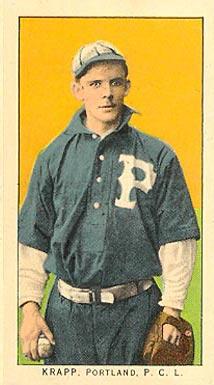

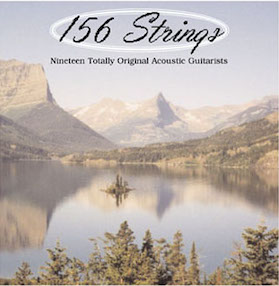

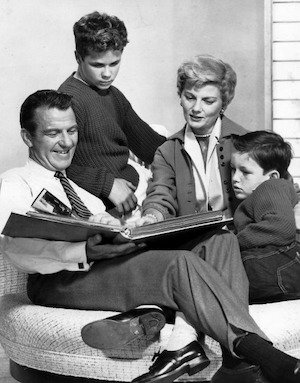
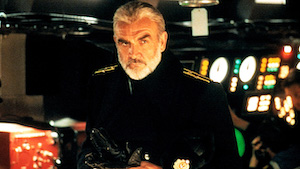



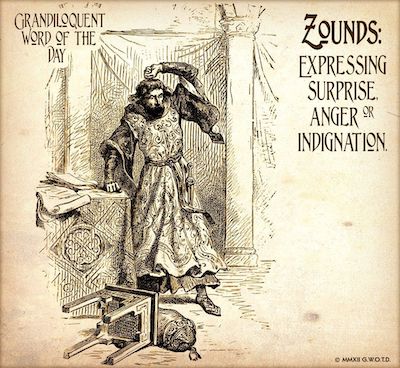


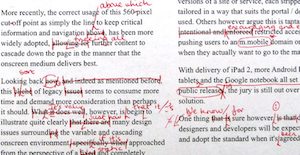



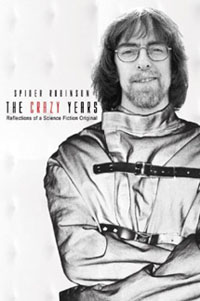


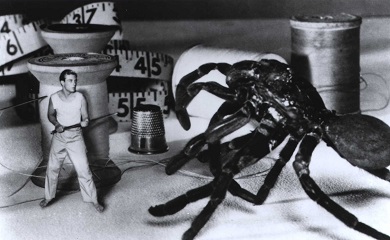
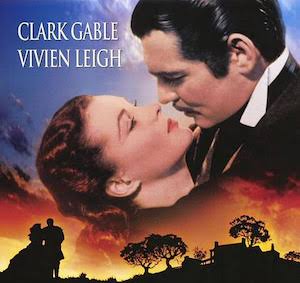
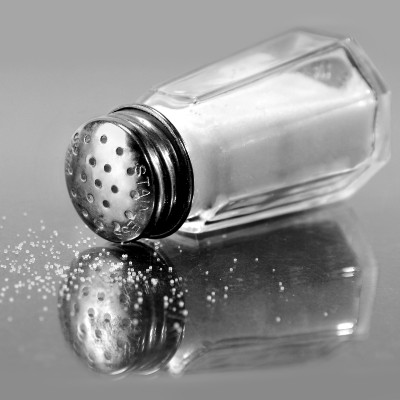



.jpg)
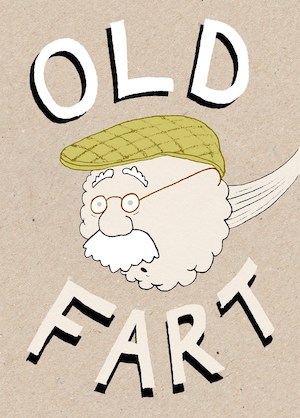

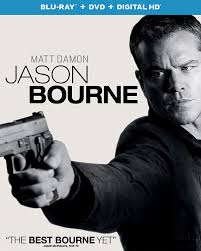
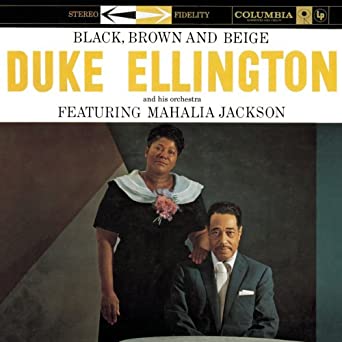
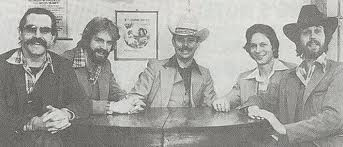

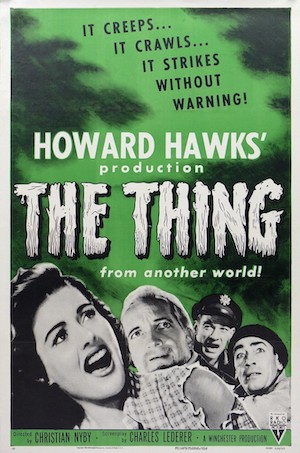

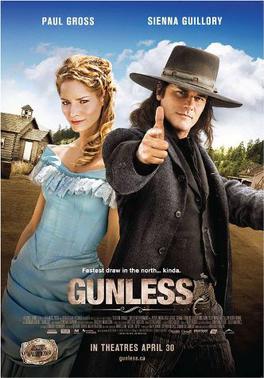
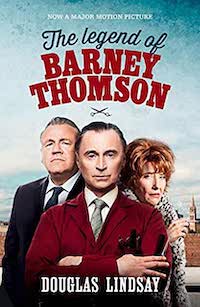
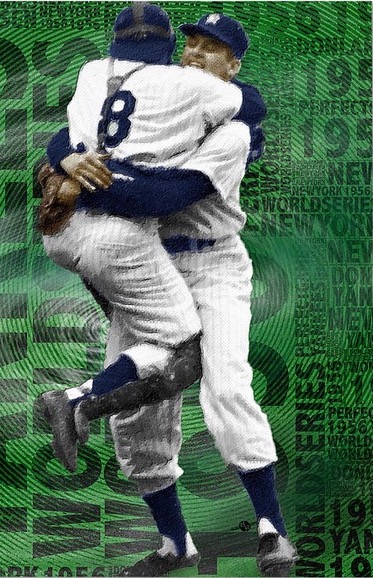
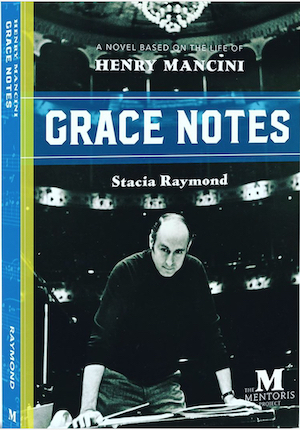
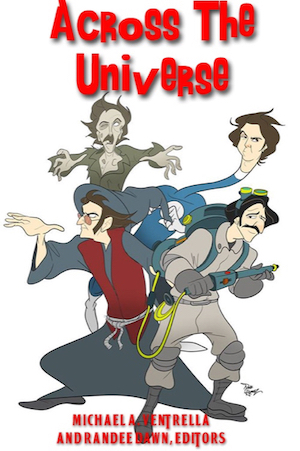

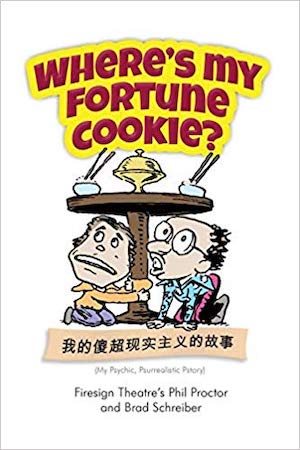

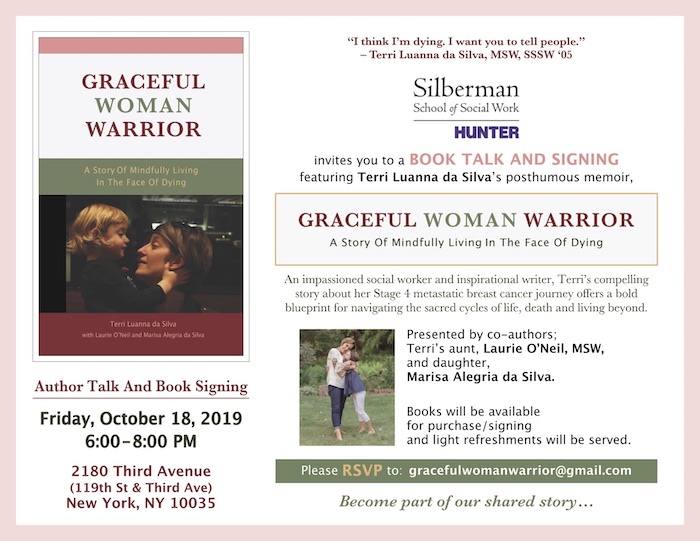

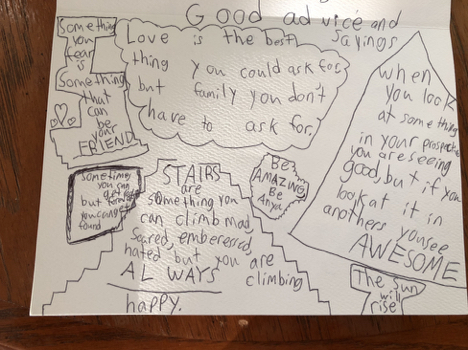


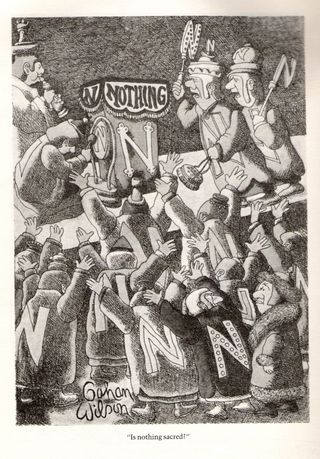
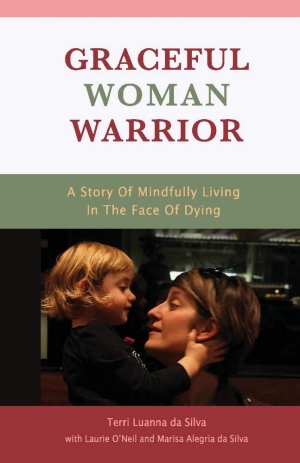
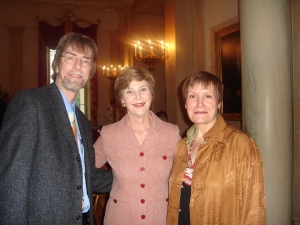
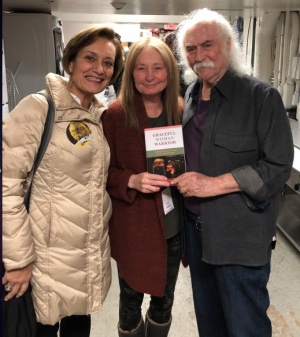 Editor/designer/aunt Laurie O’Neill, giving dear friends David and Jan Dee Crosby their personal copy of Terri’s book, hot off the presses. Photo by Andrew O'Neil.
Editor/designer/aunt Laurie O’Neill, giving dear friends David and Jan Dee Crosby their personal copy of Terri’s book, hot off the presses. Photo by Andrew O'Neil.